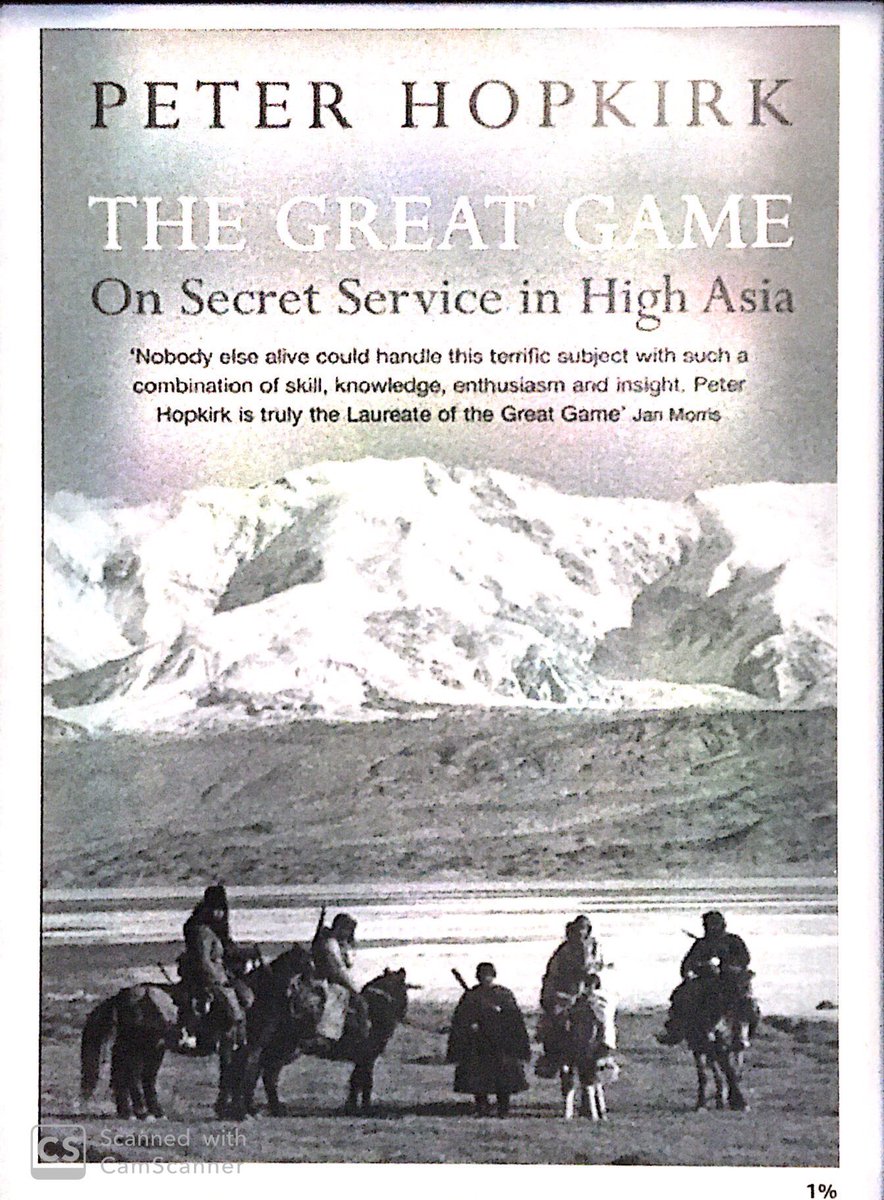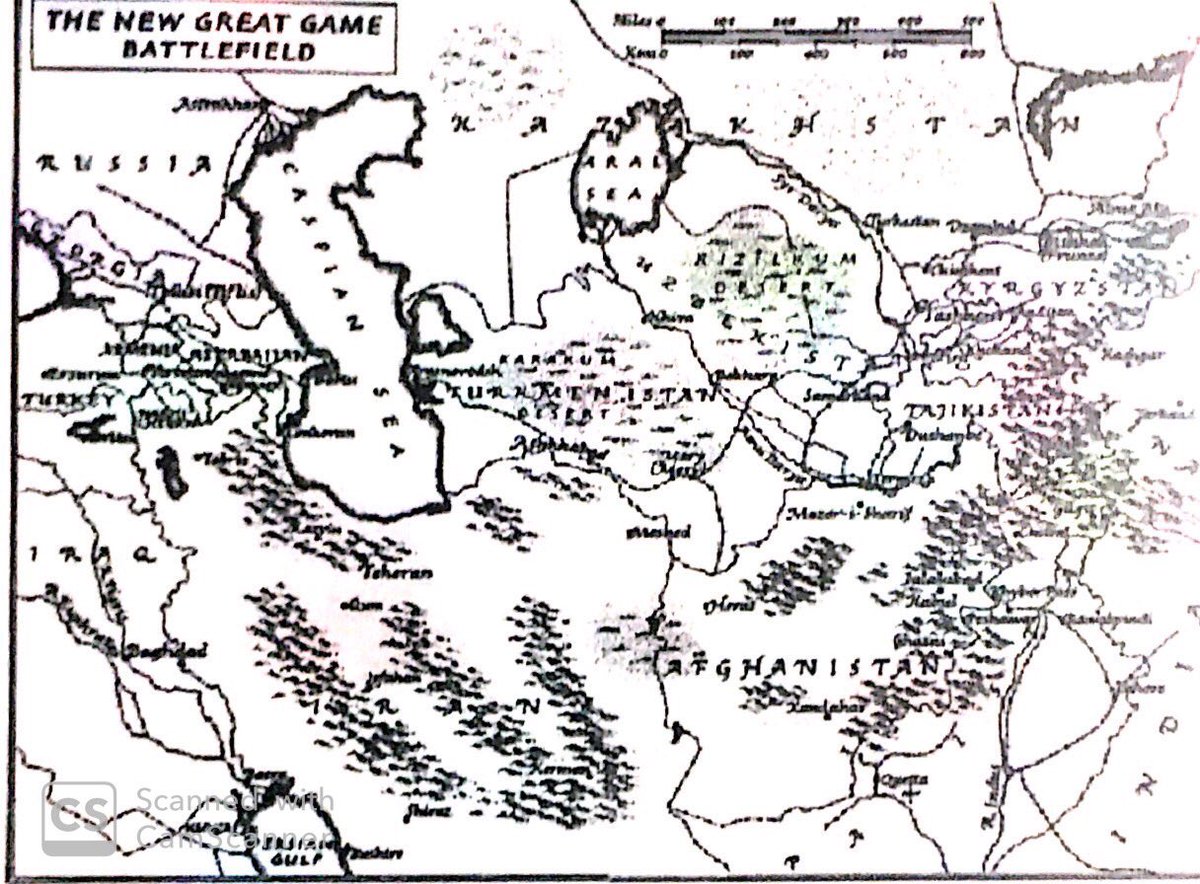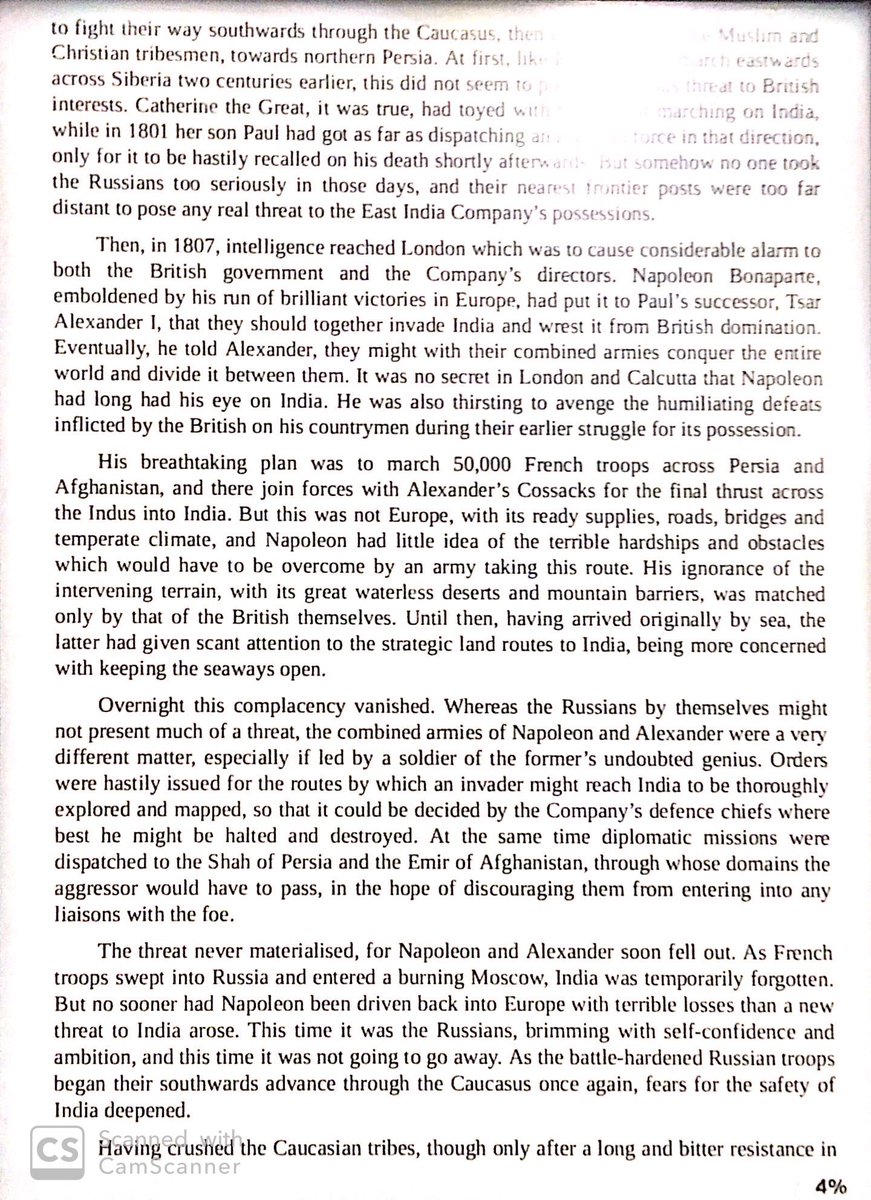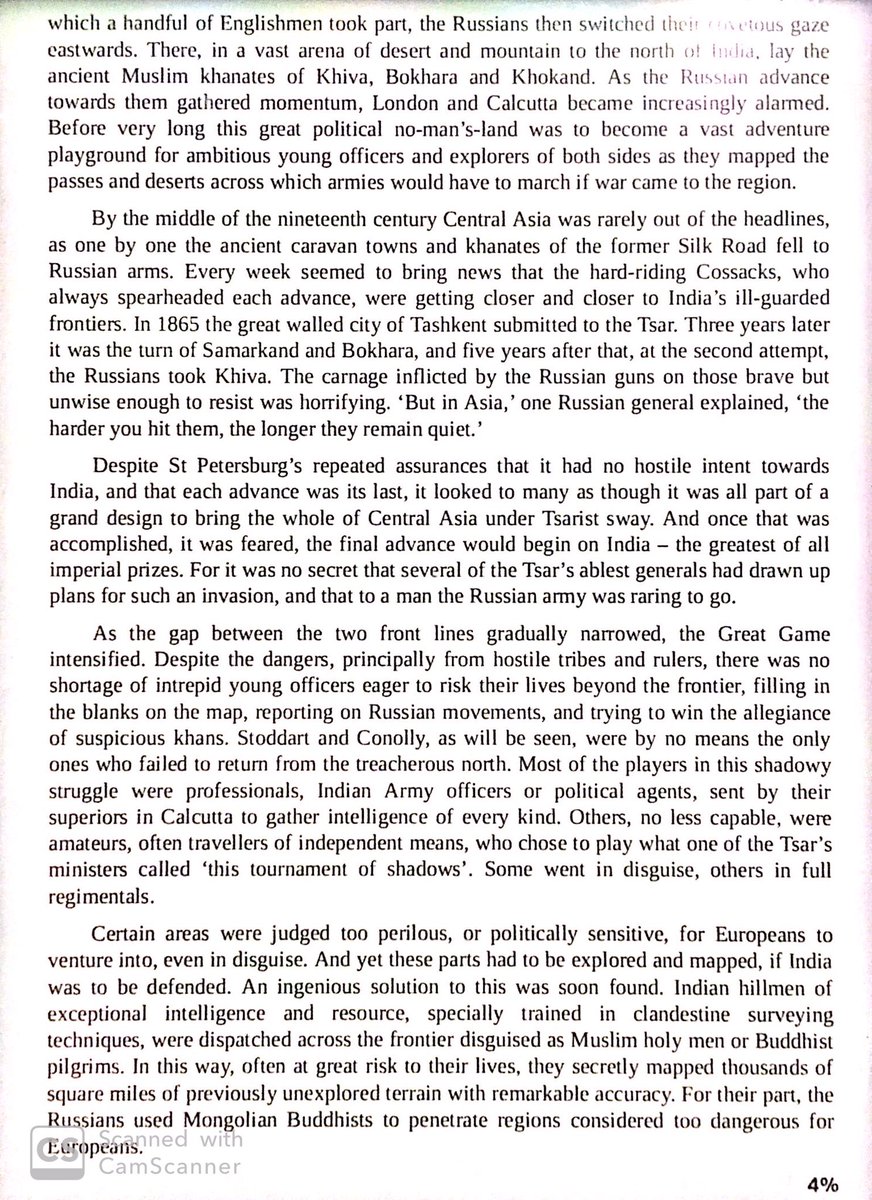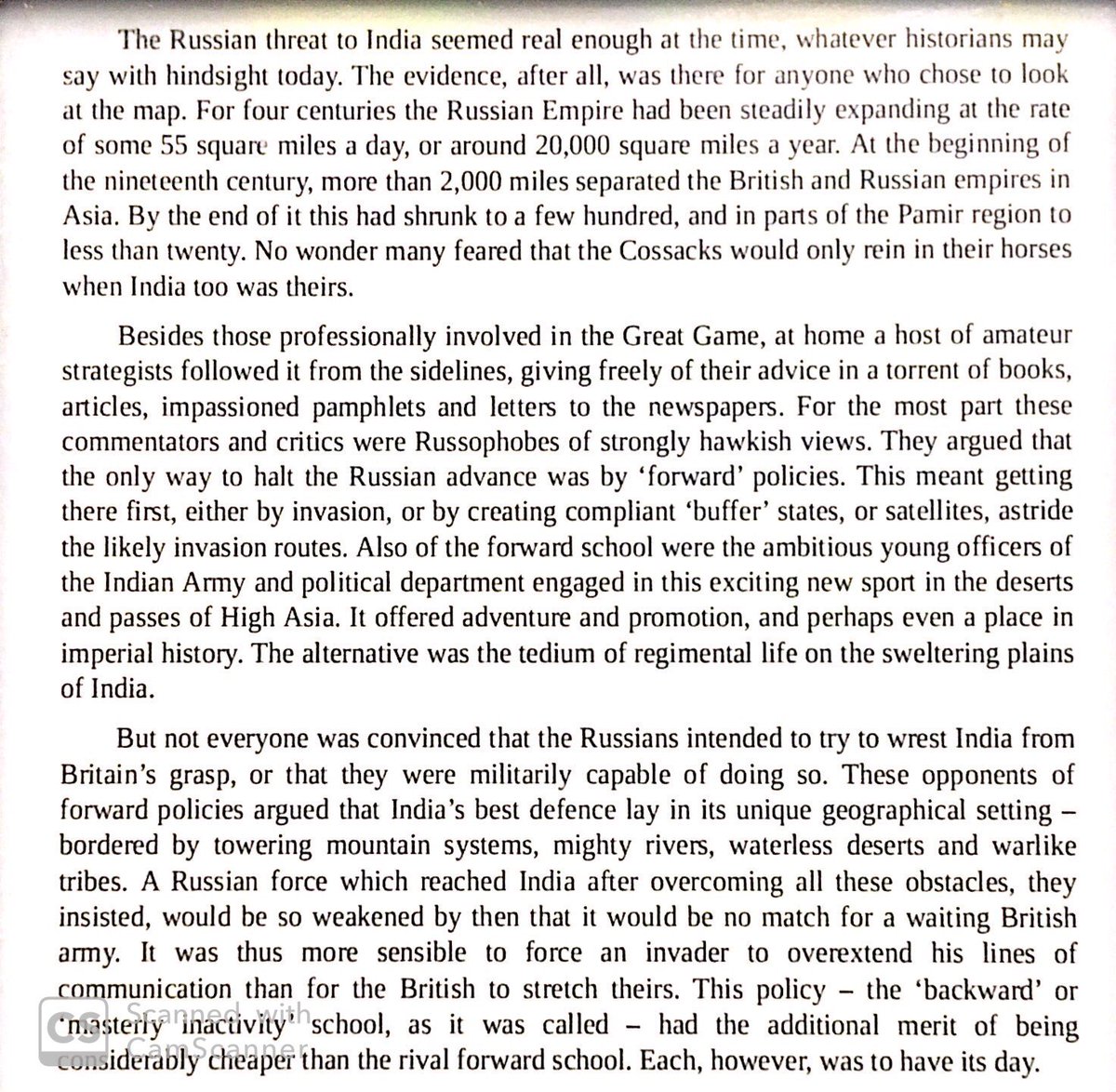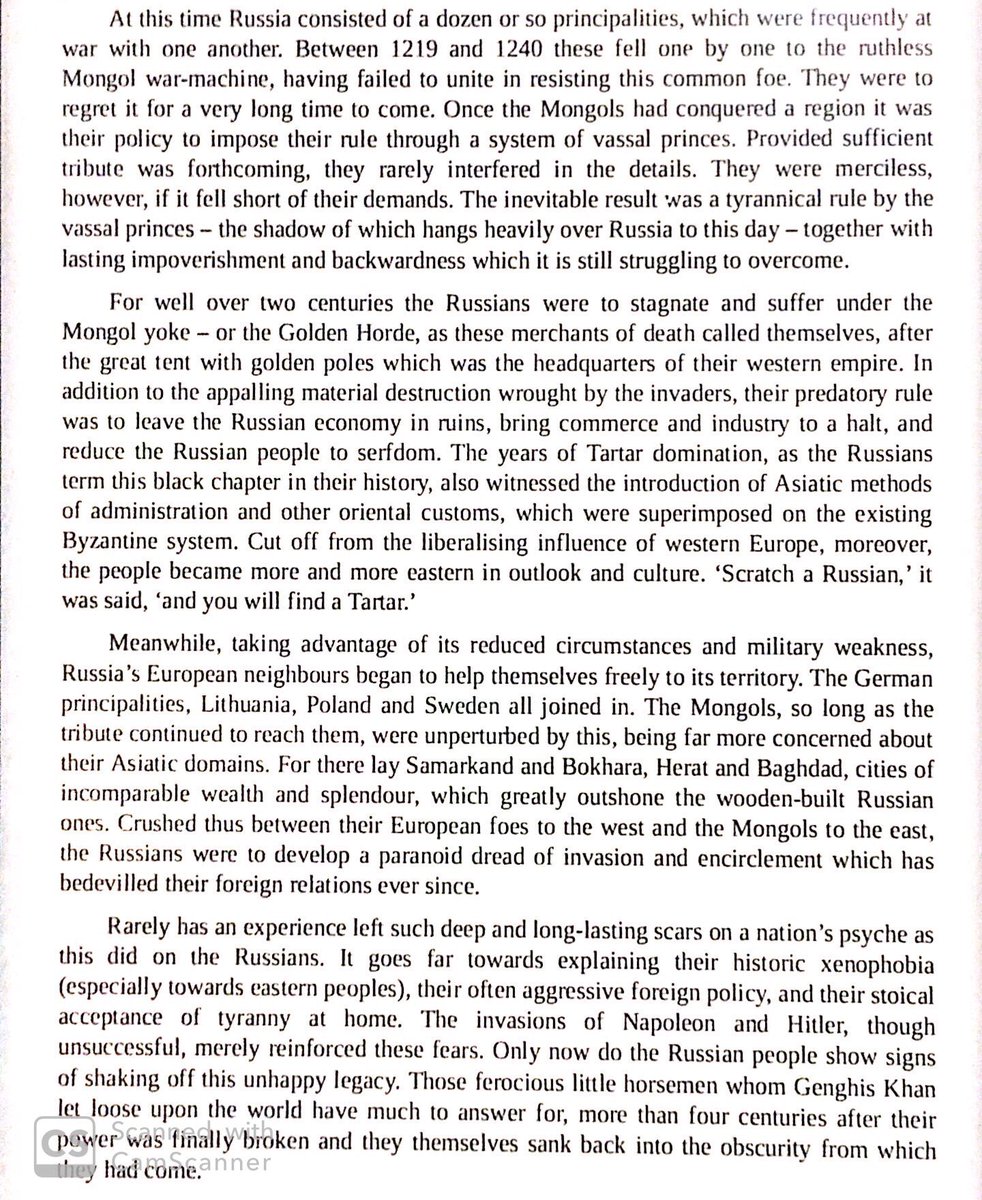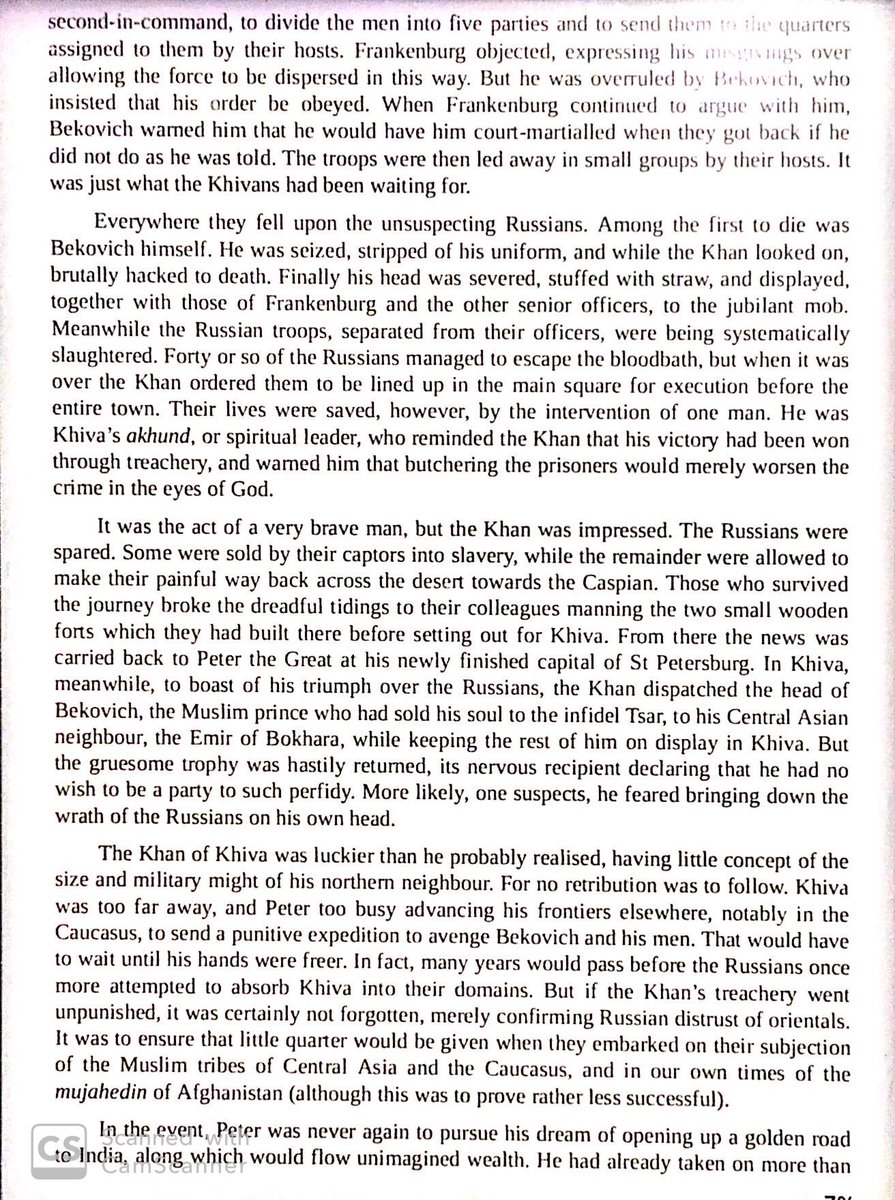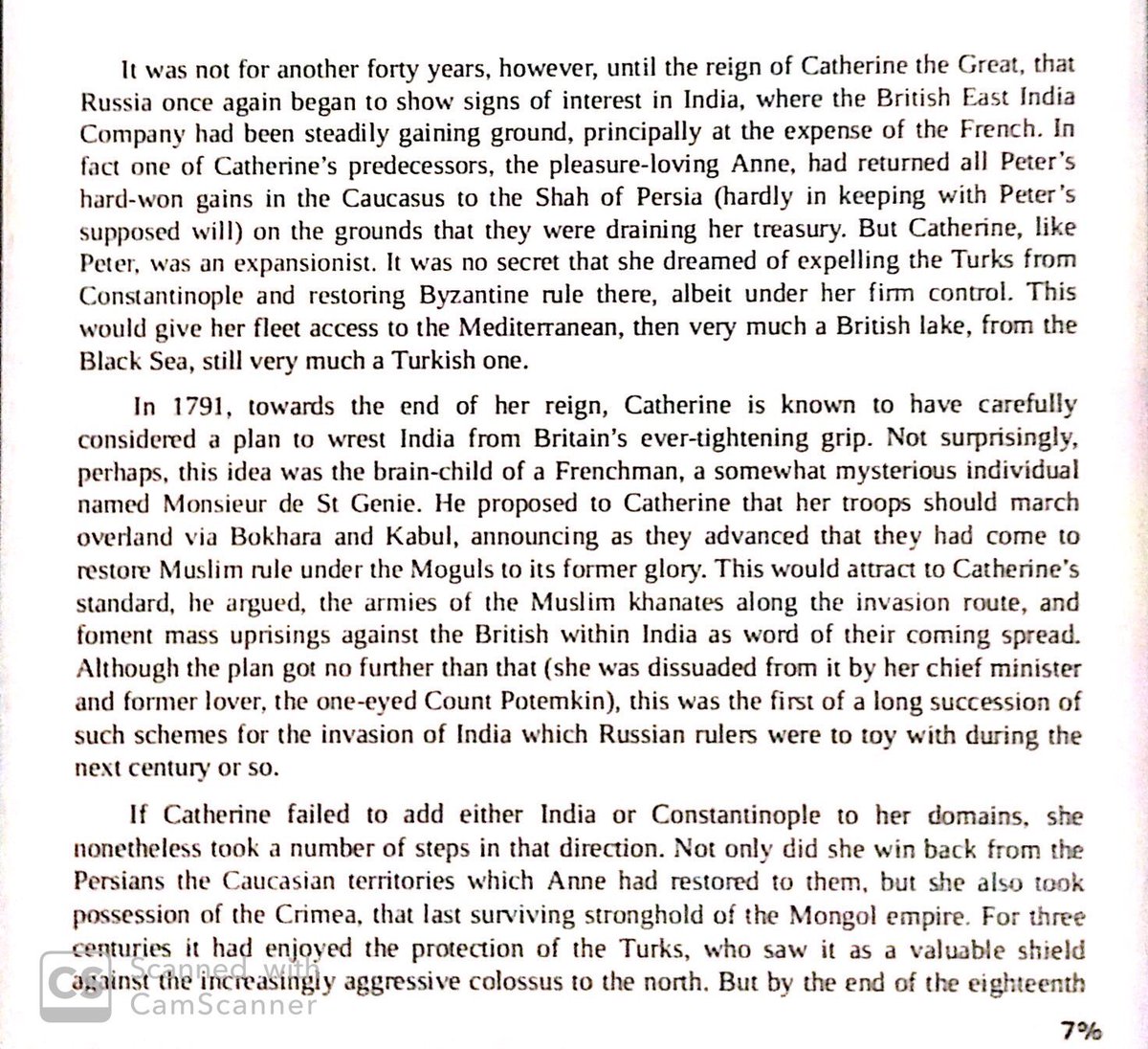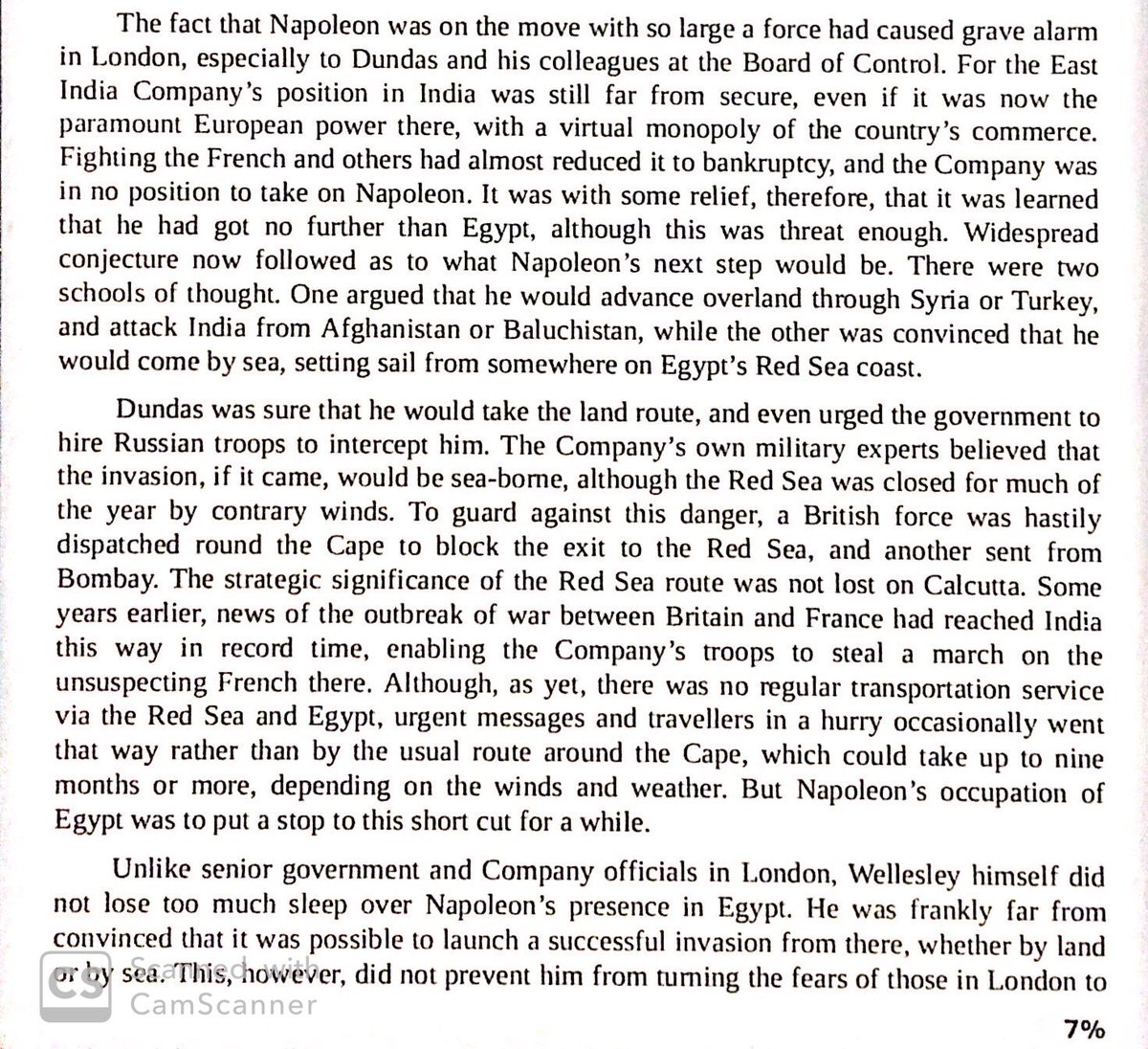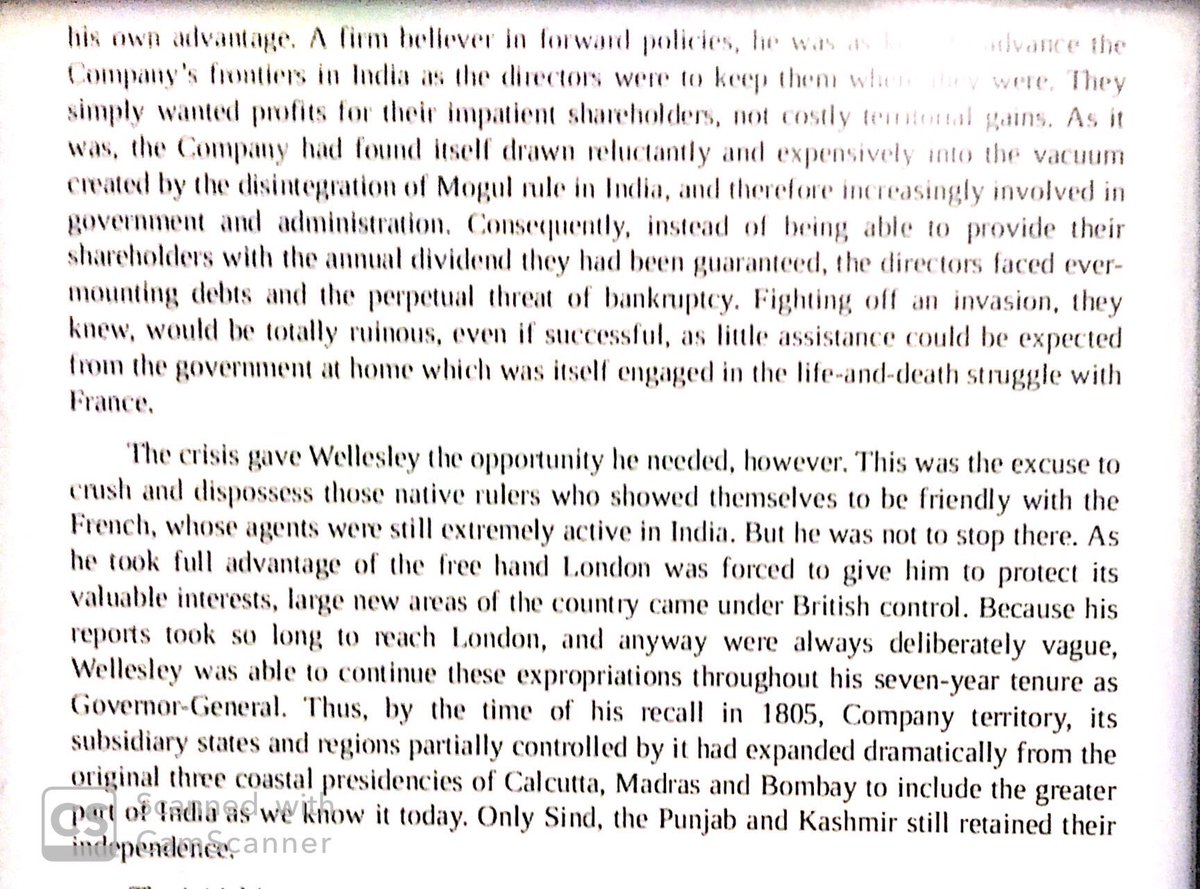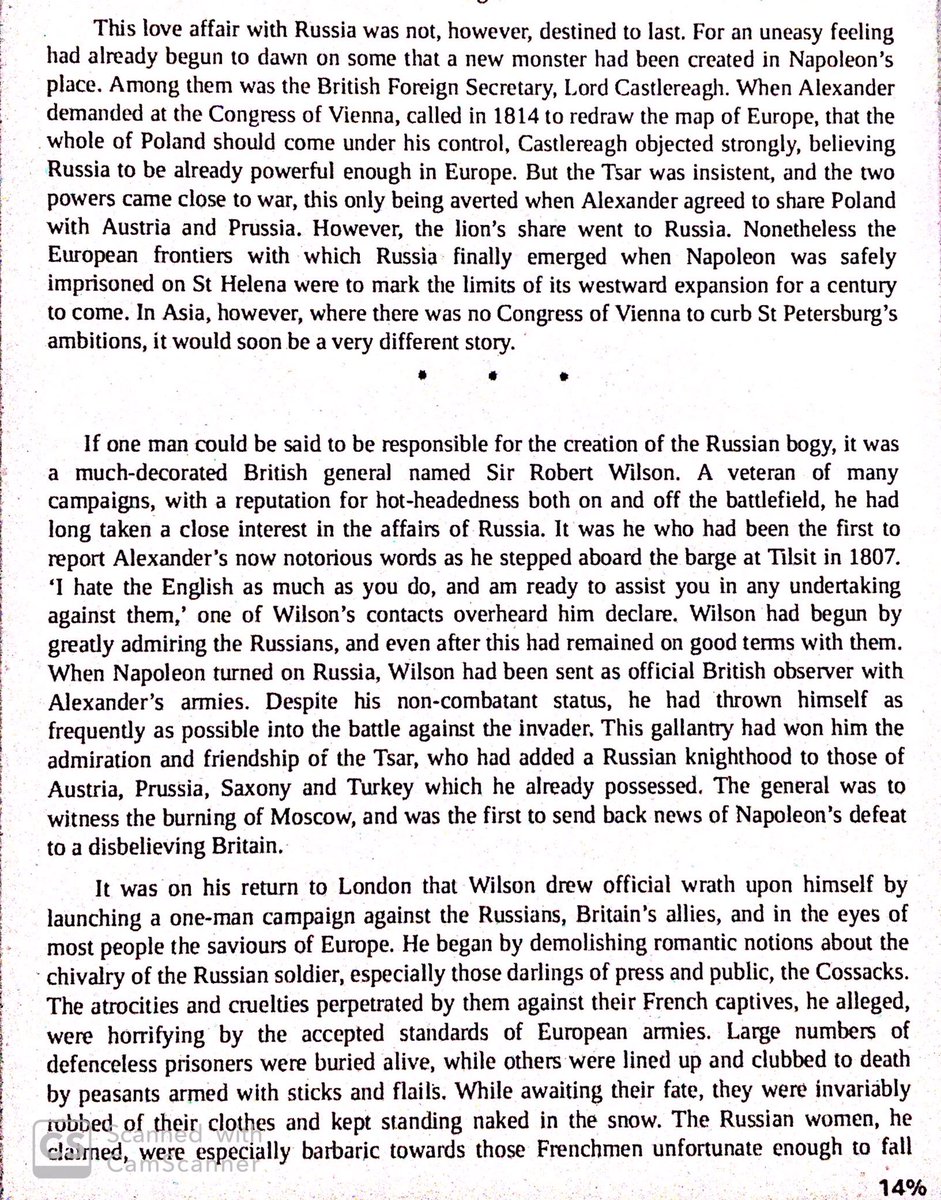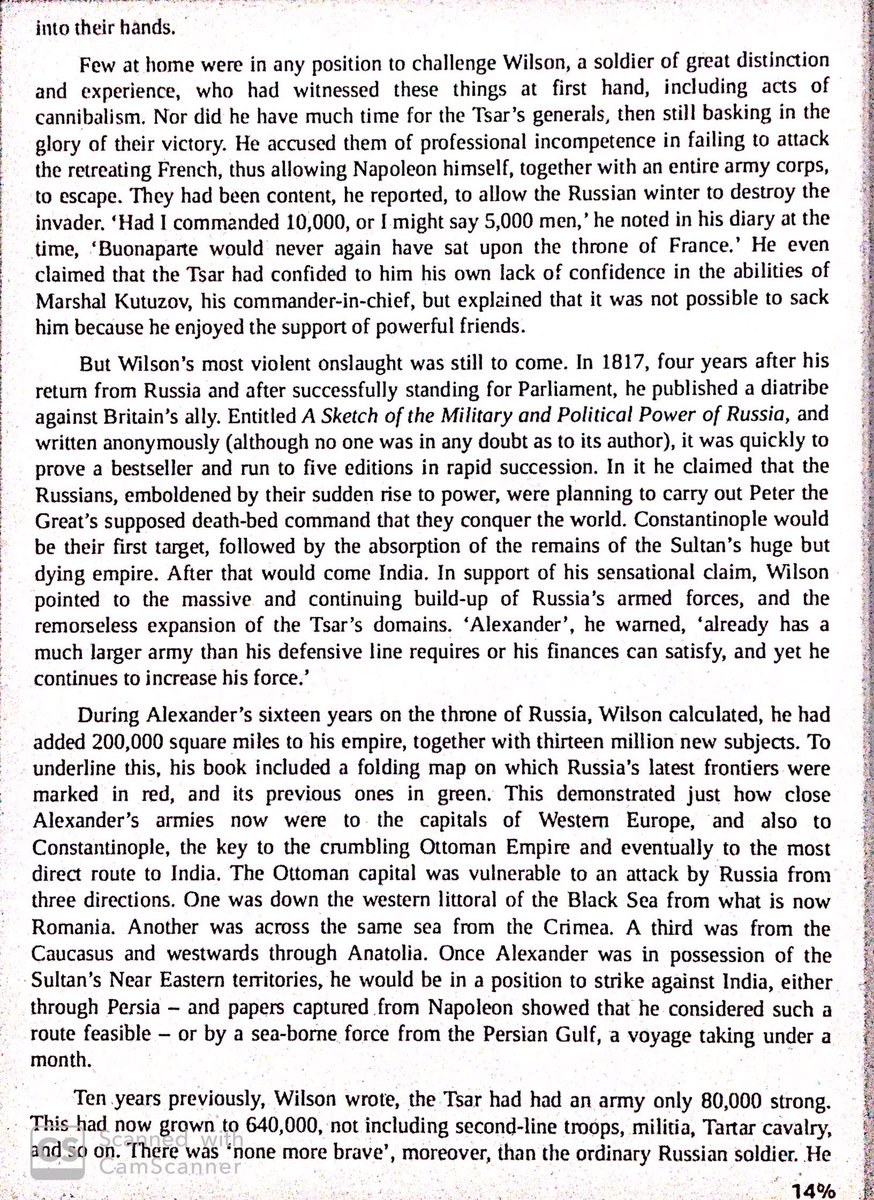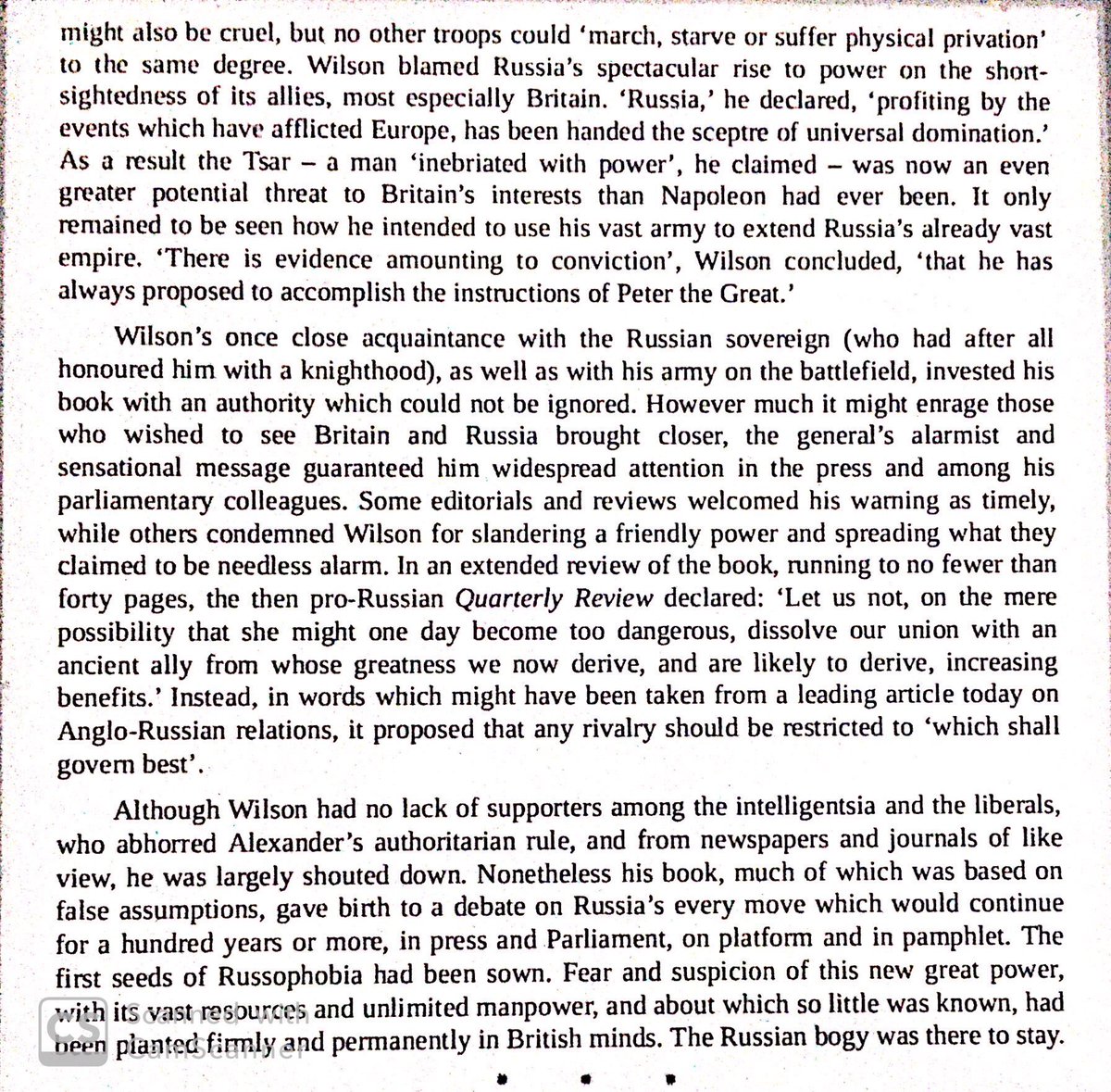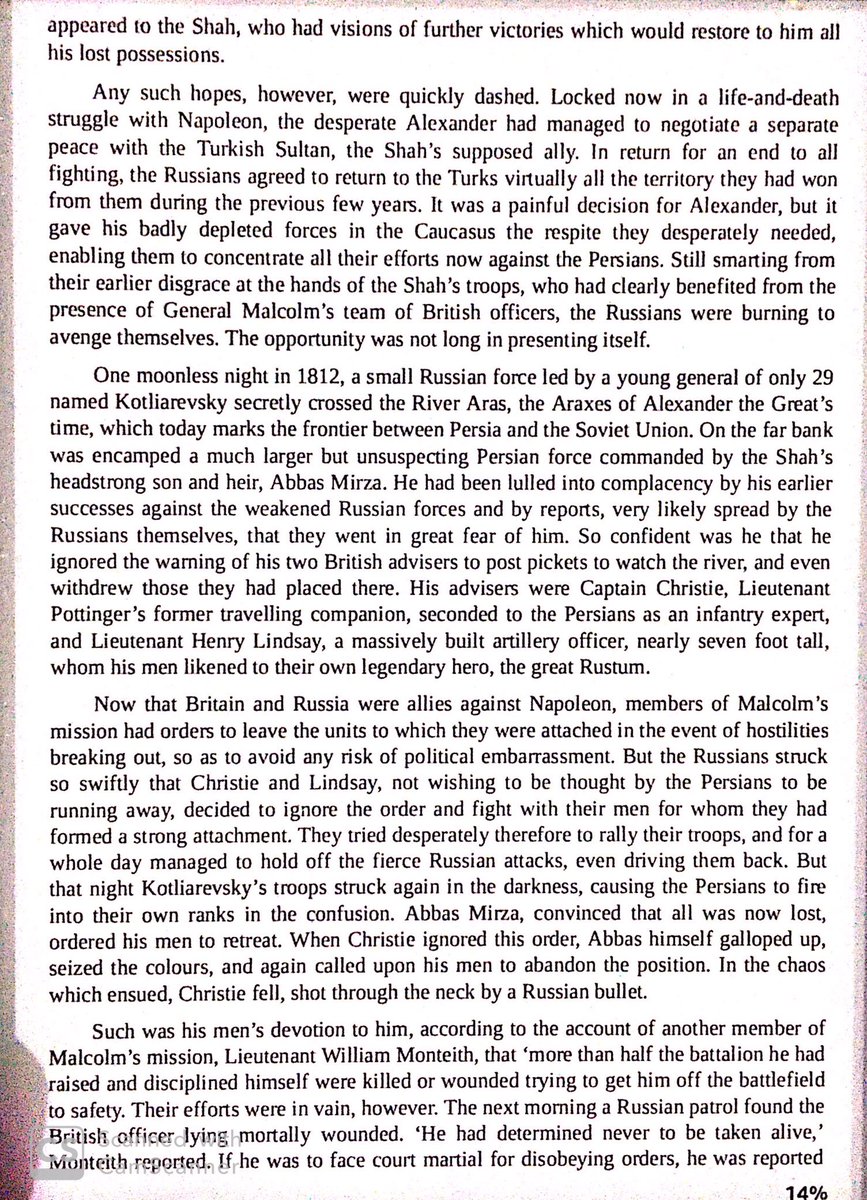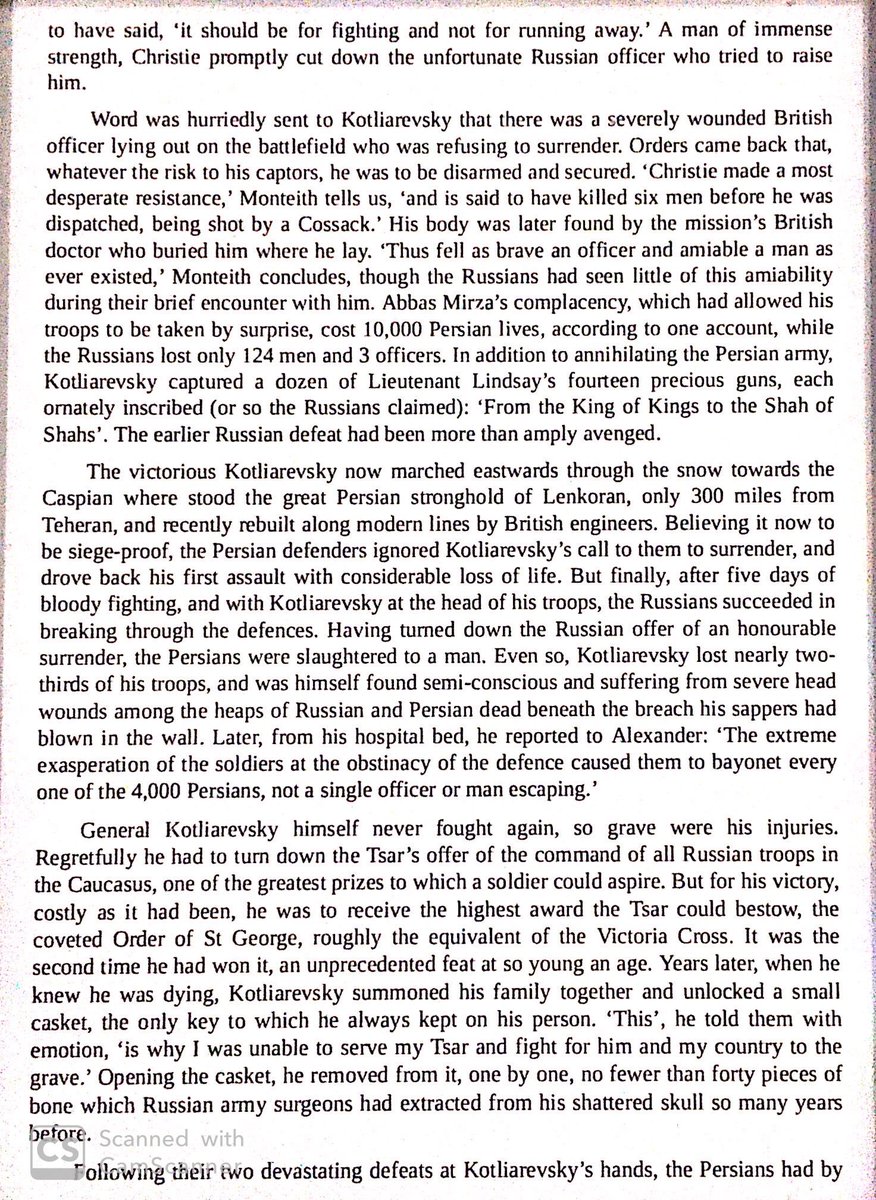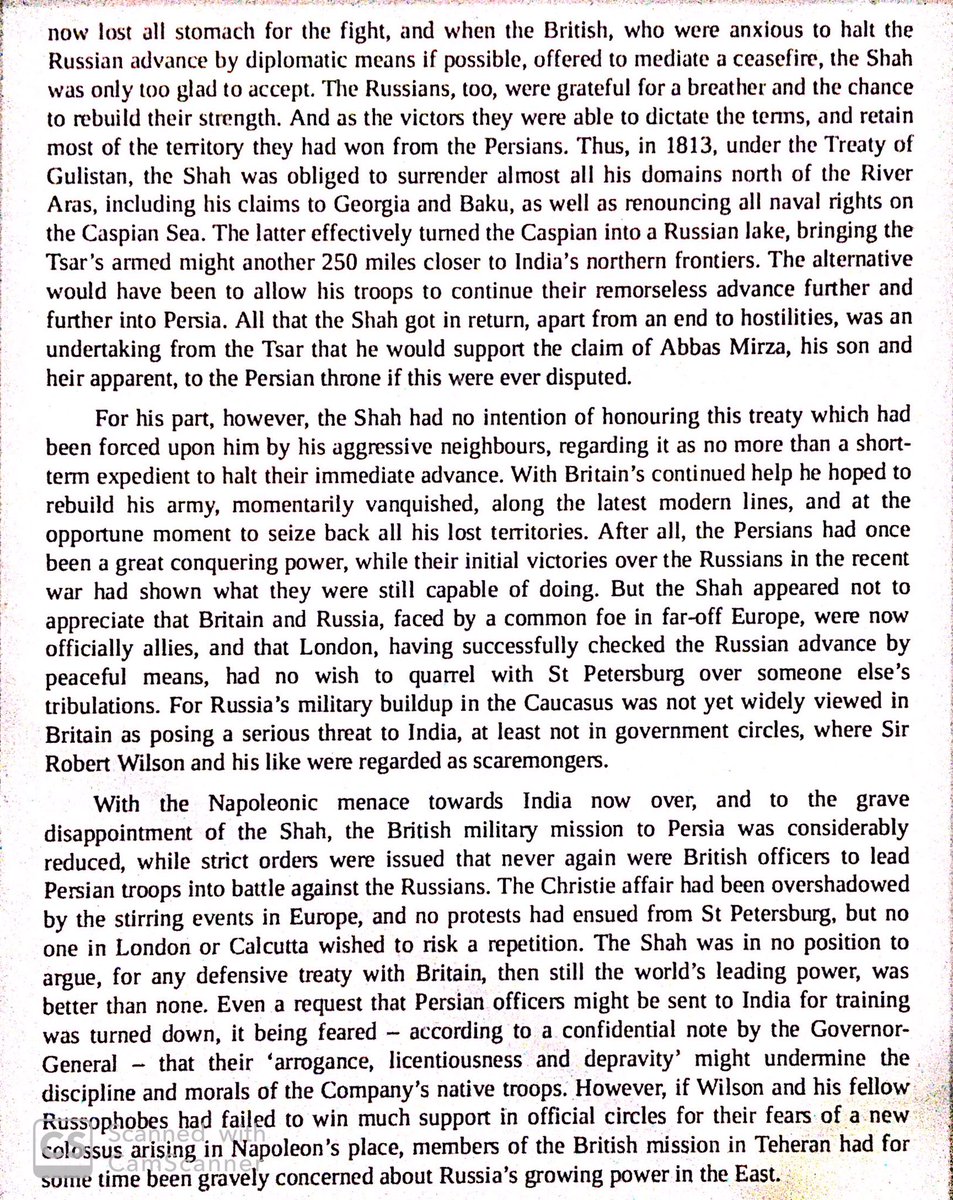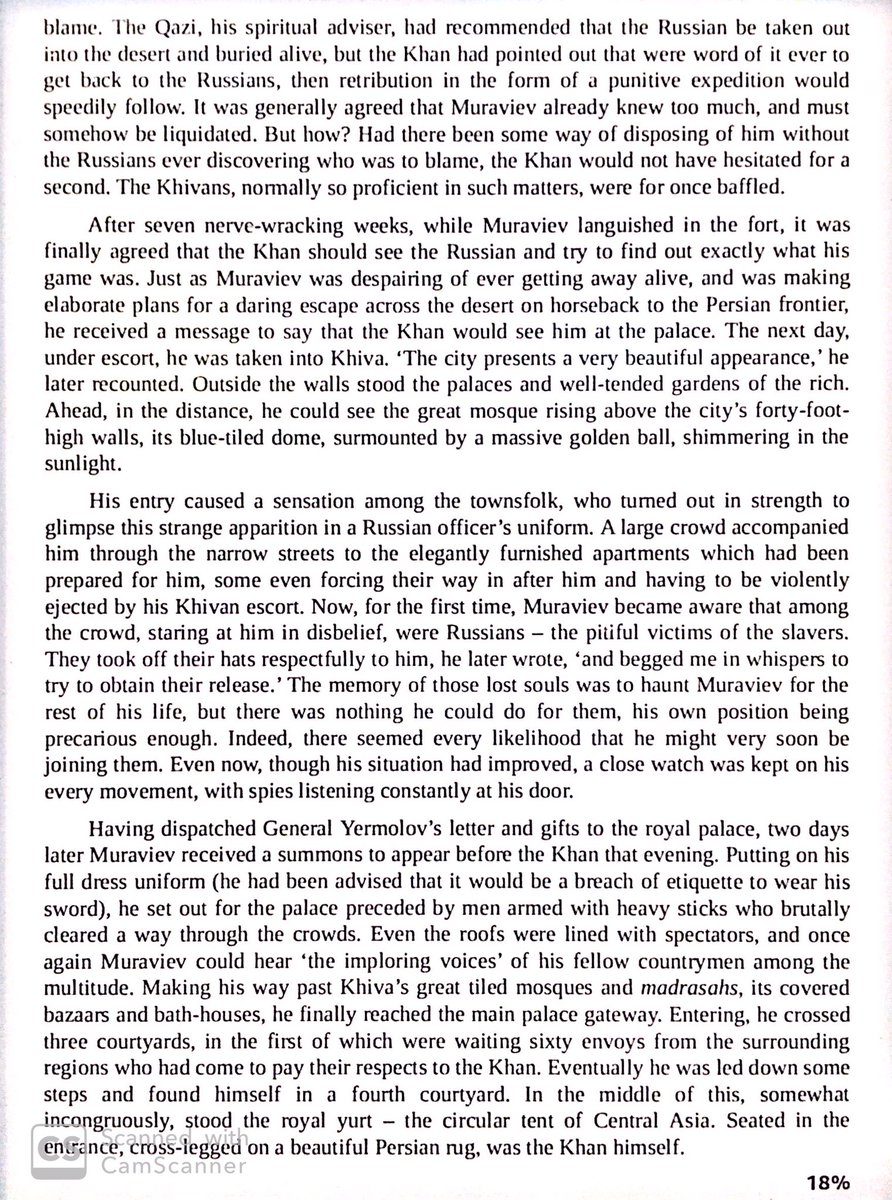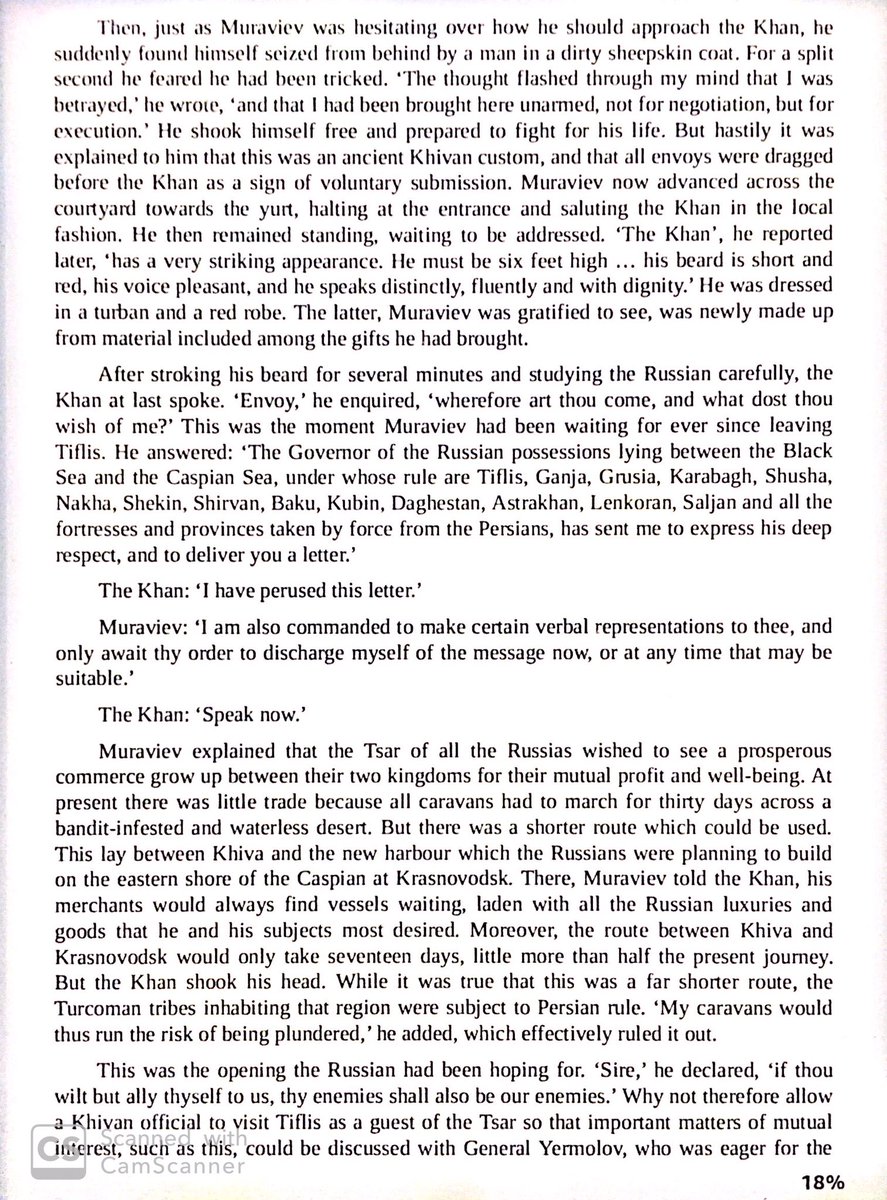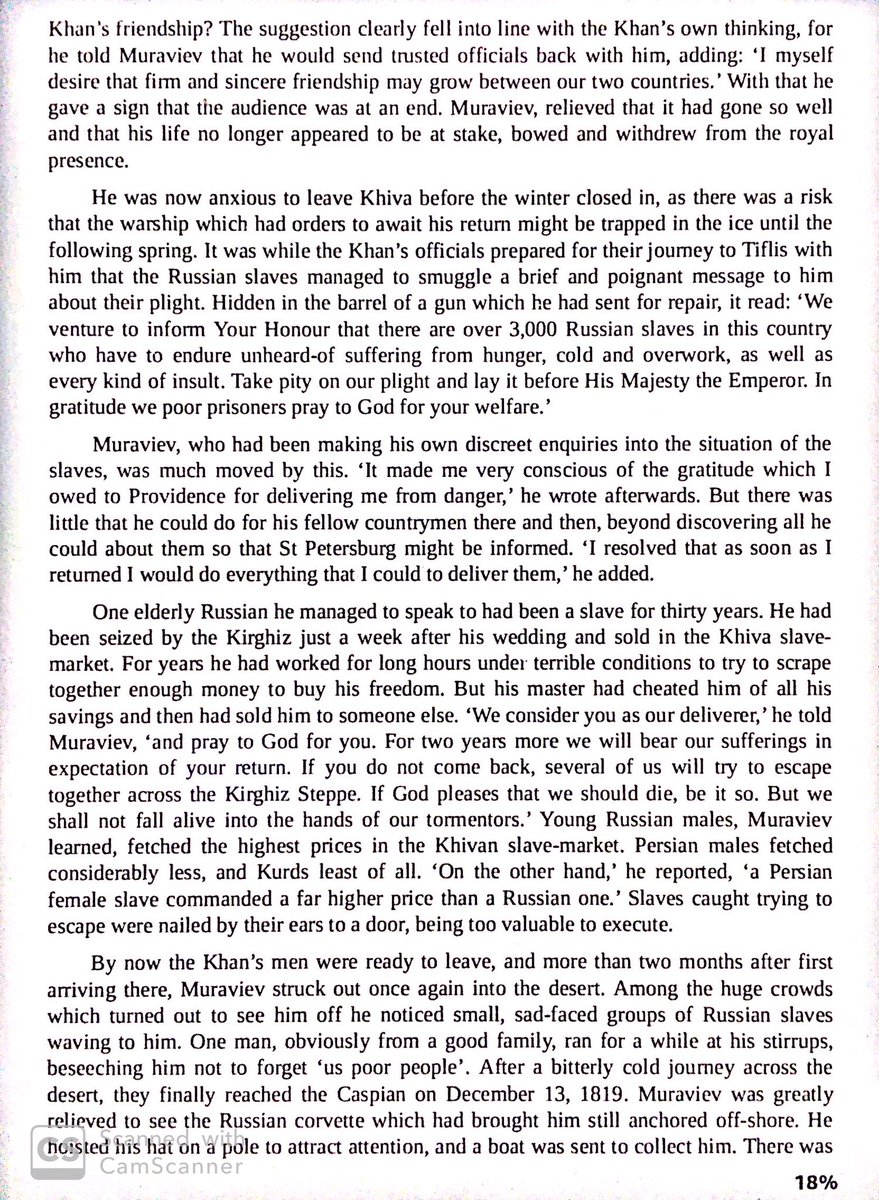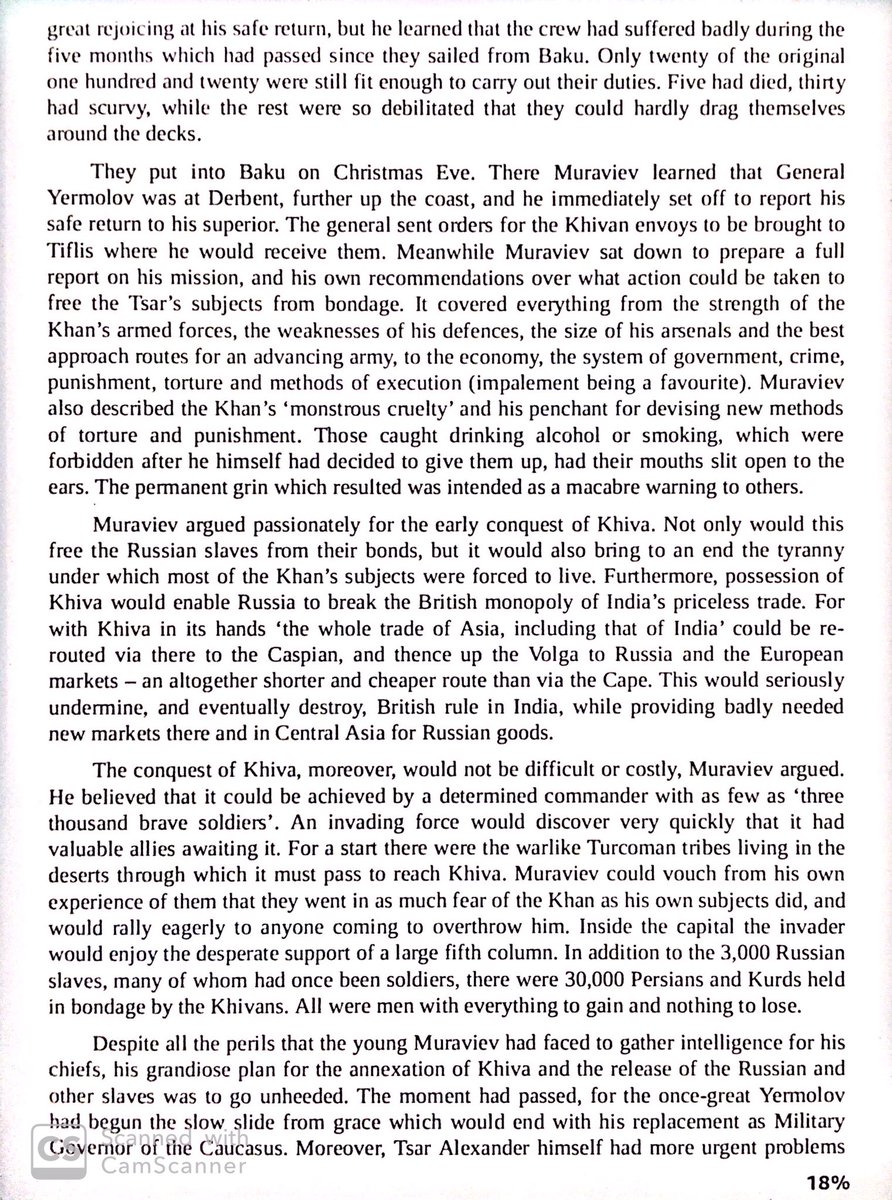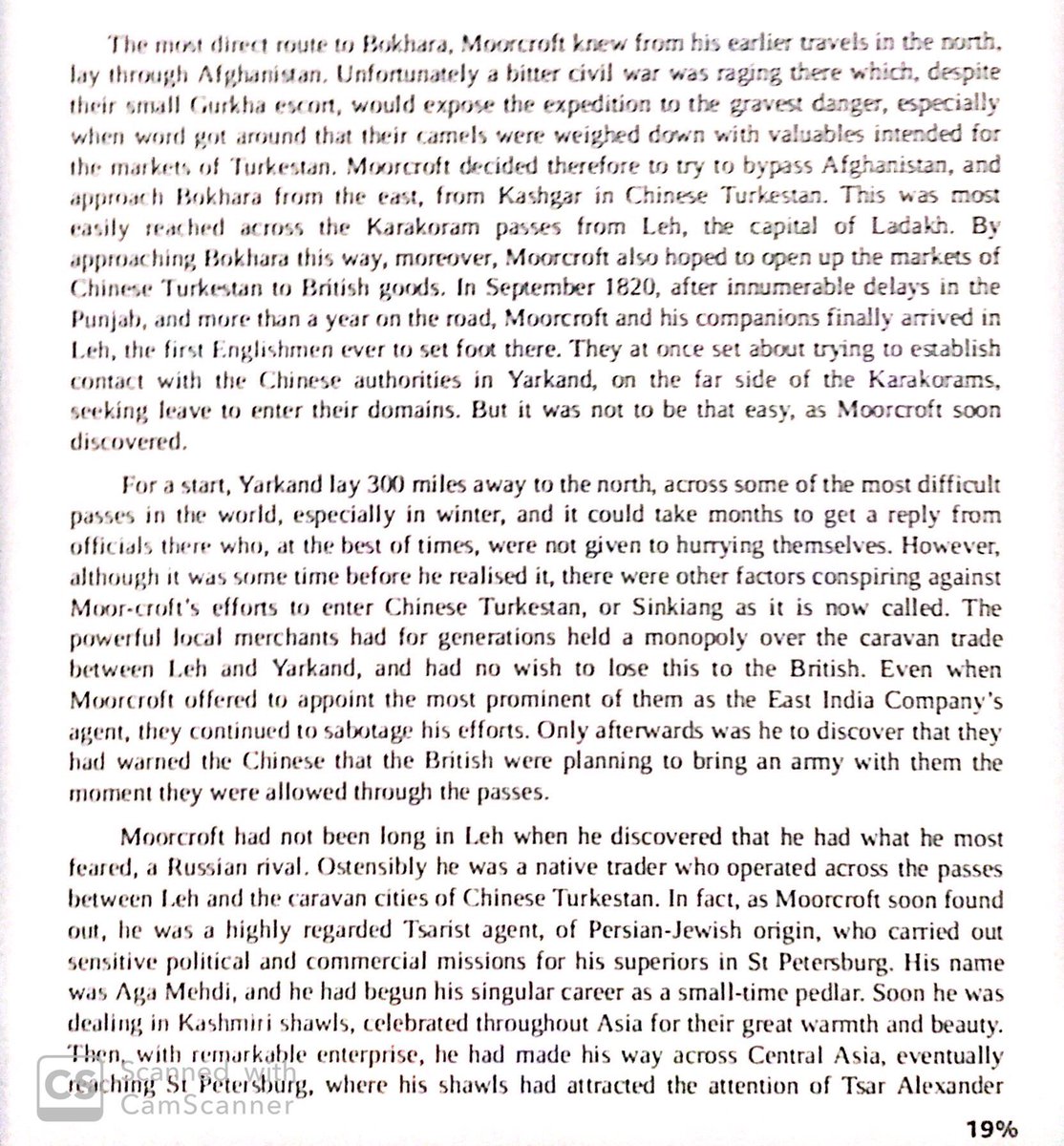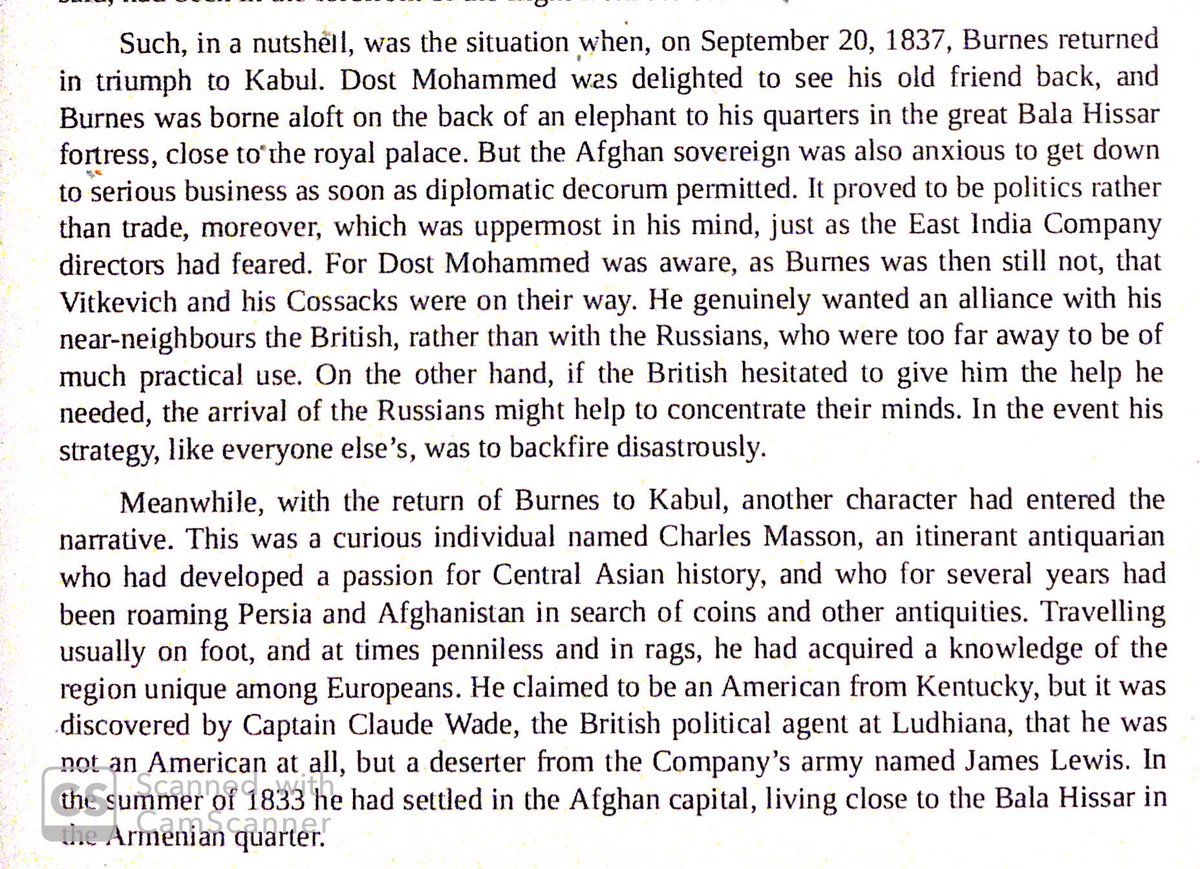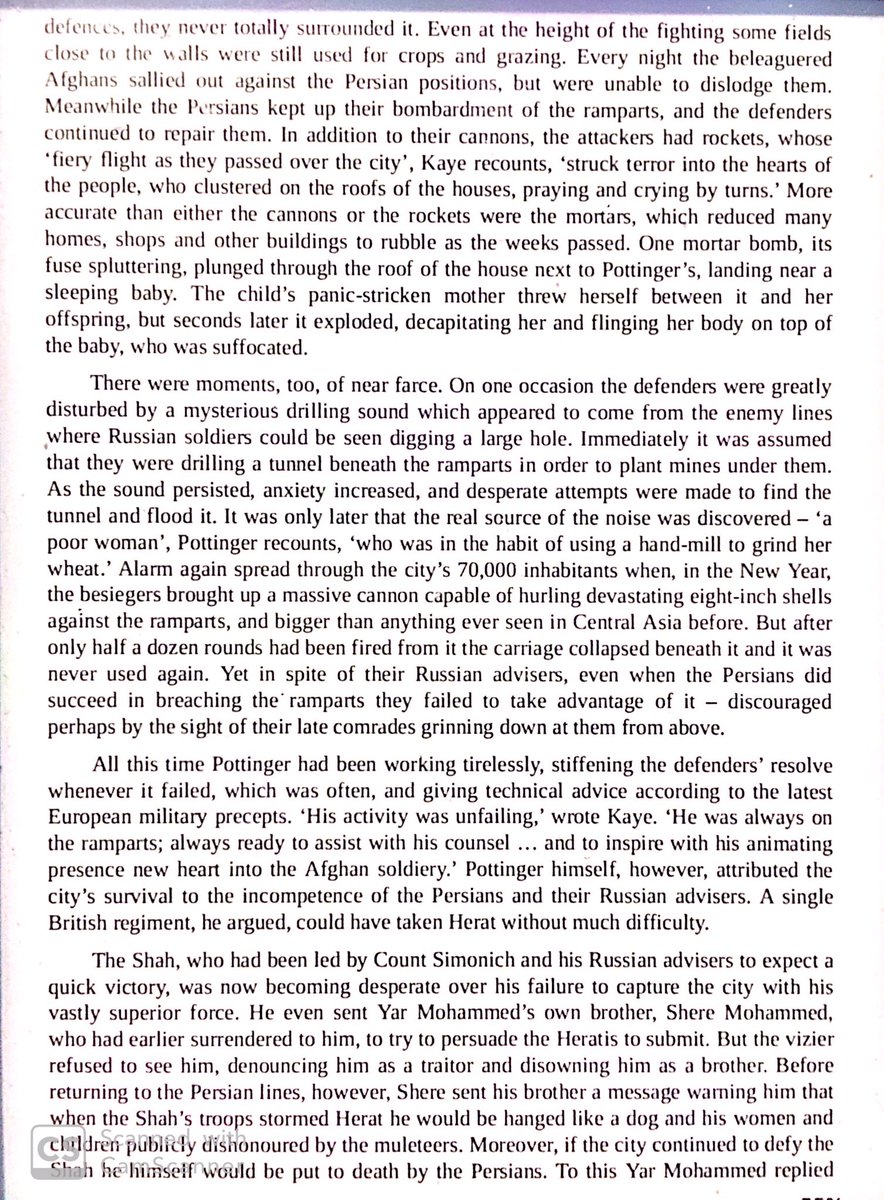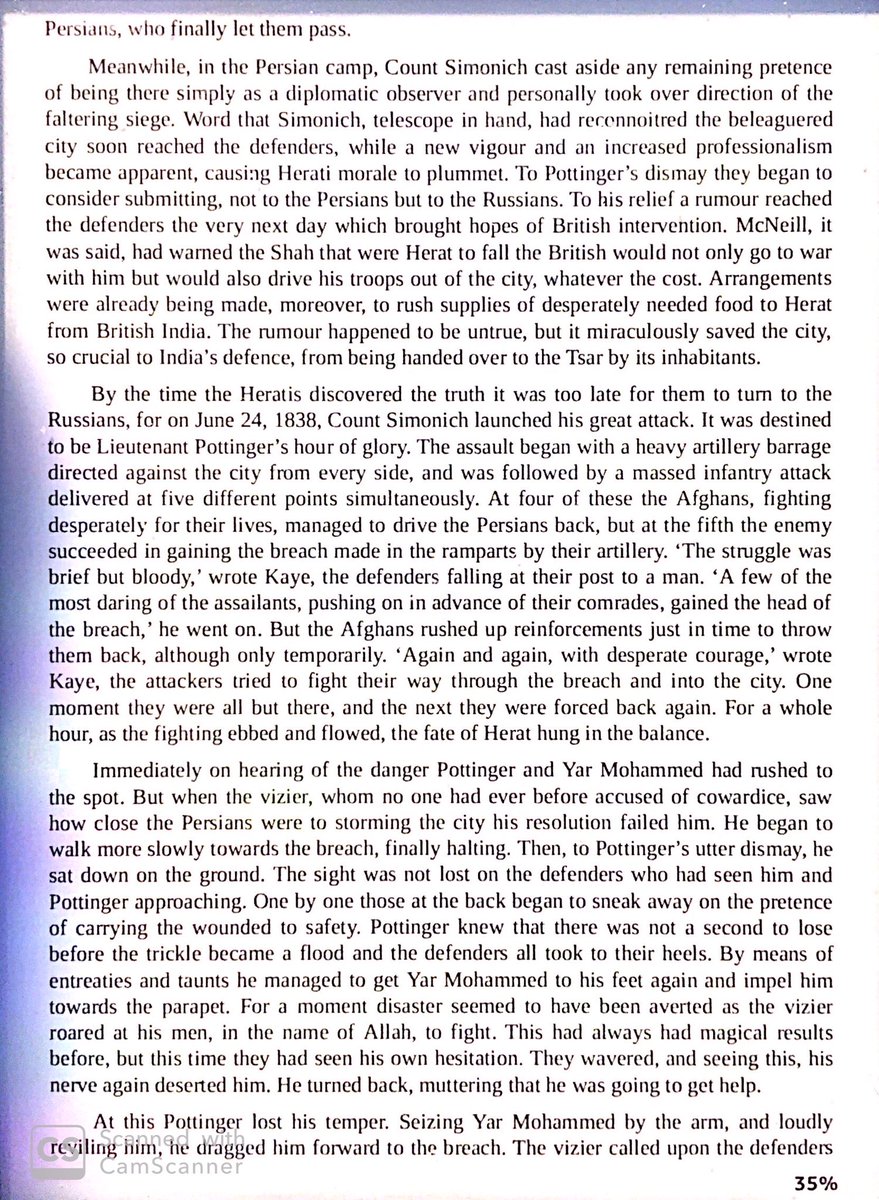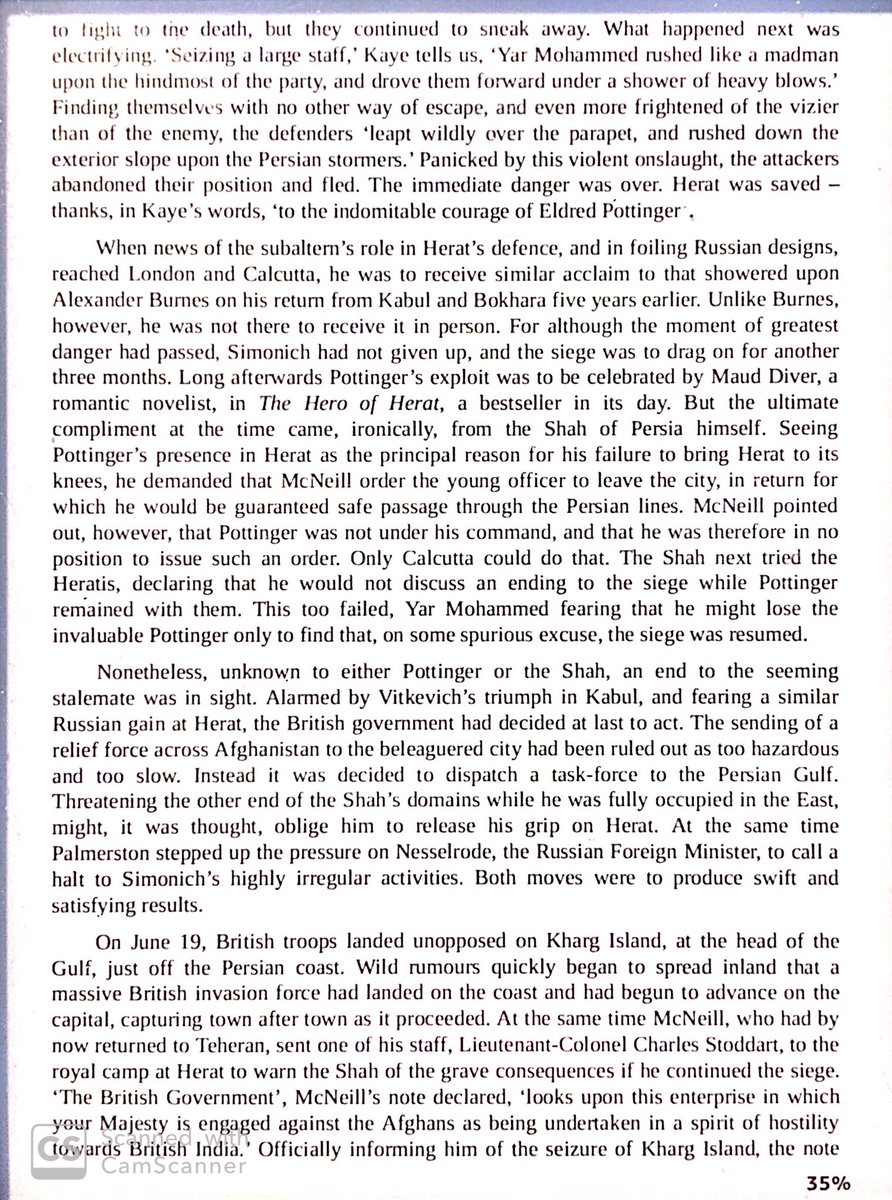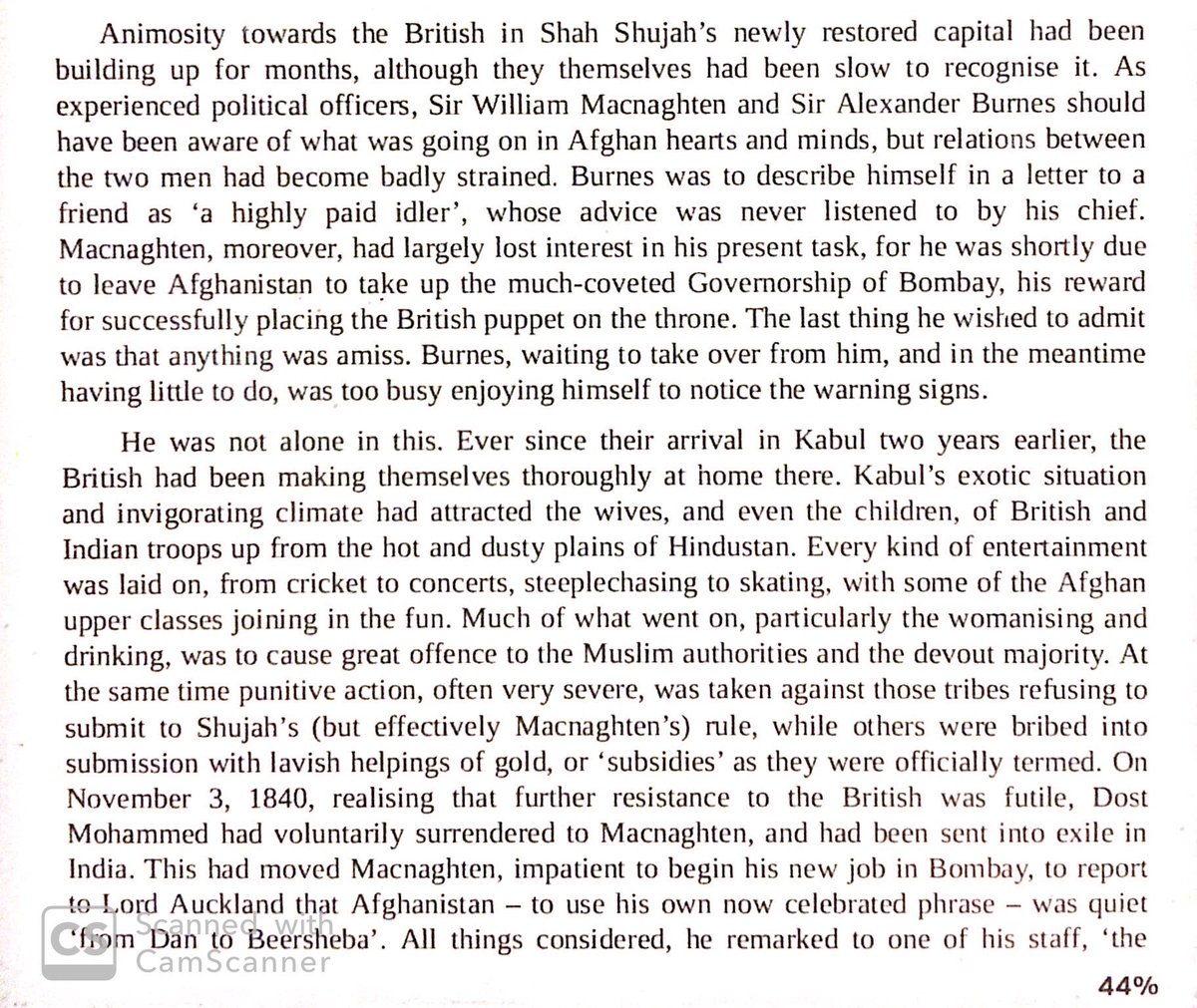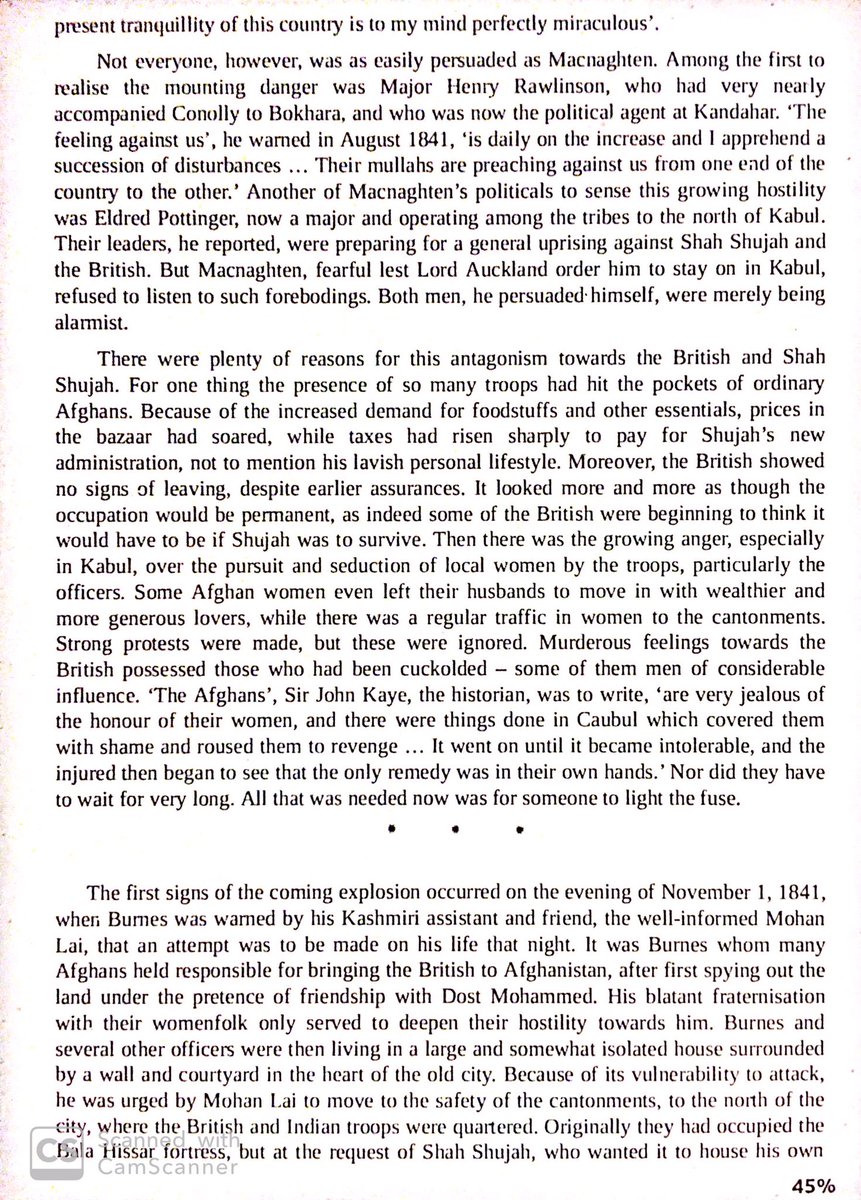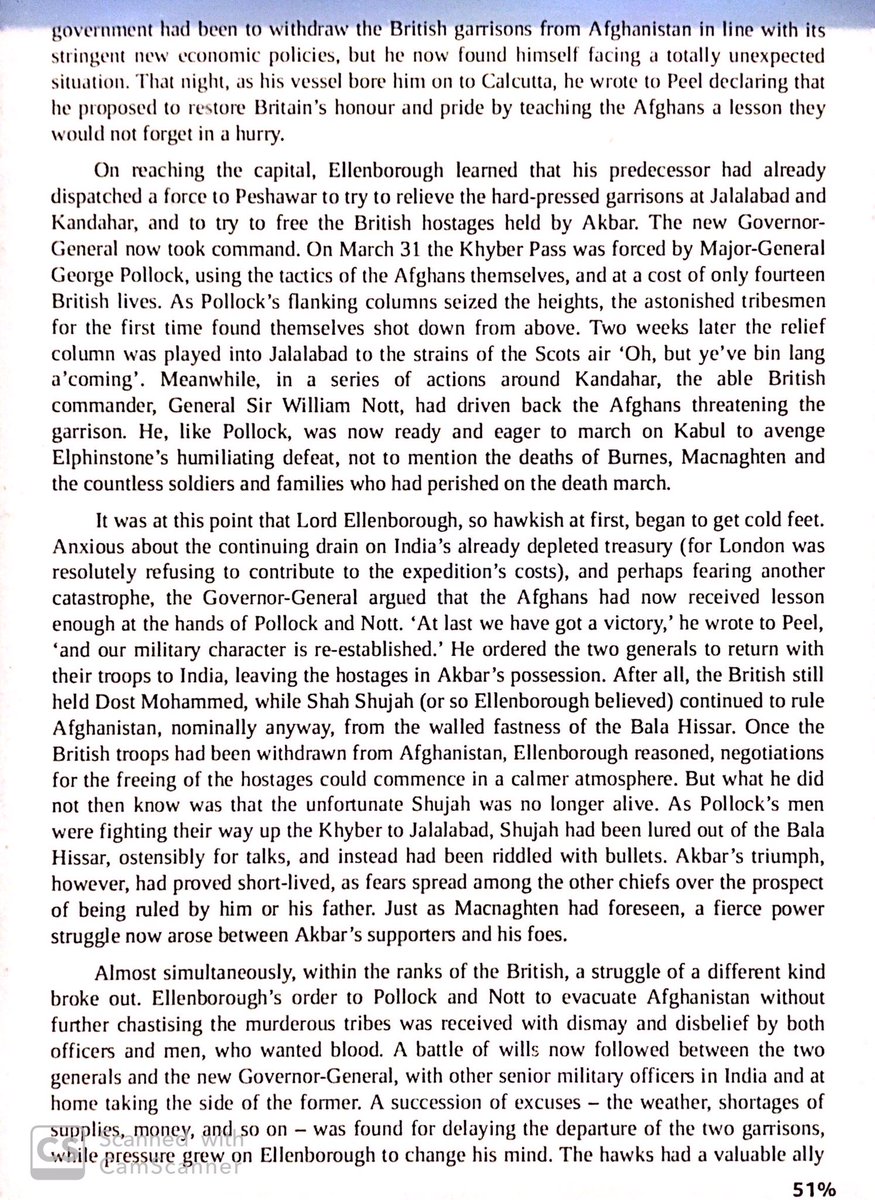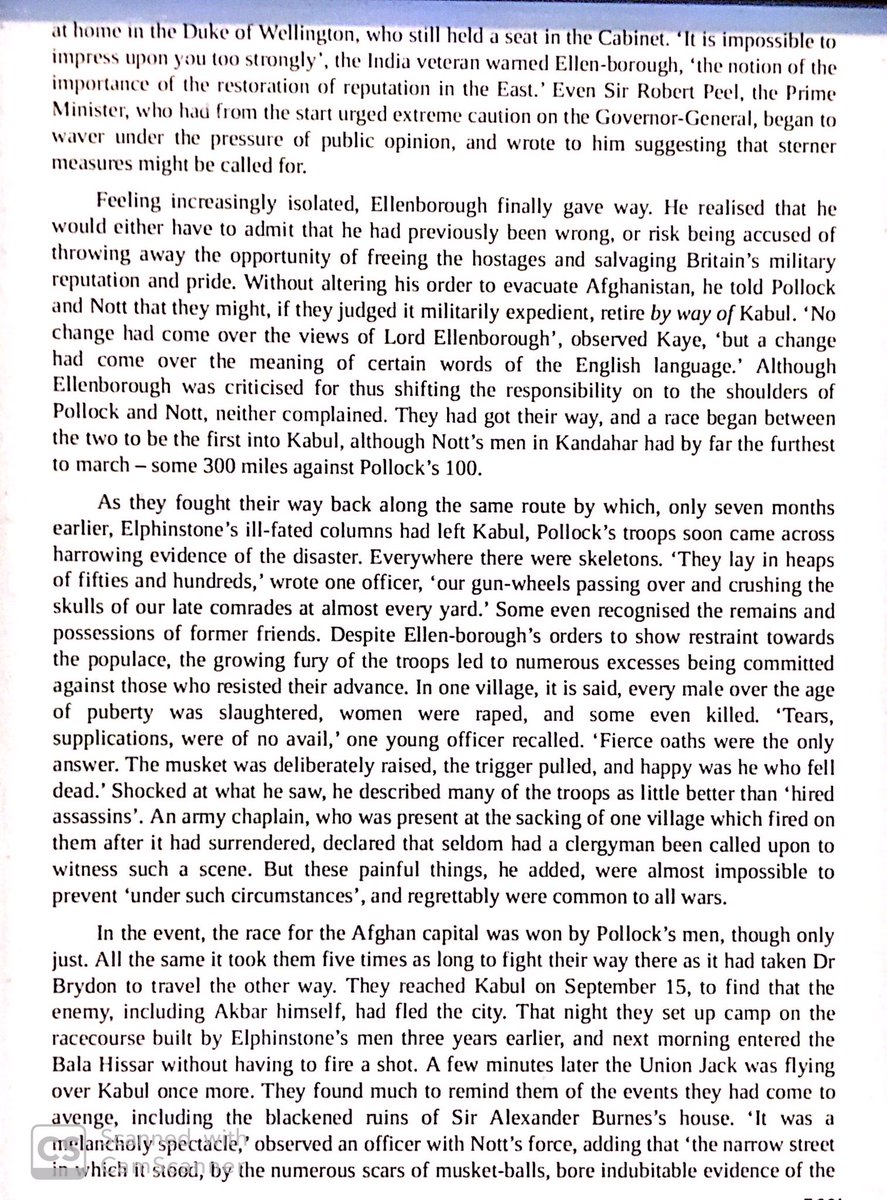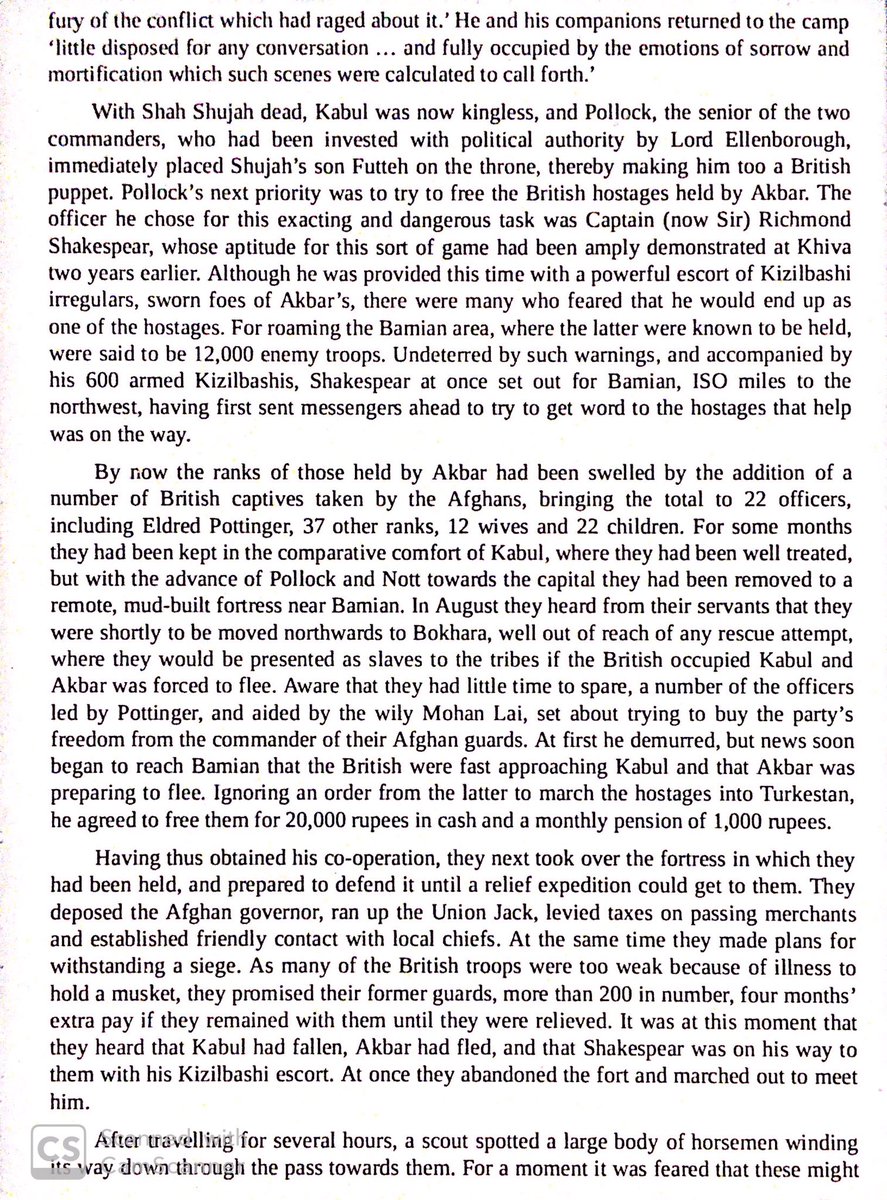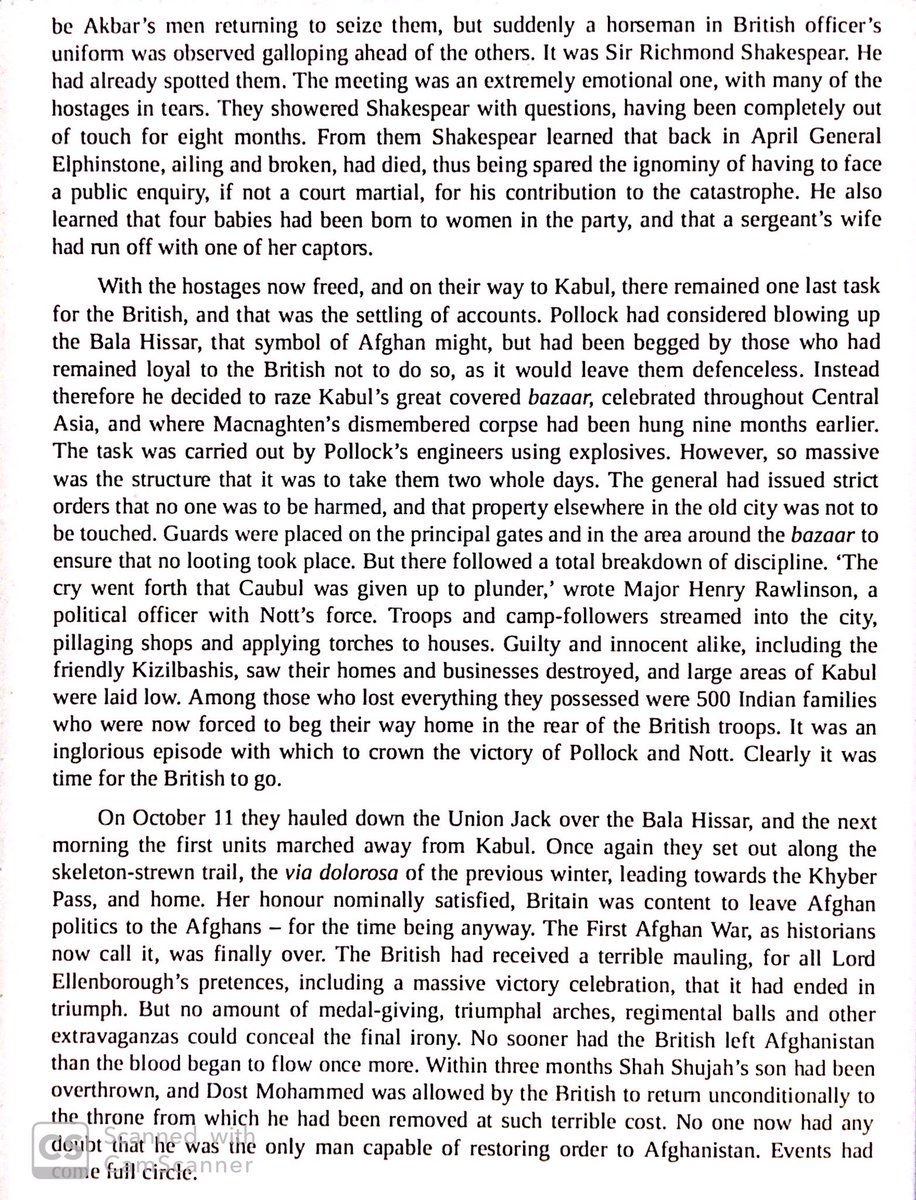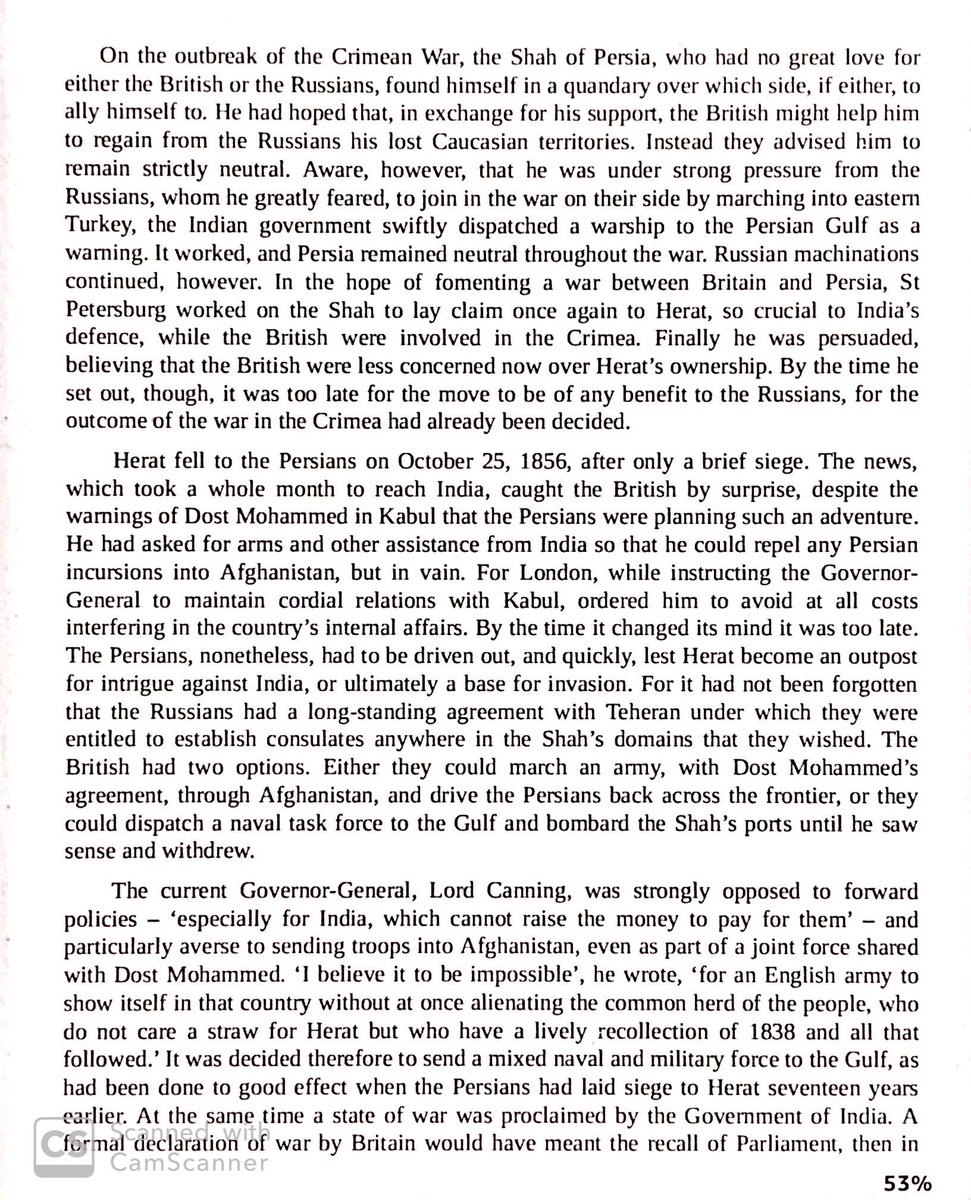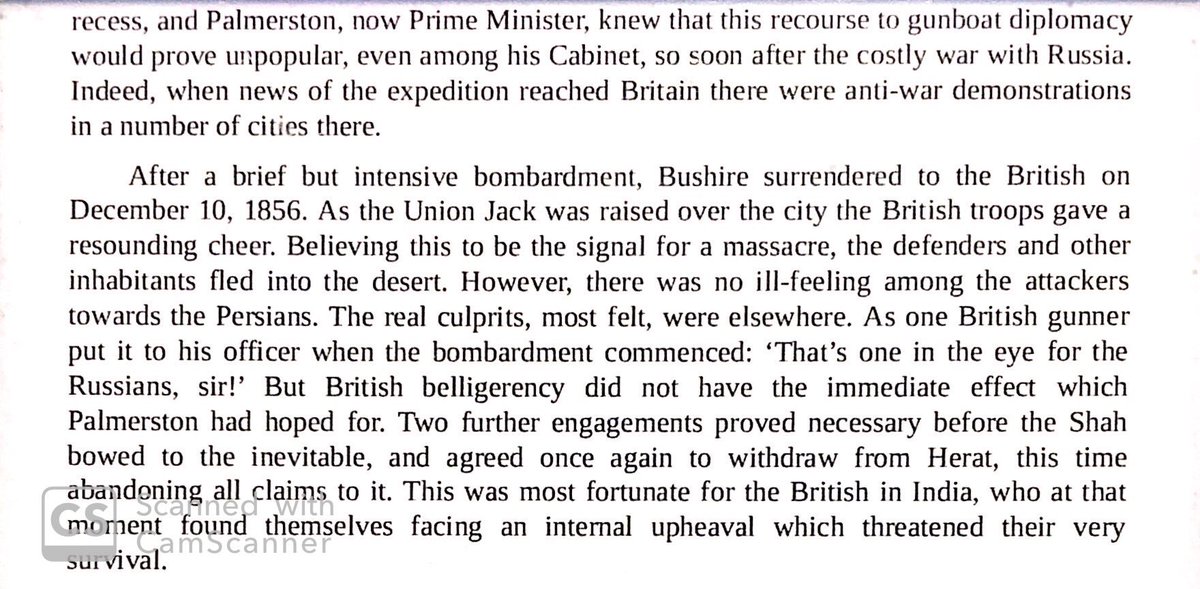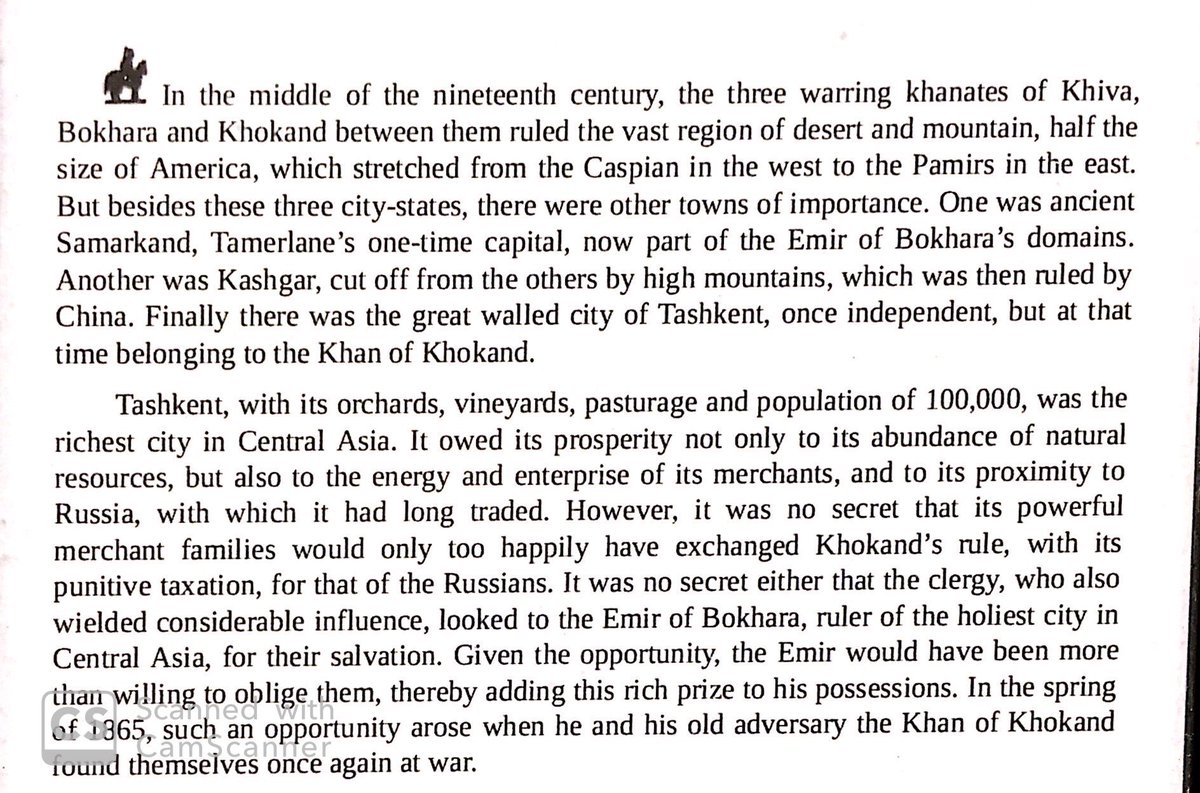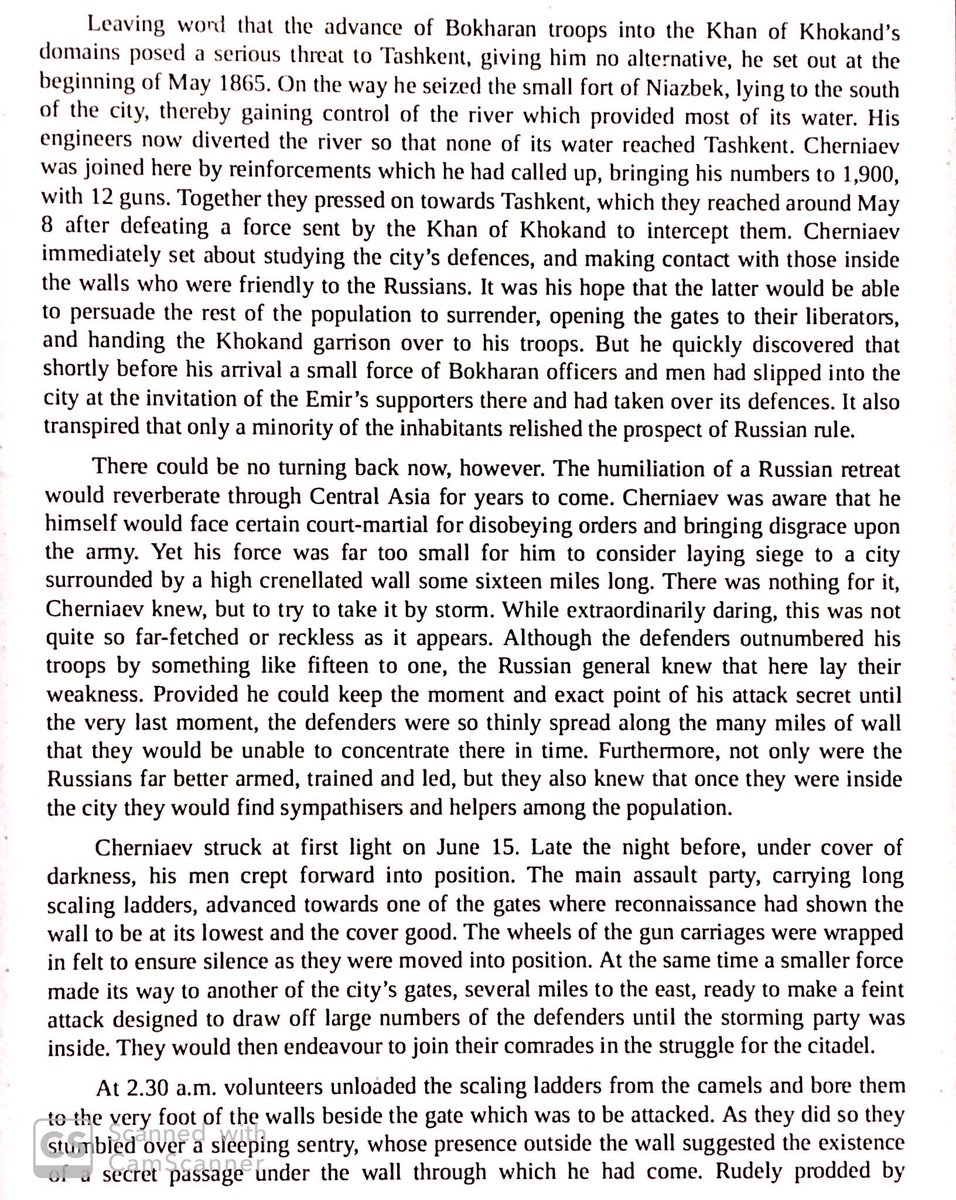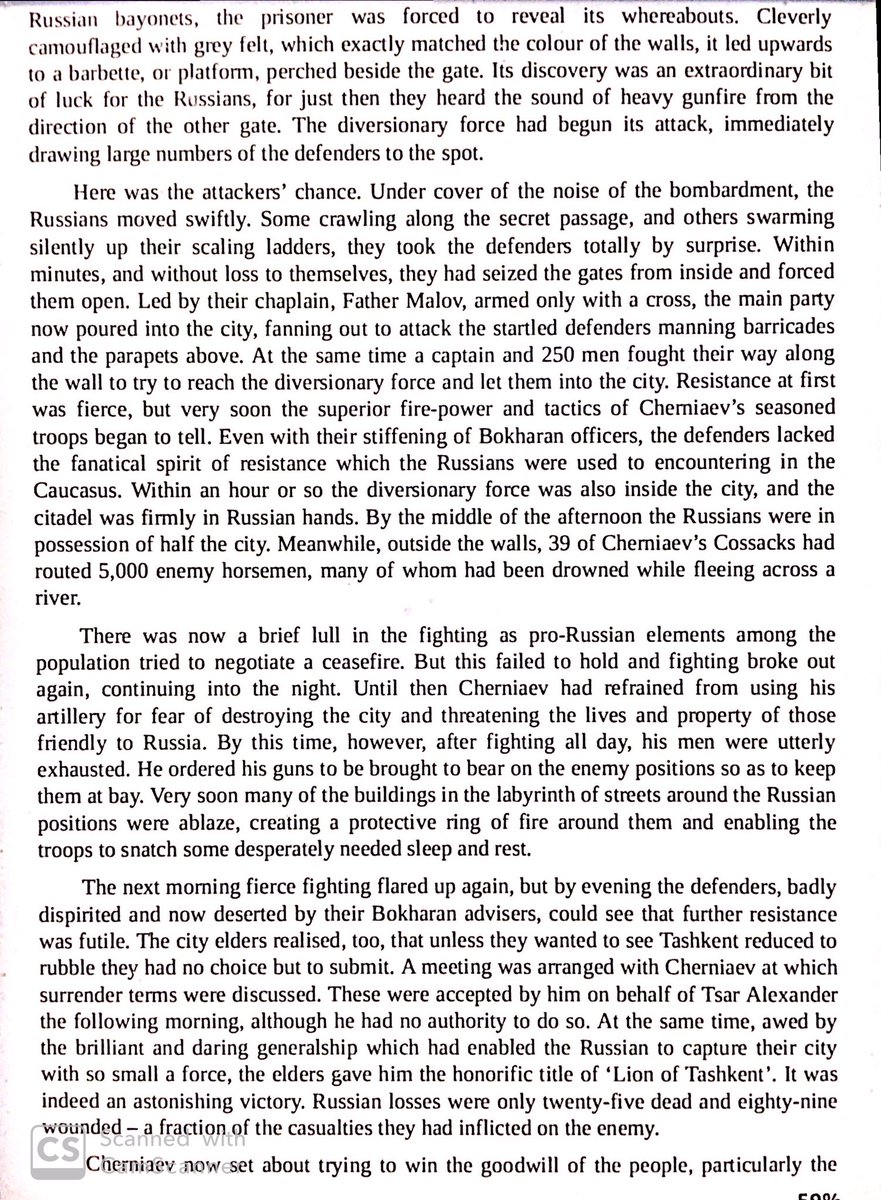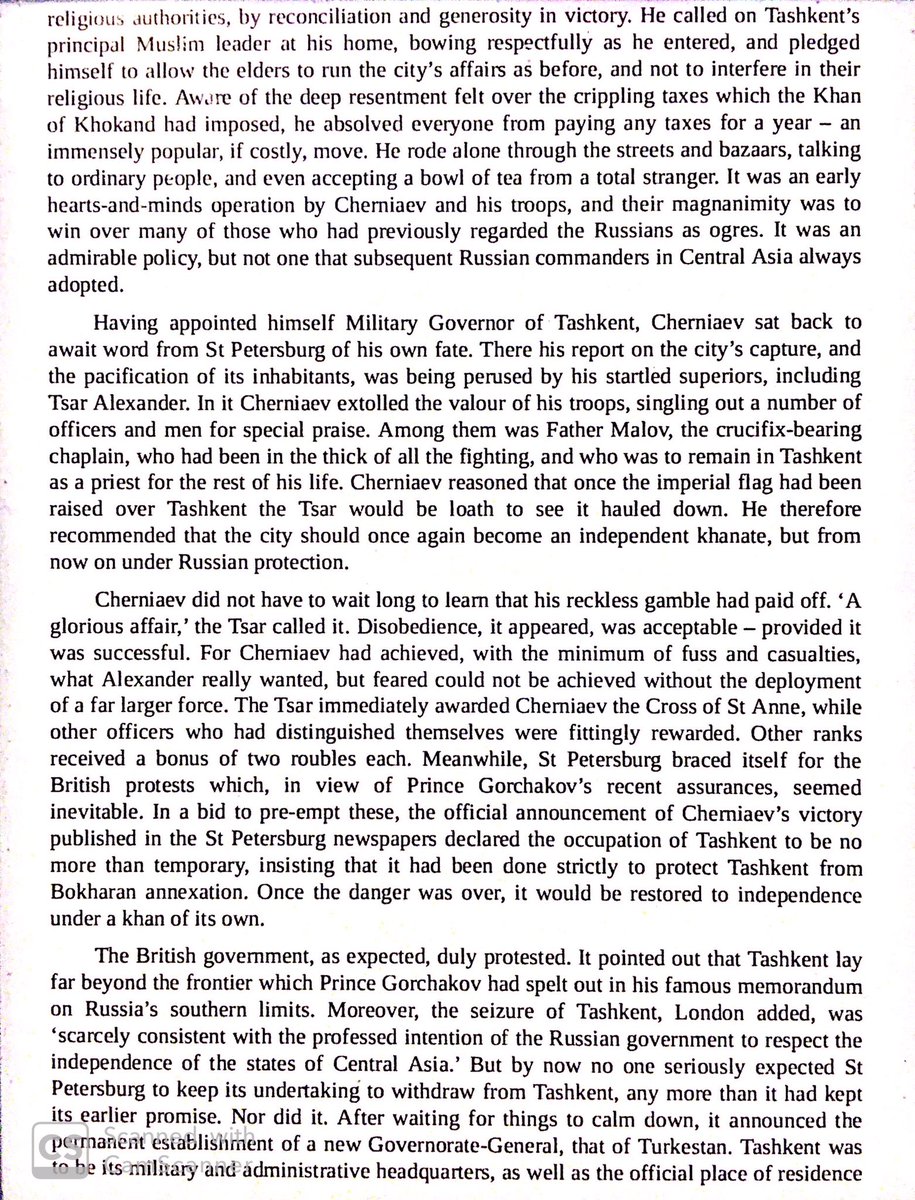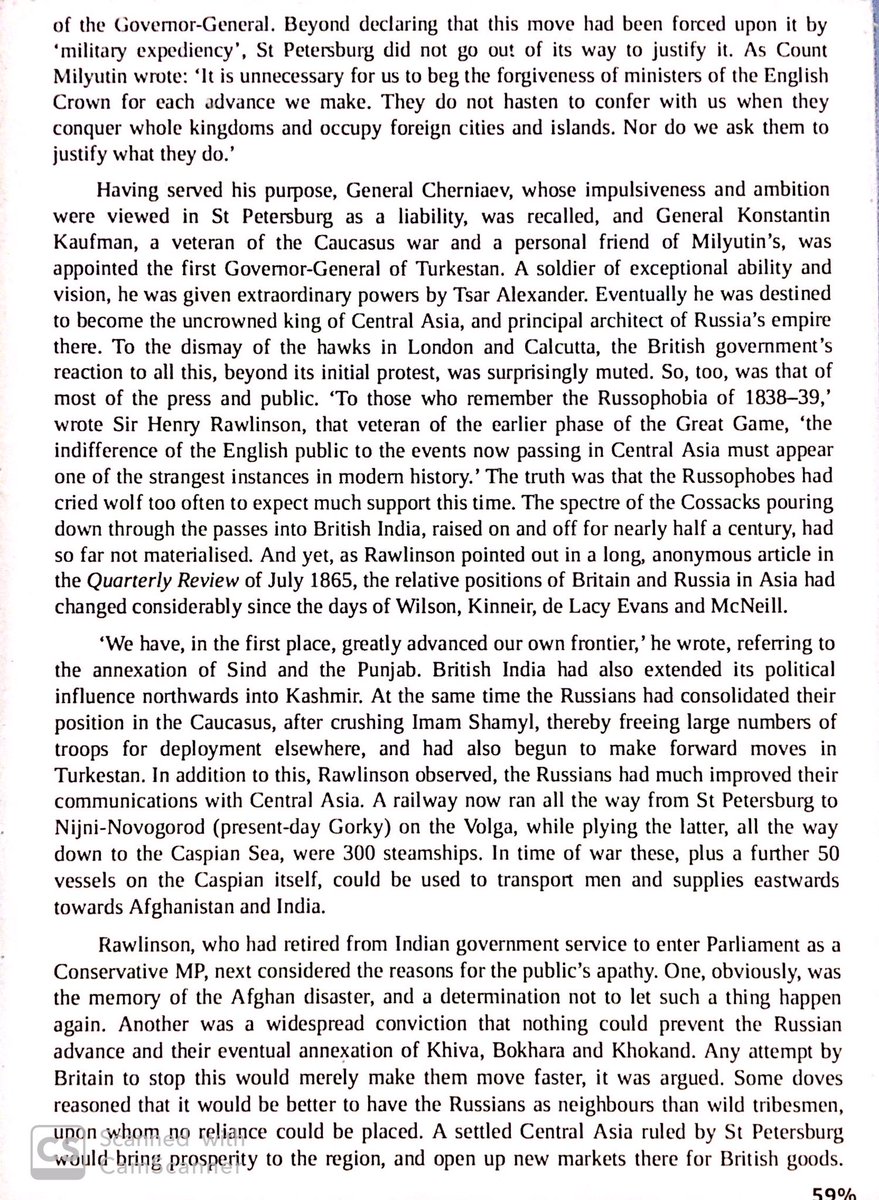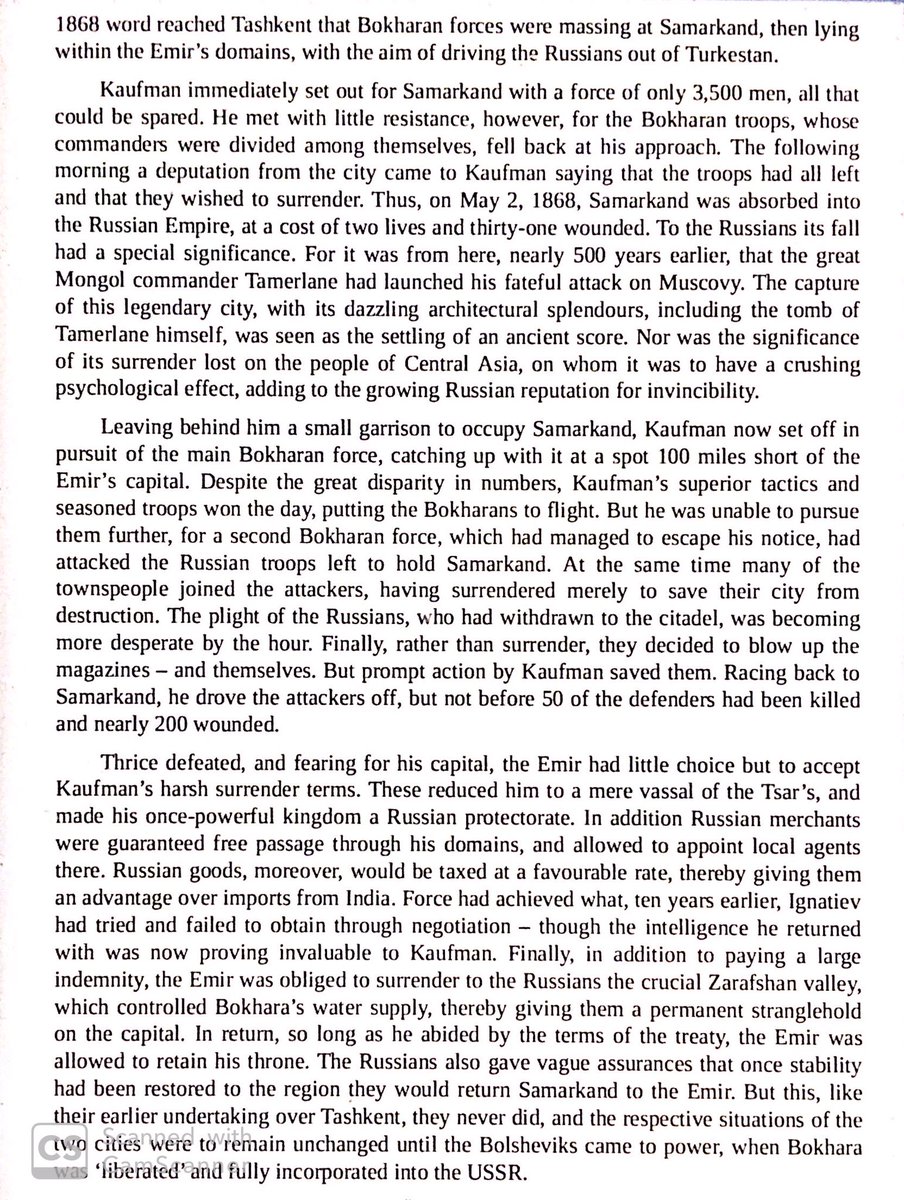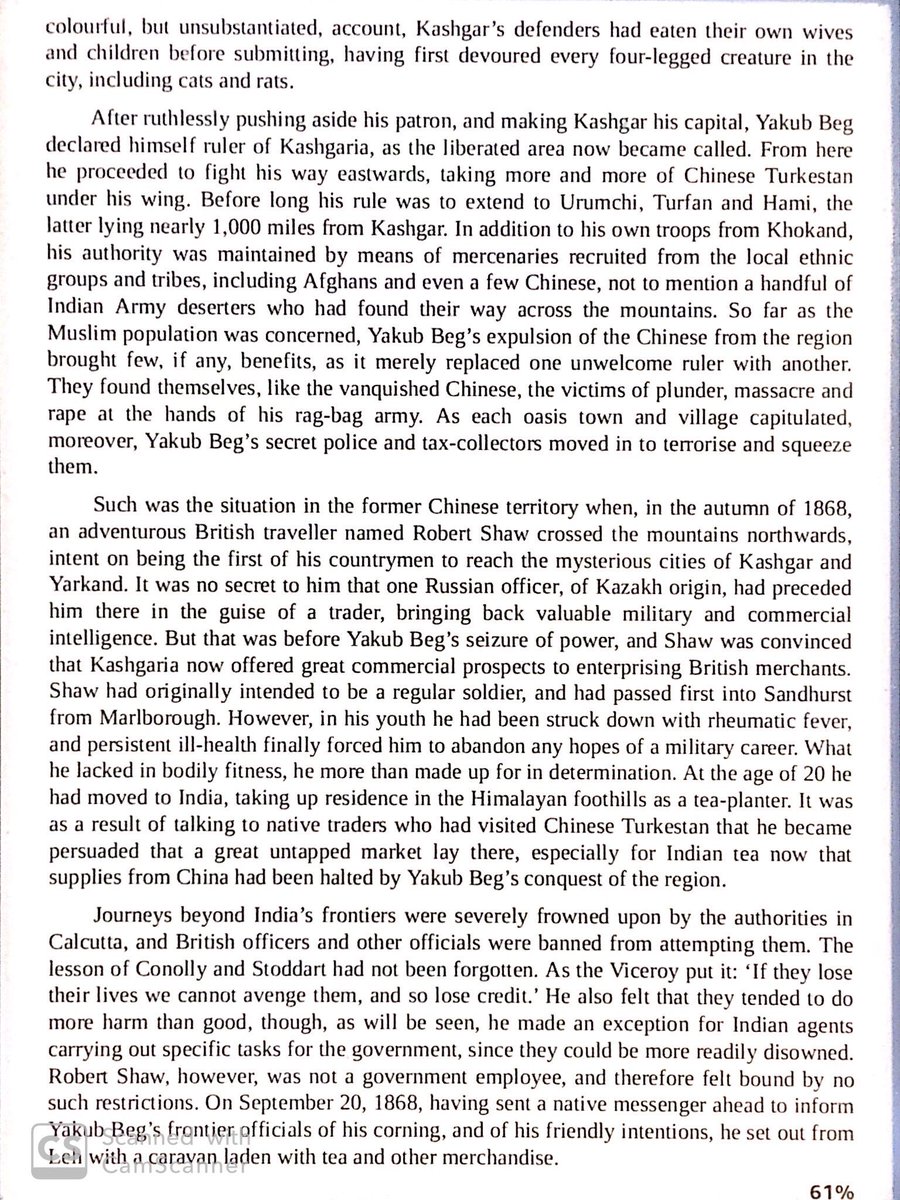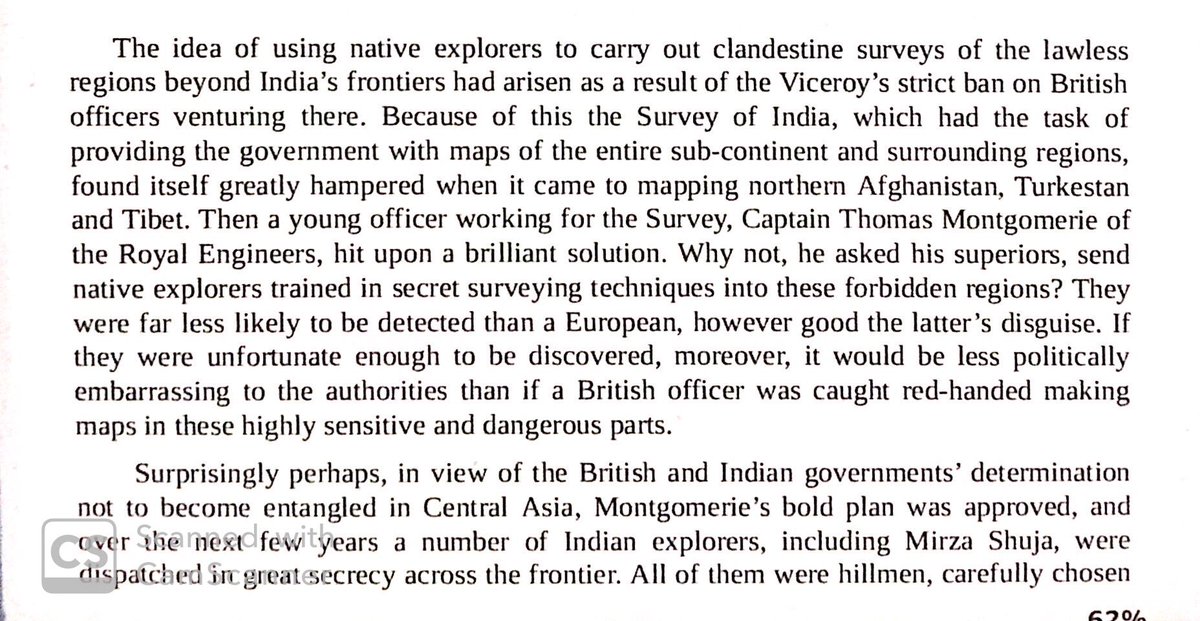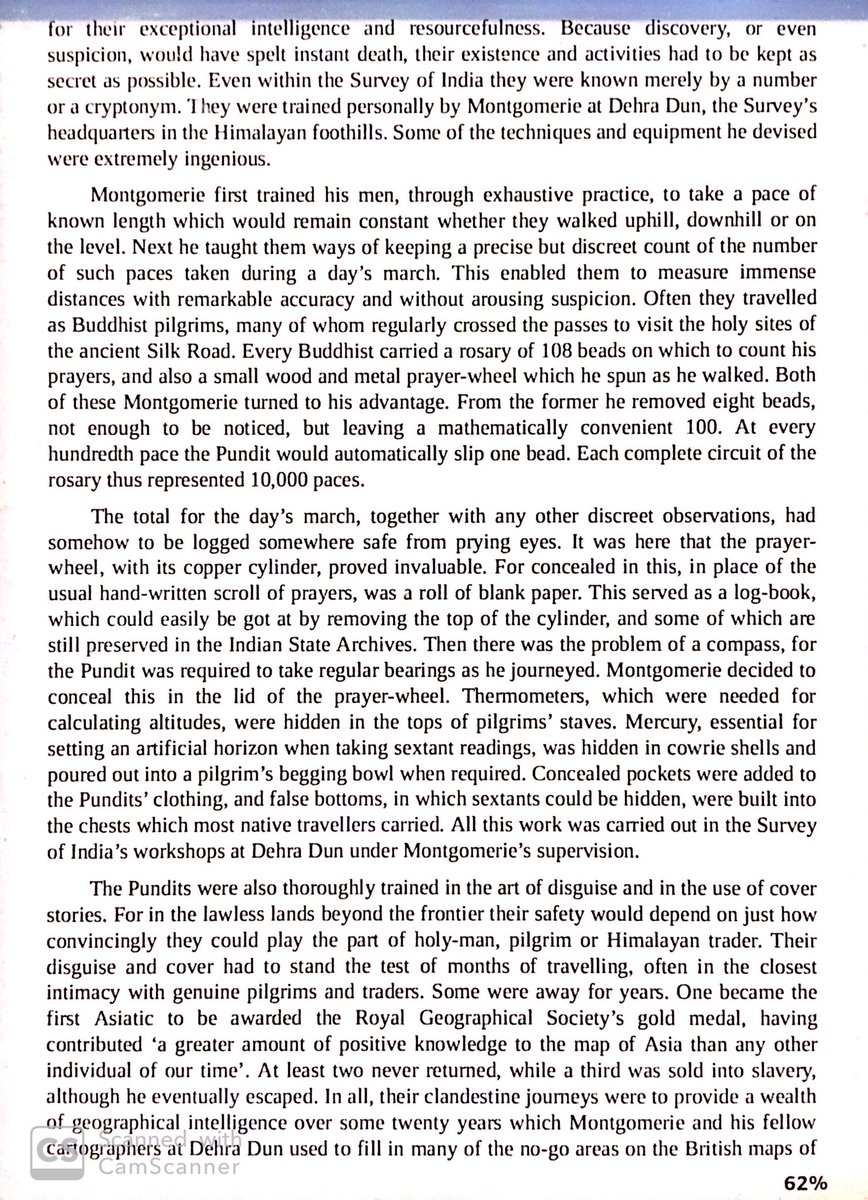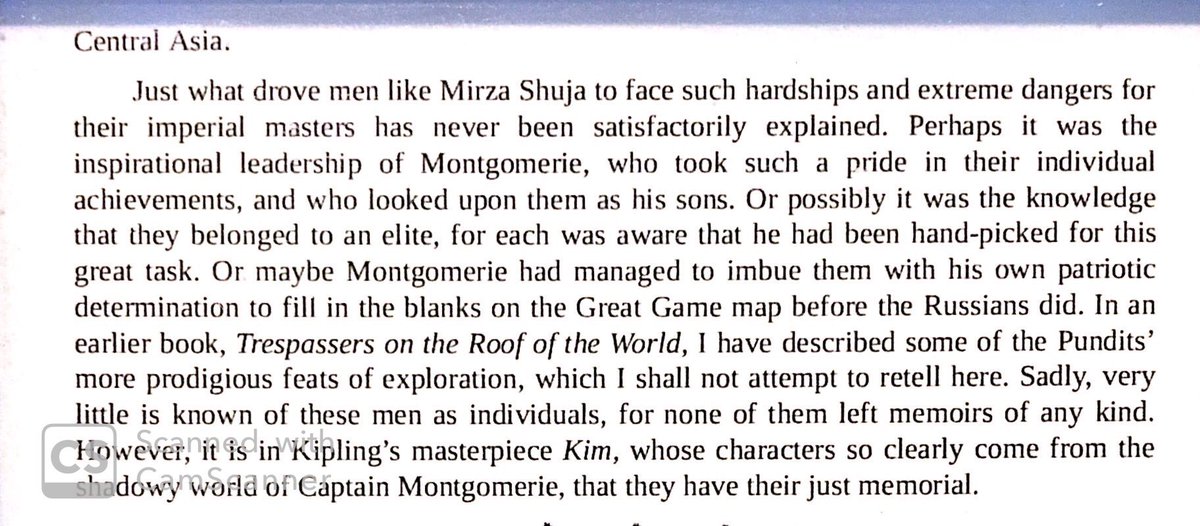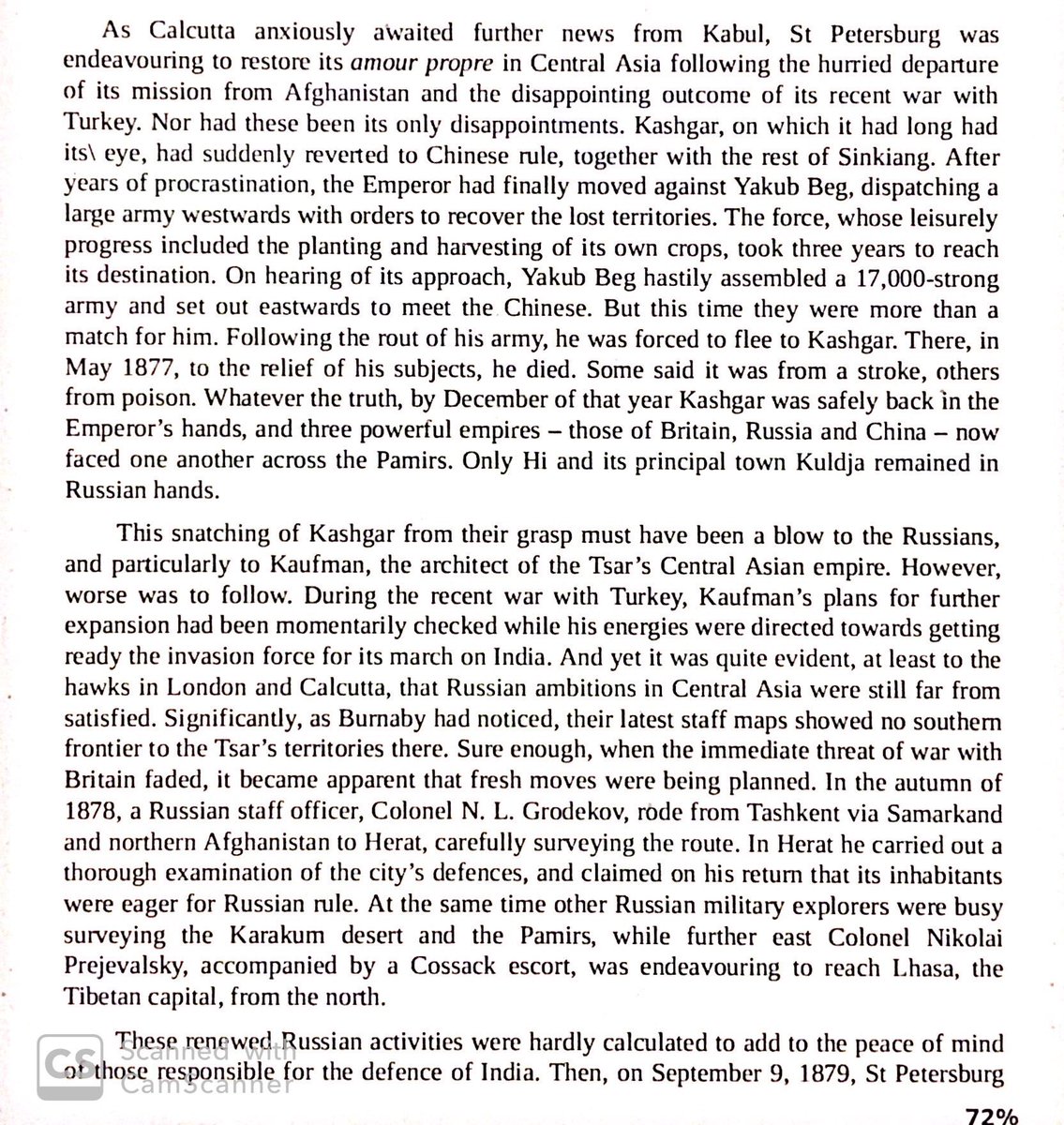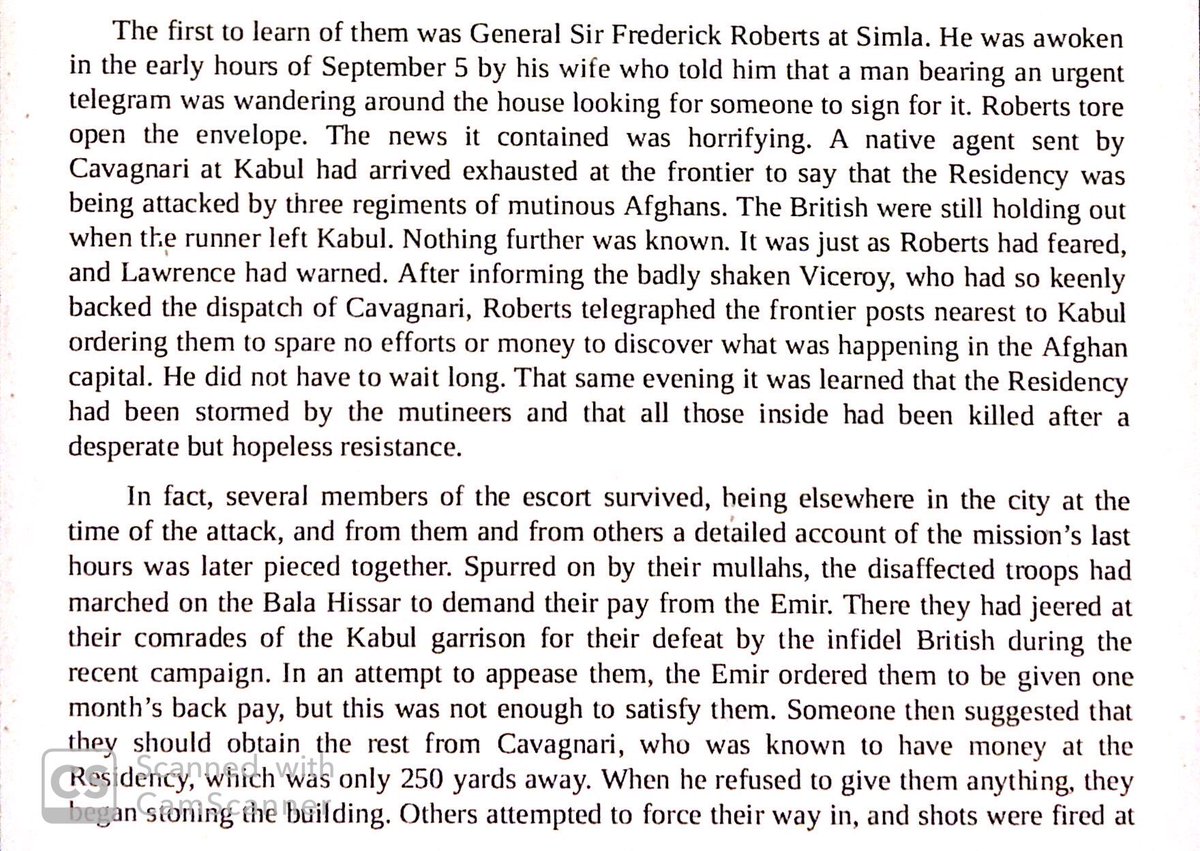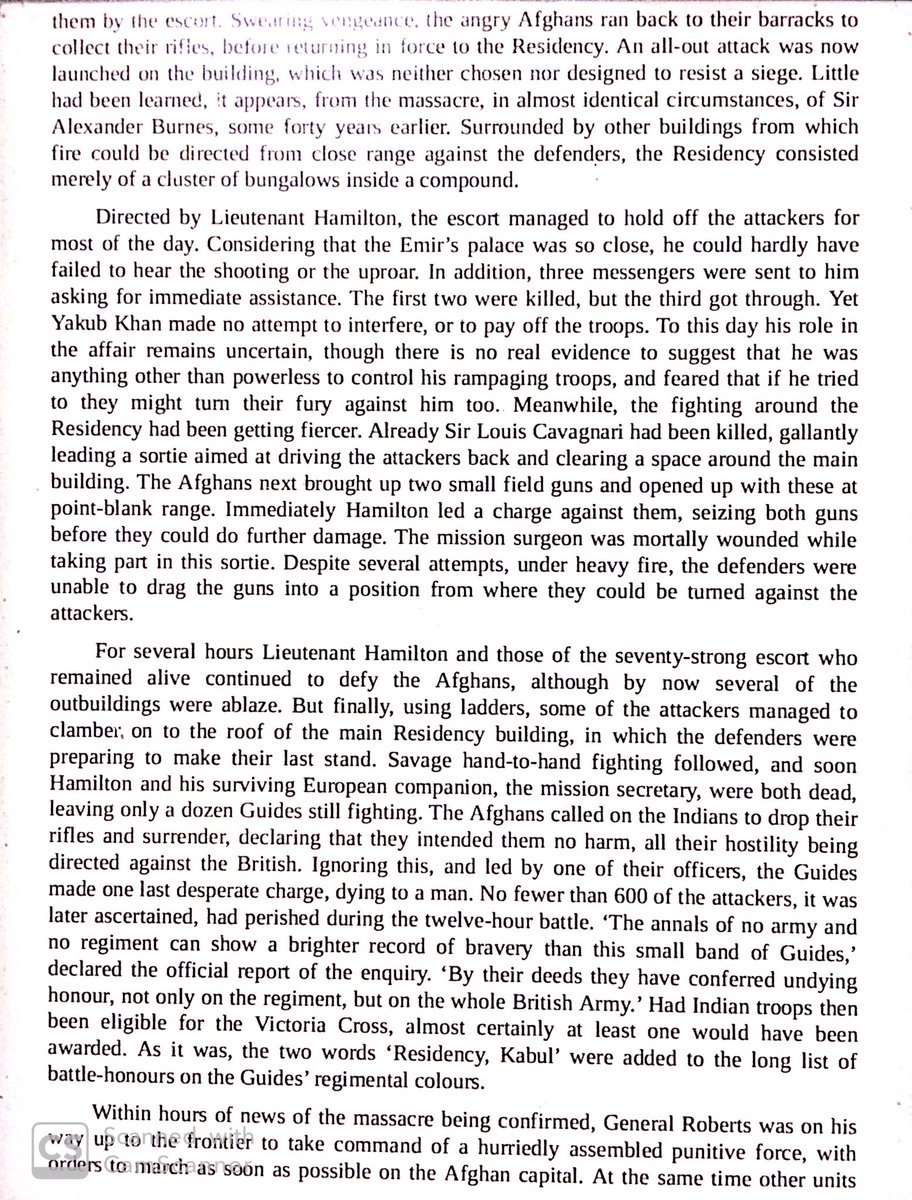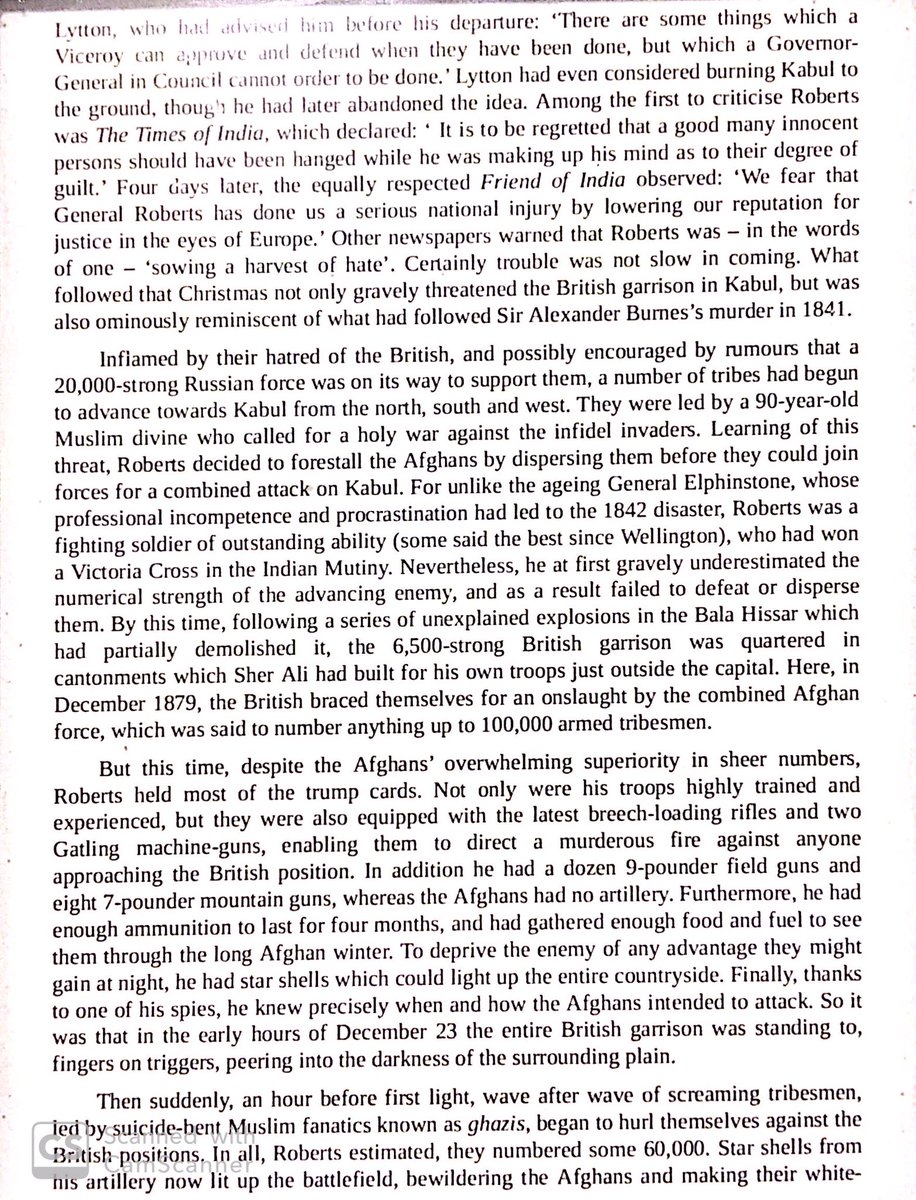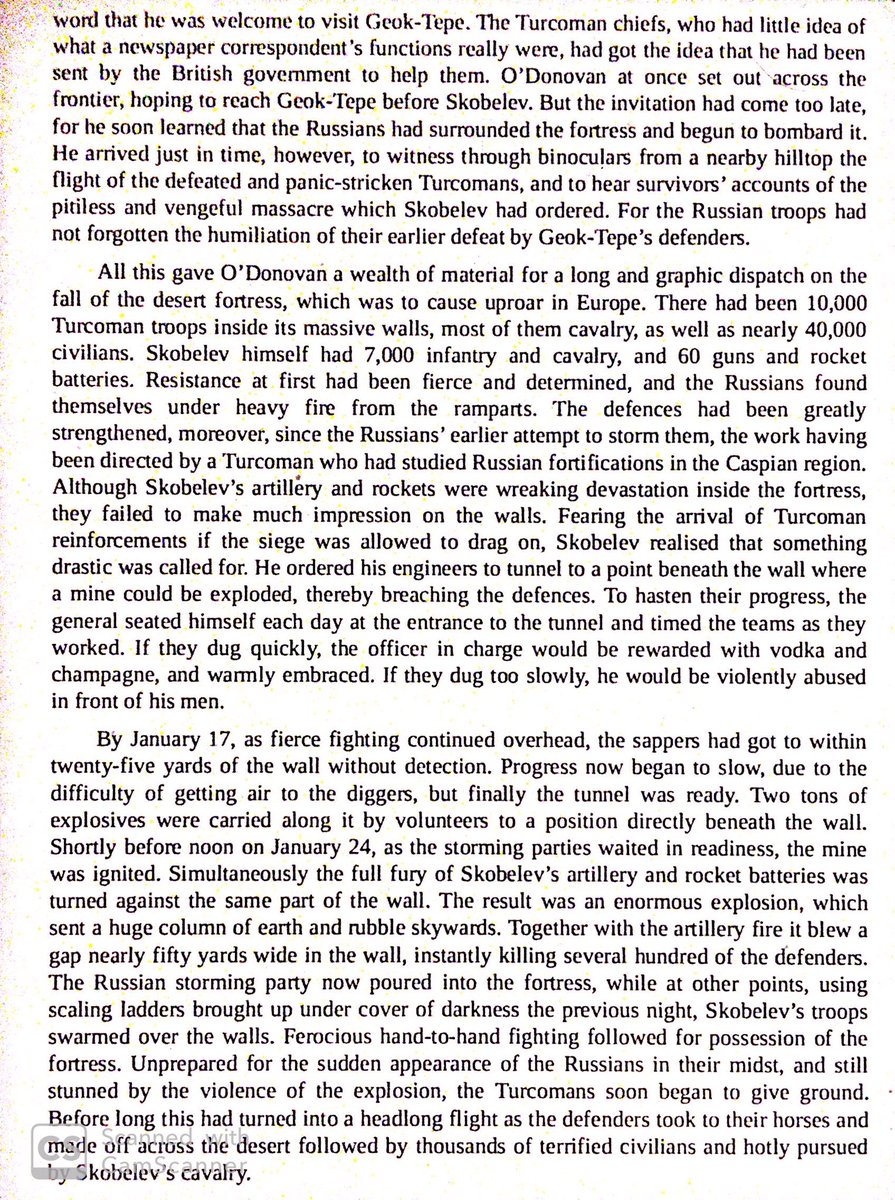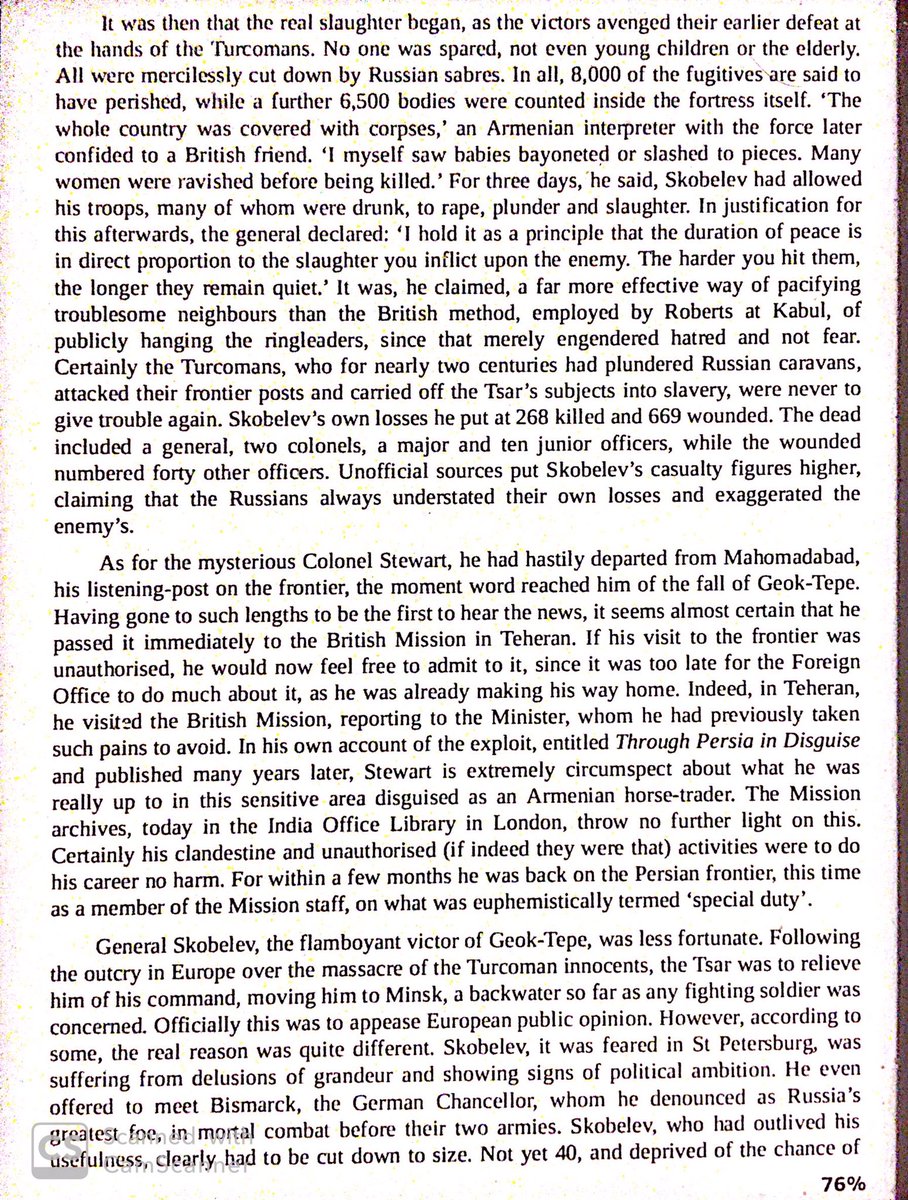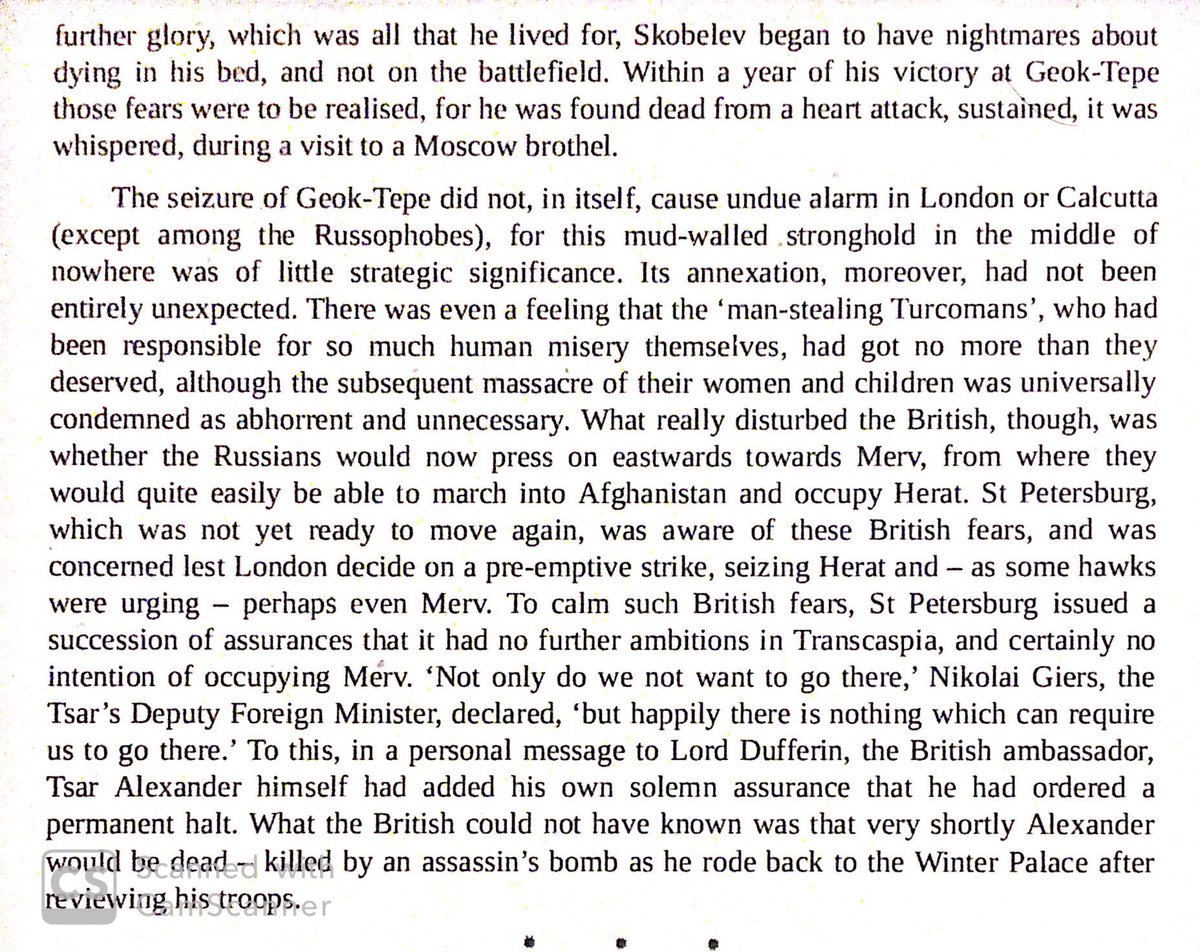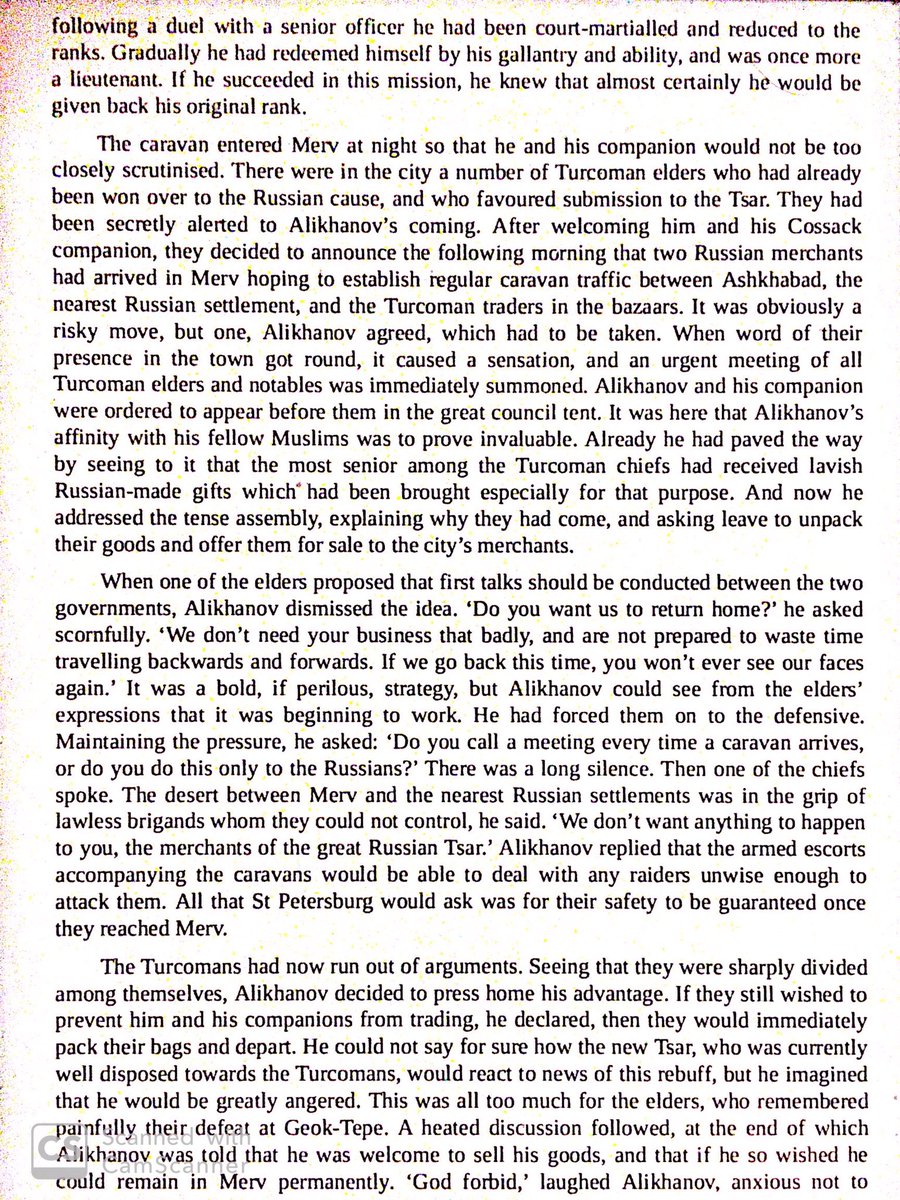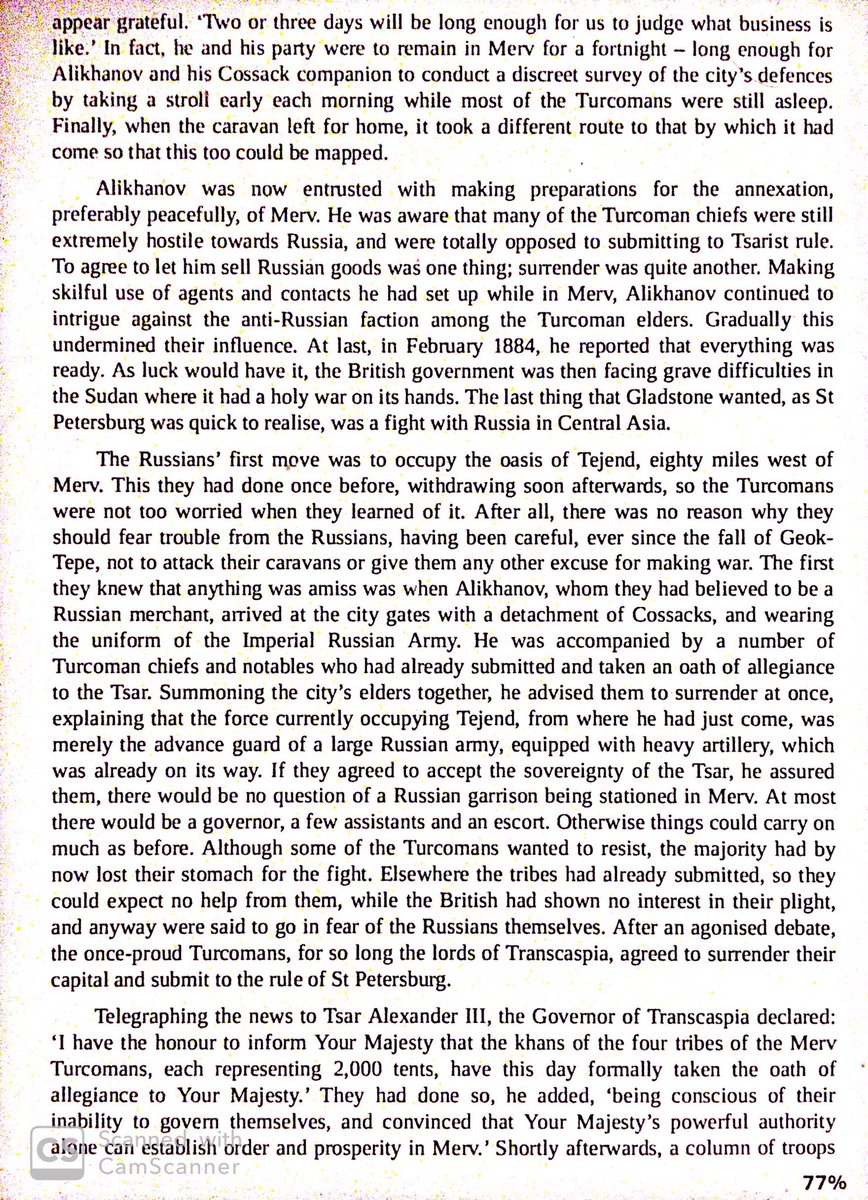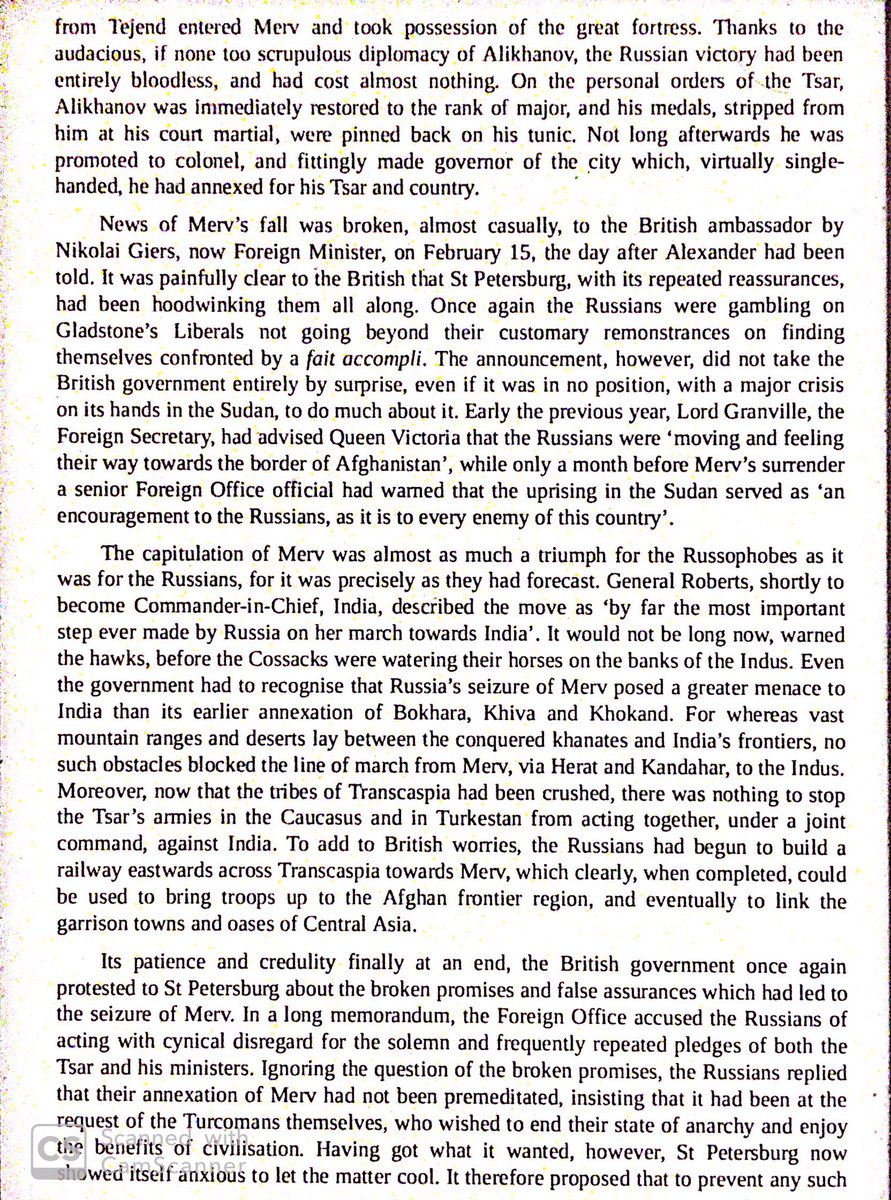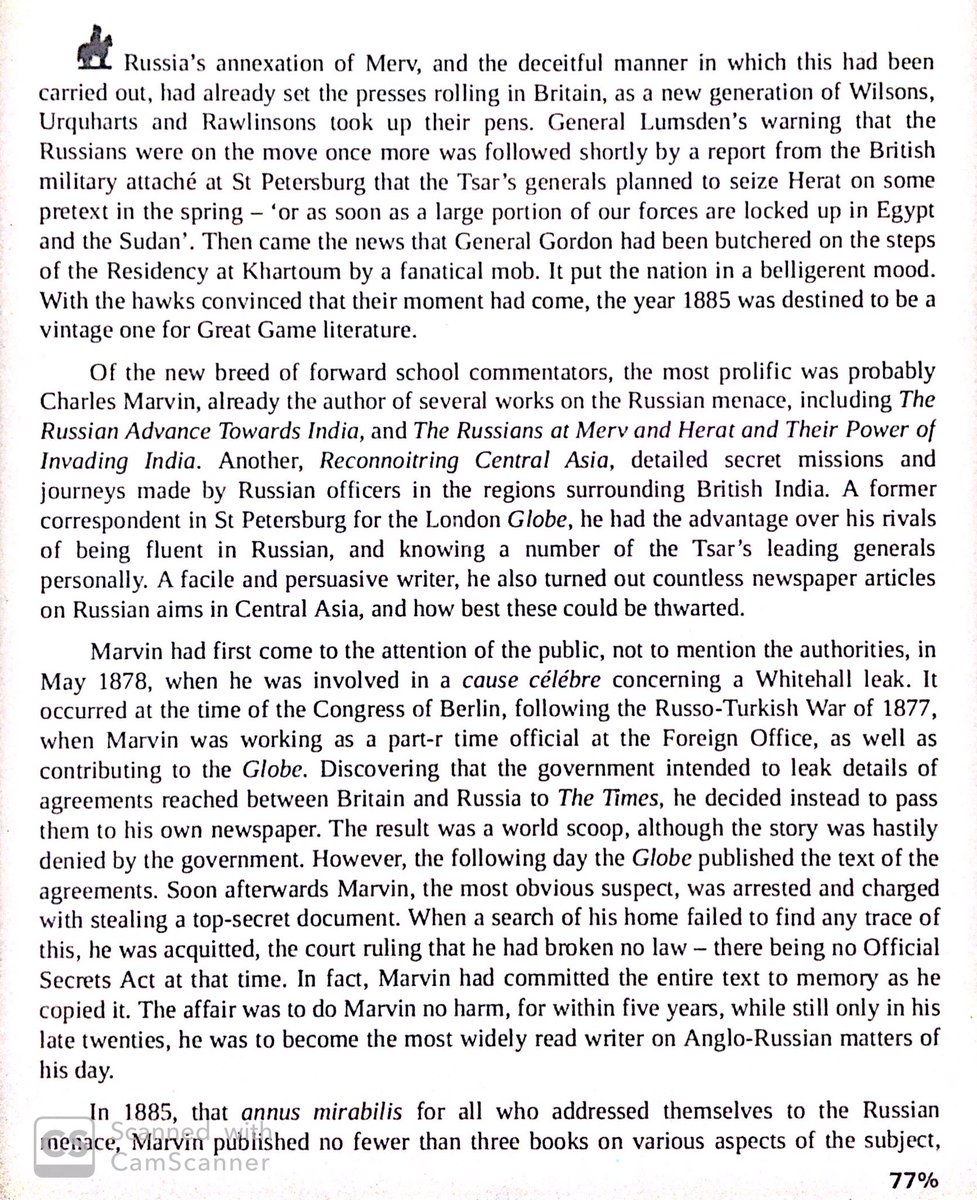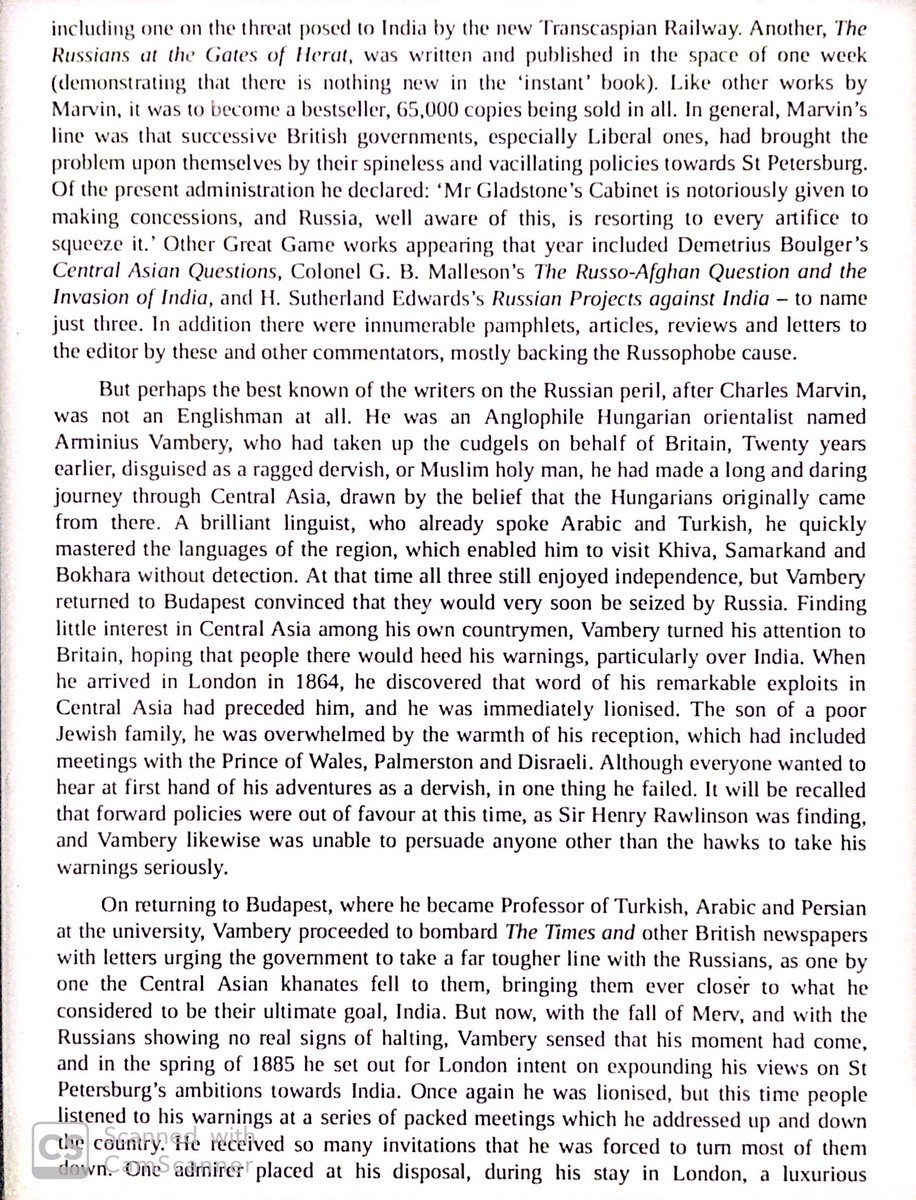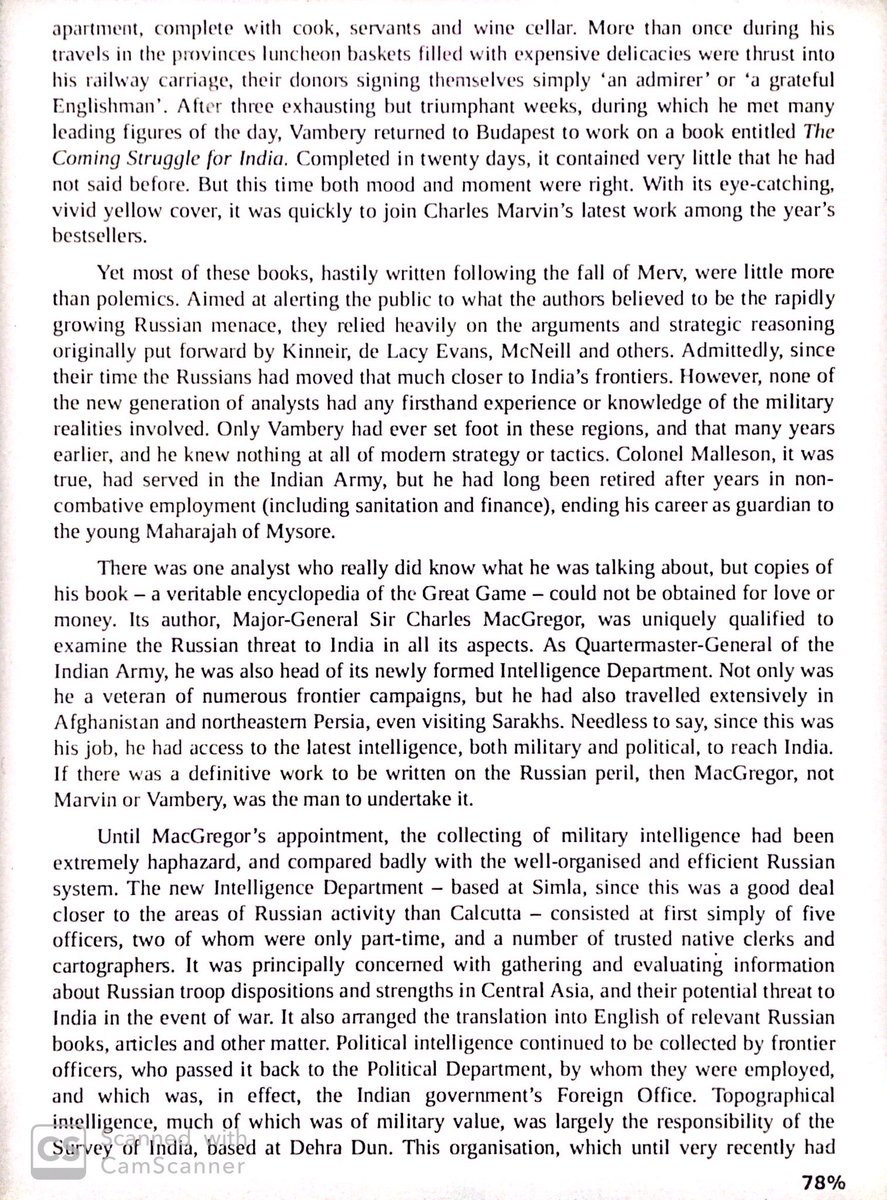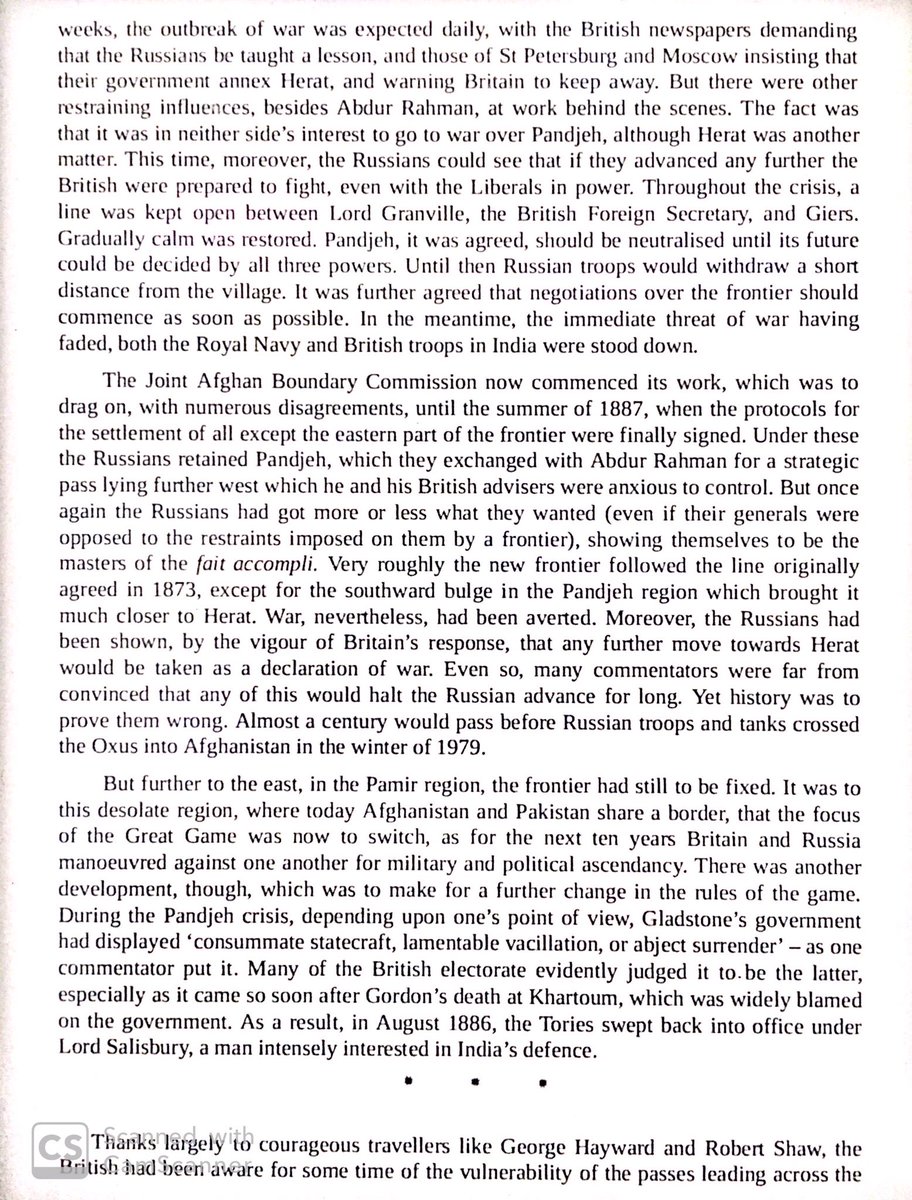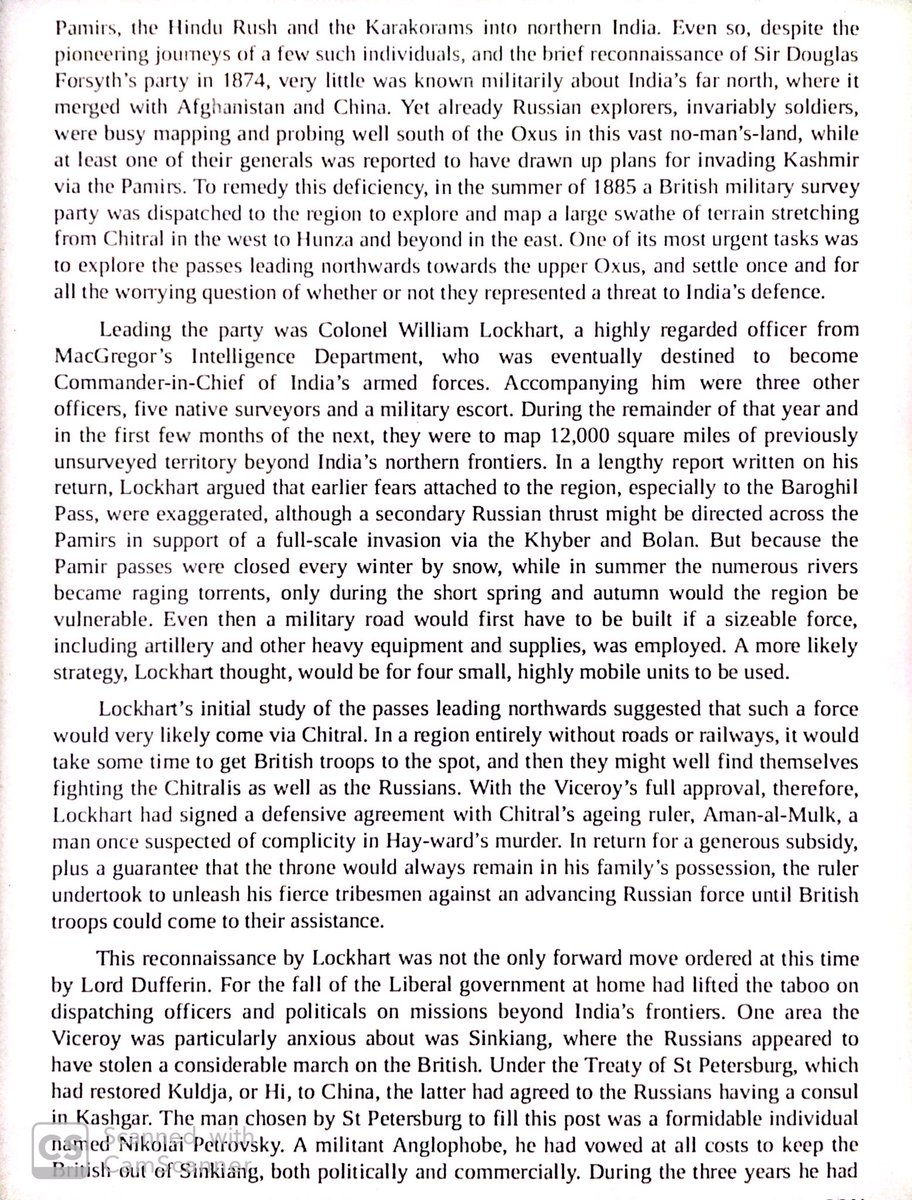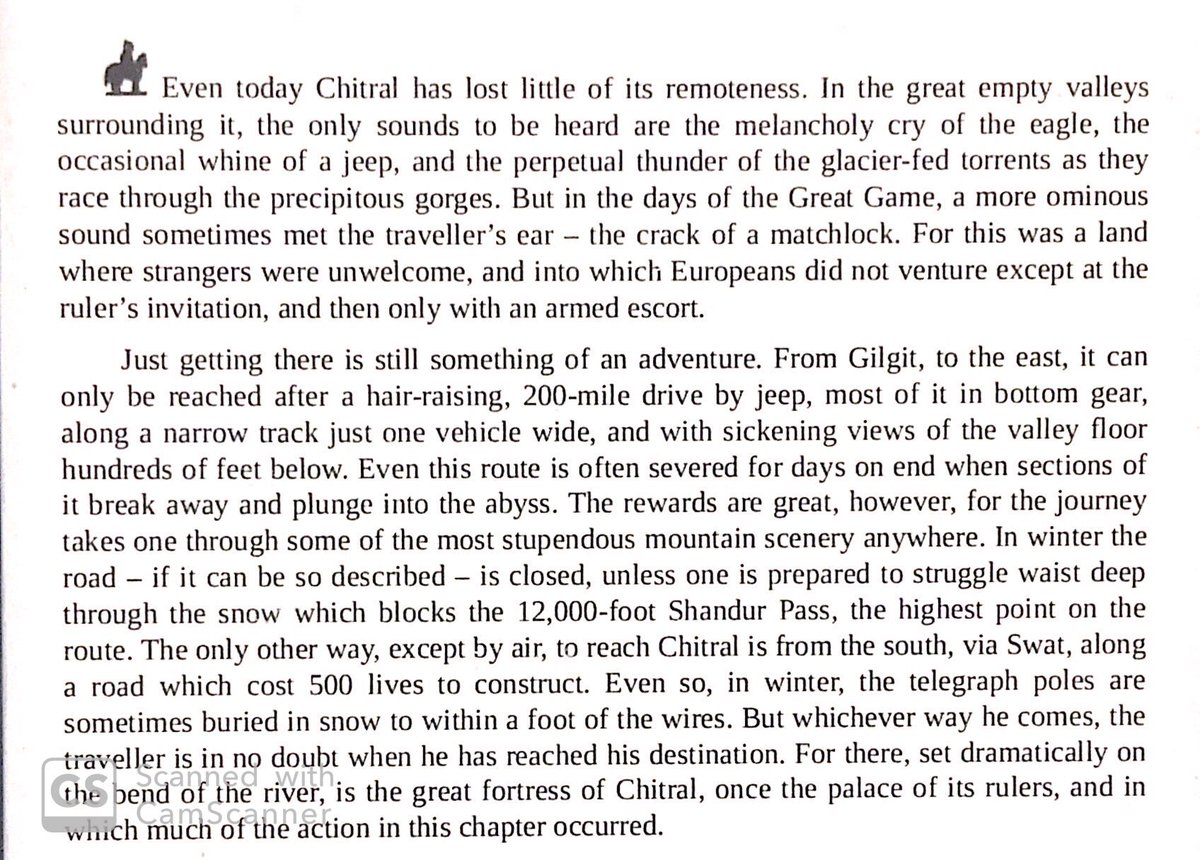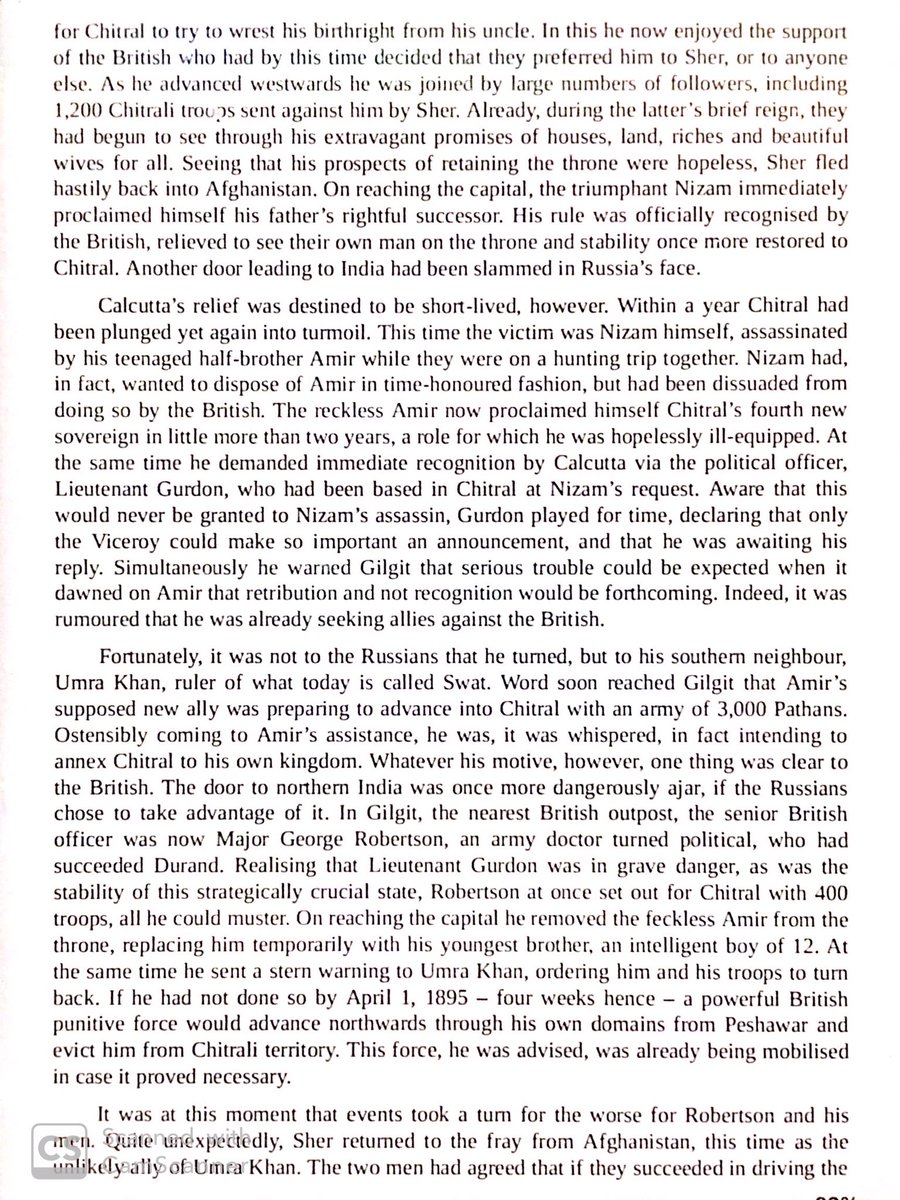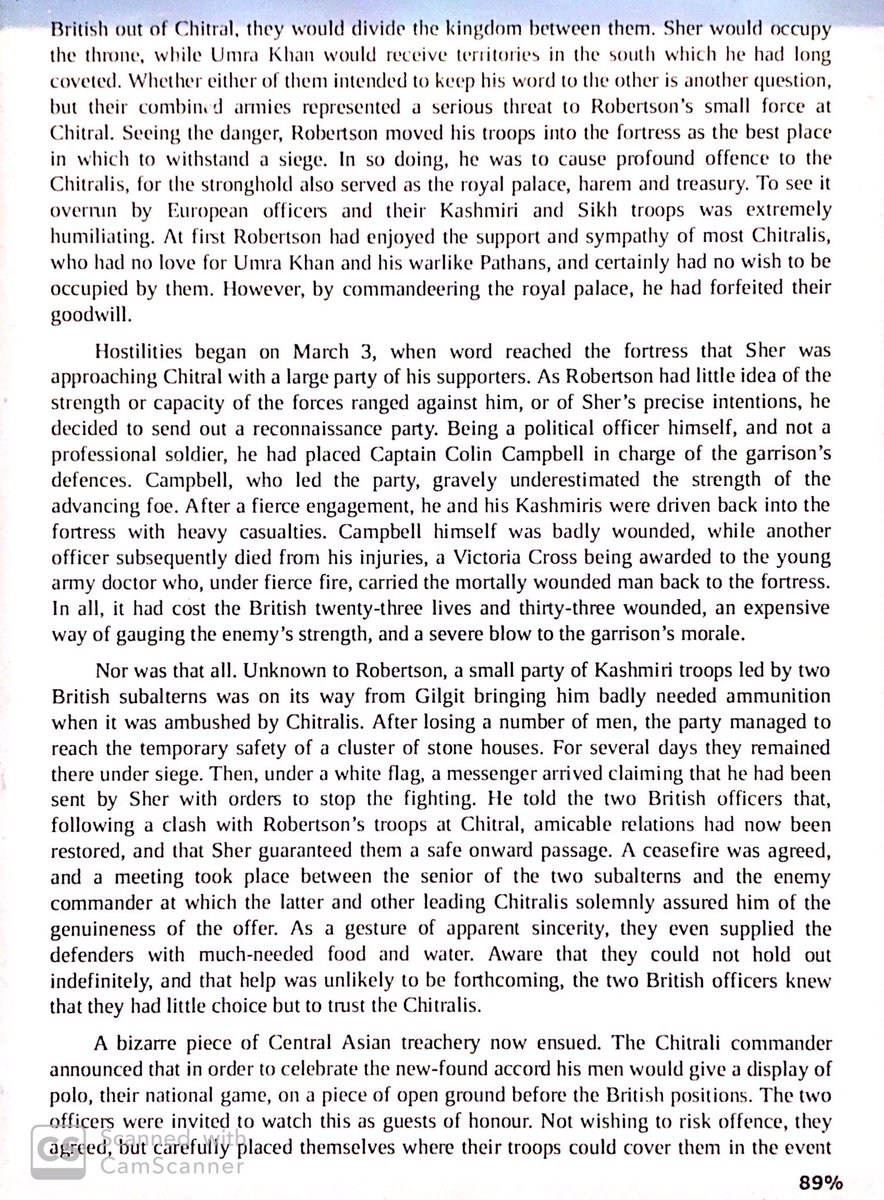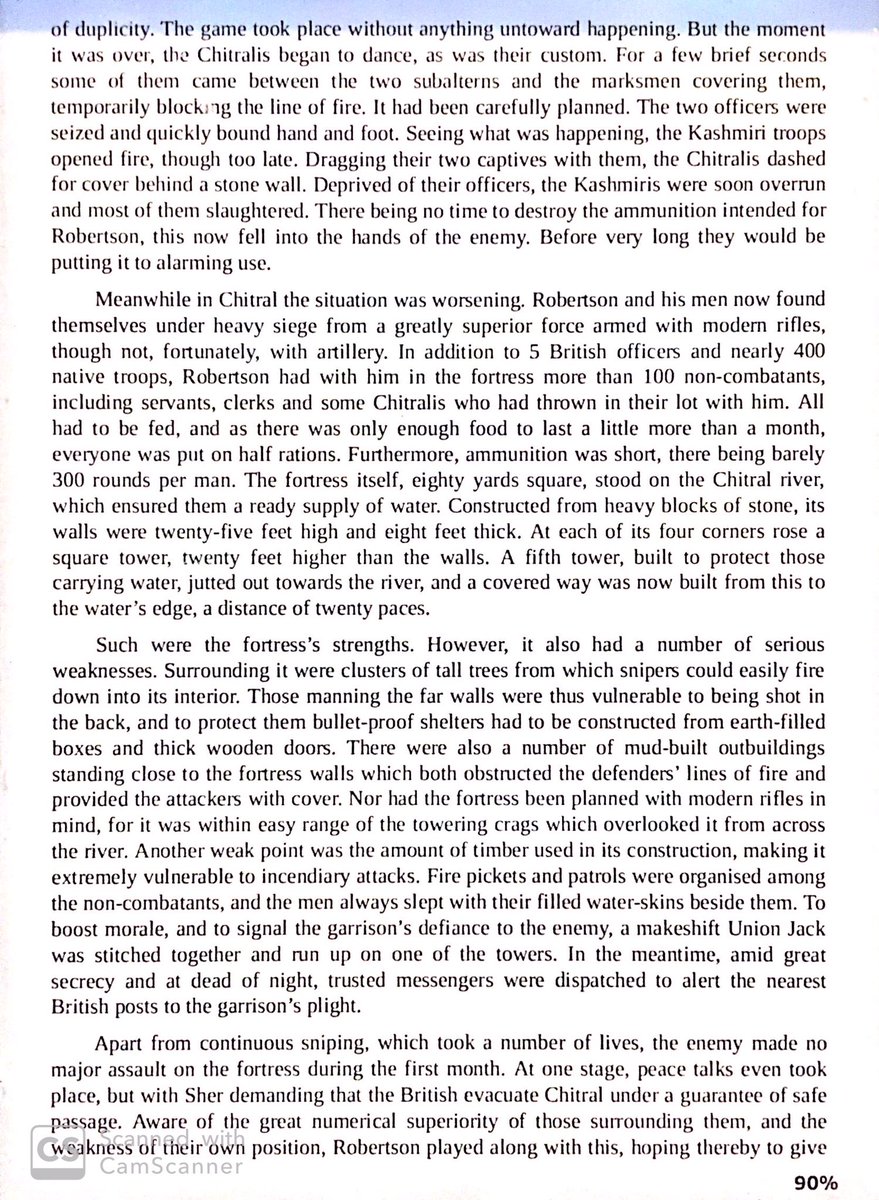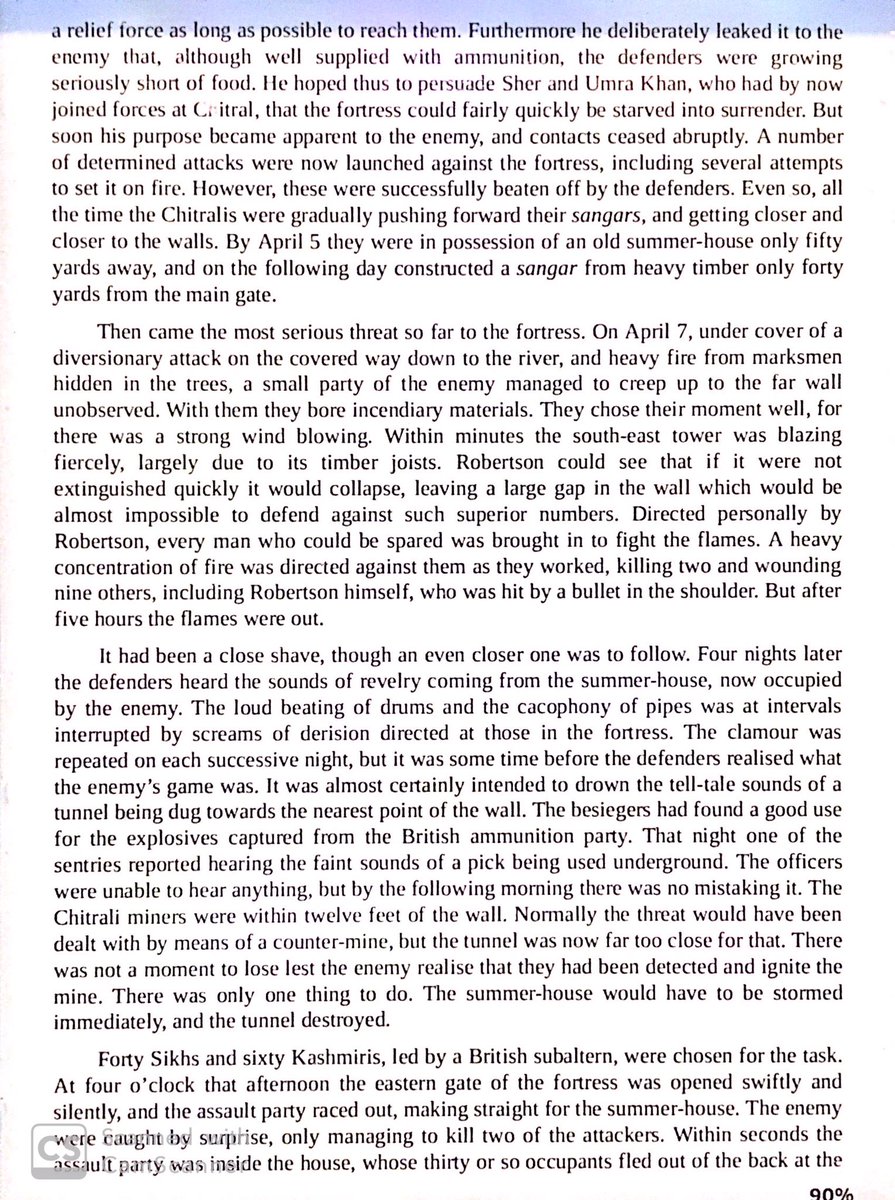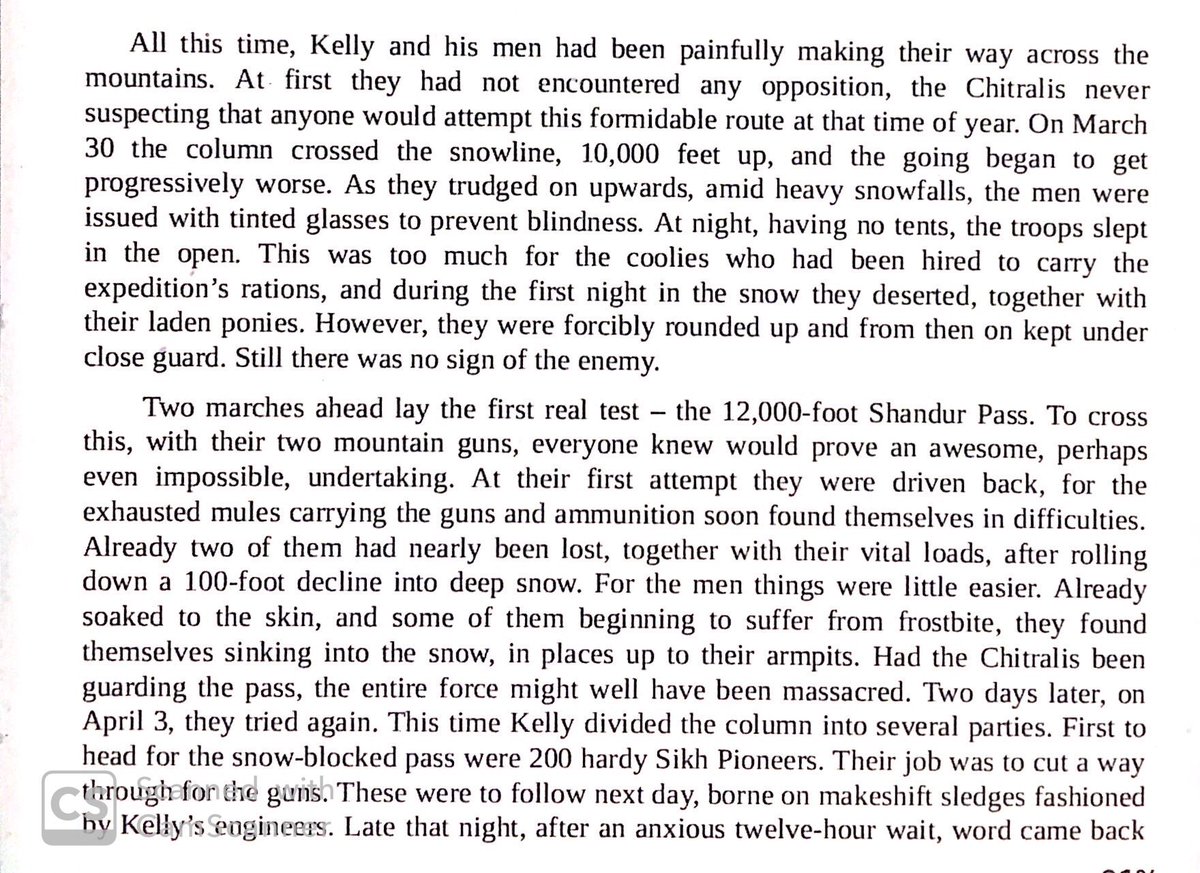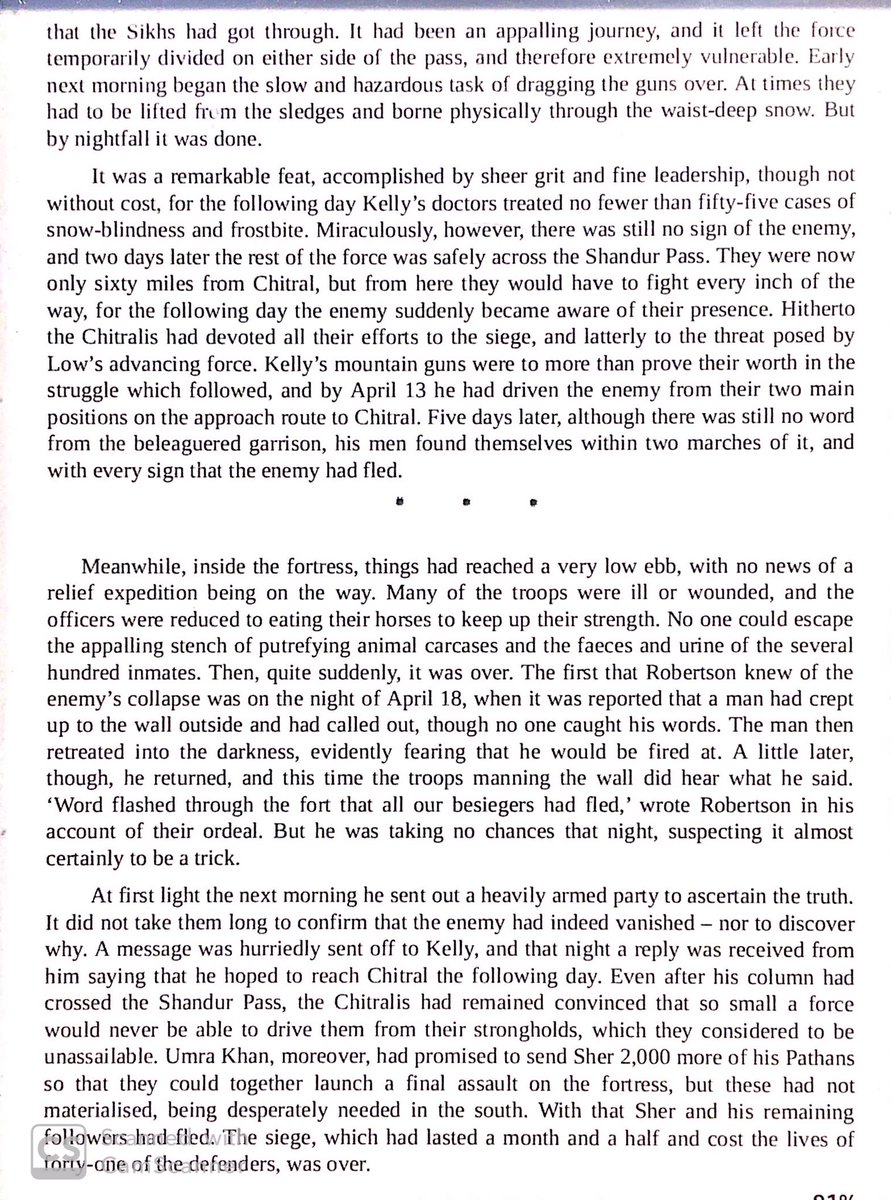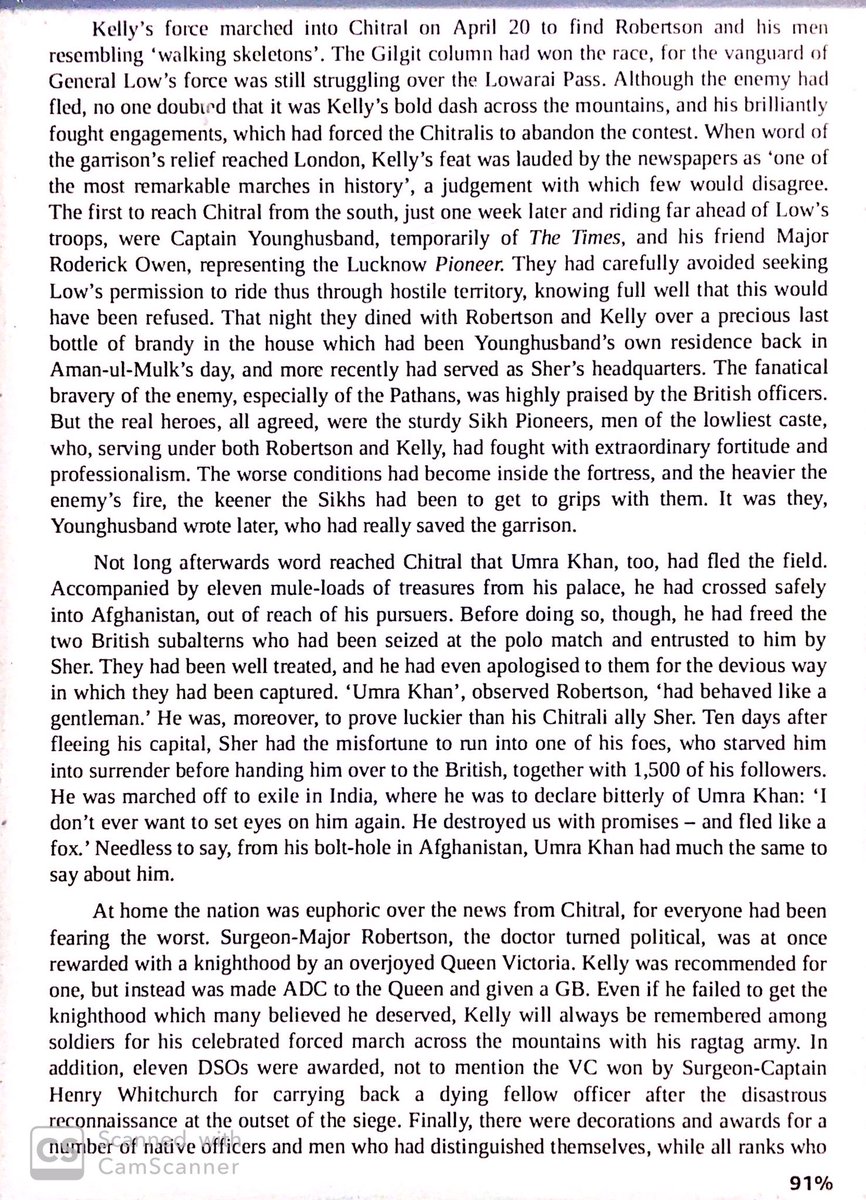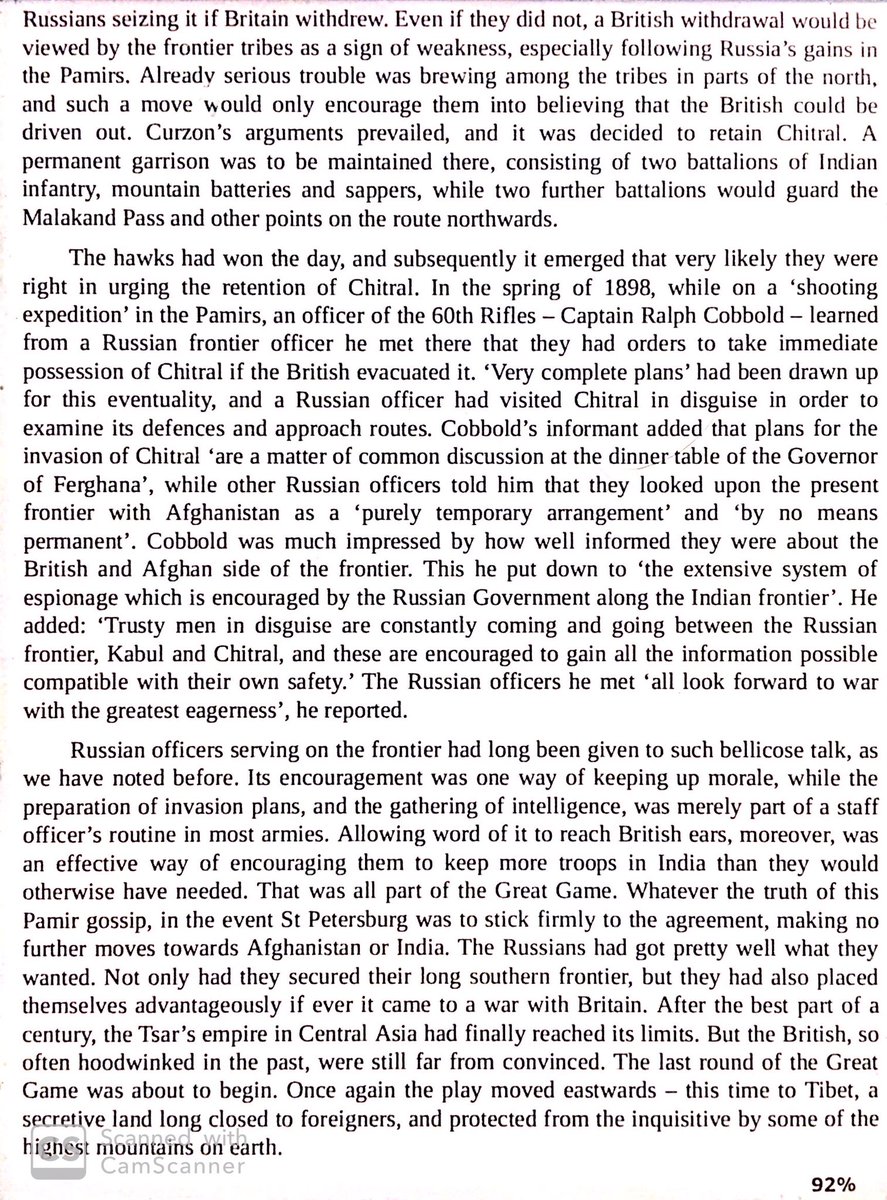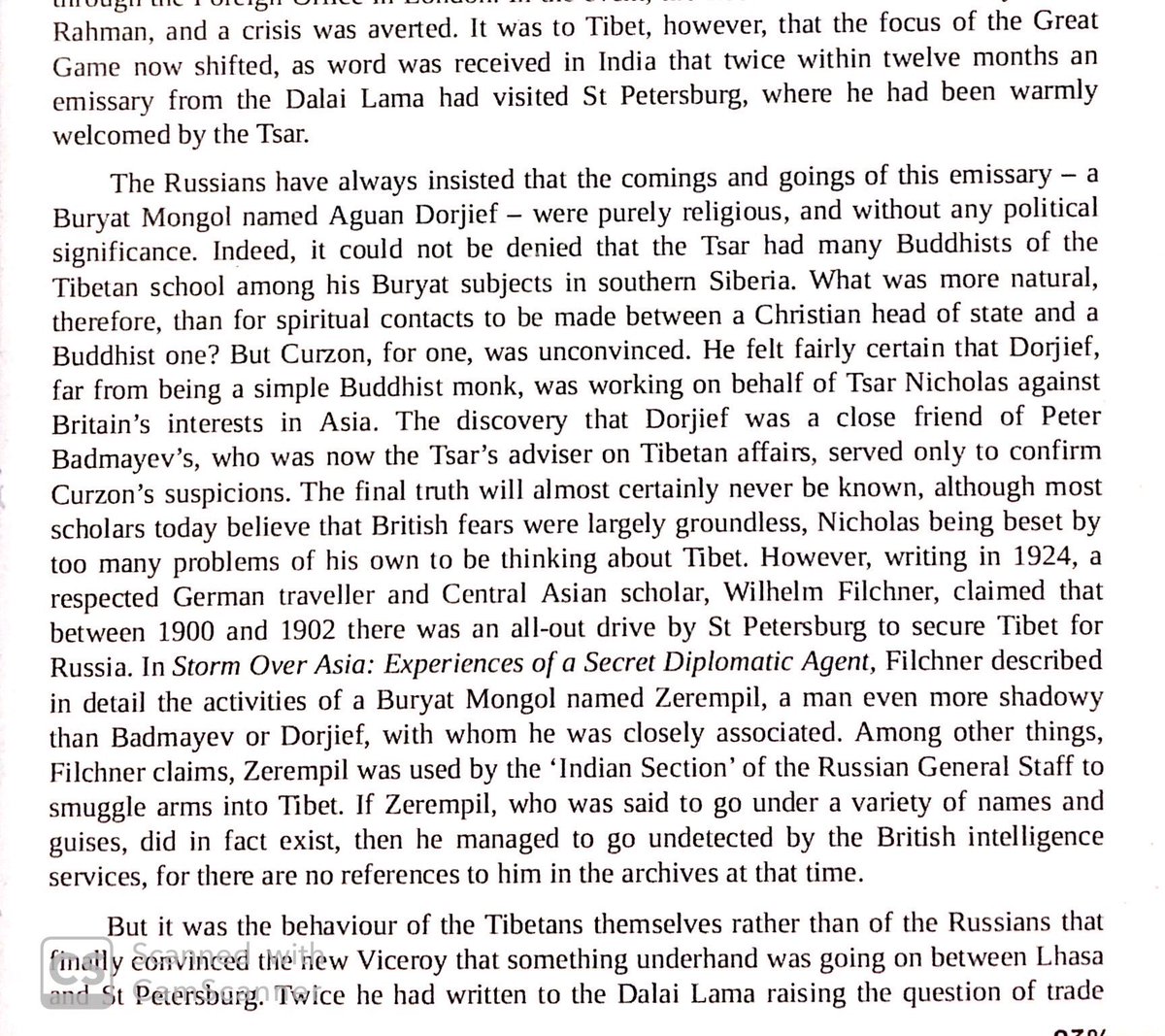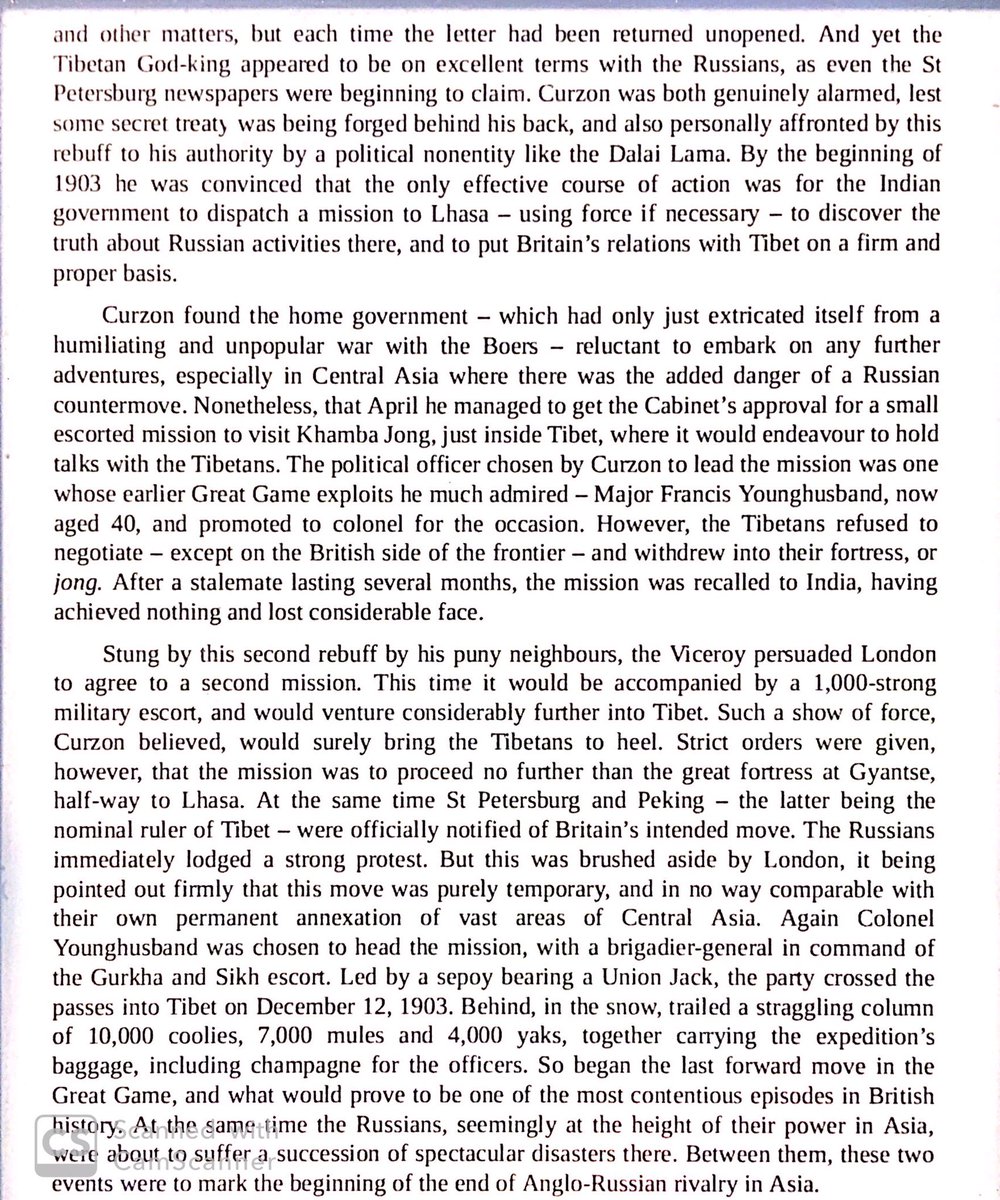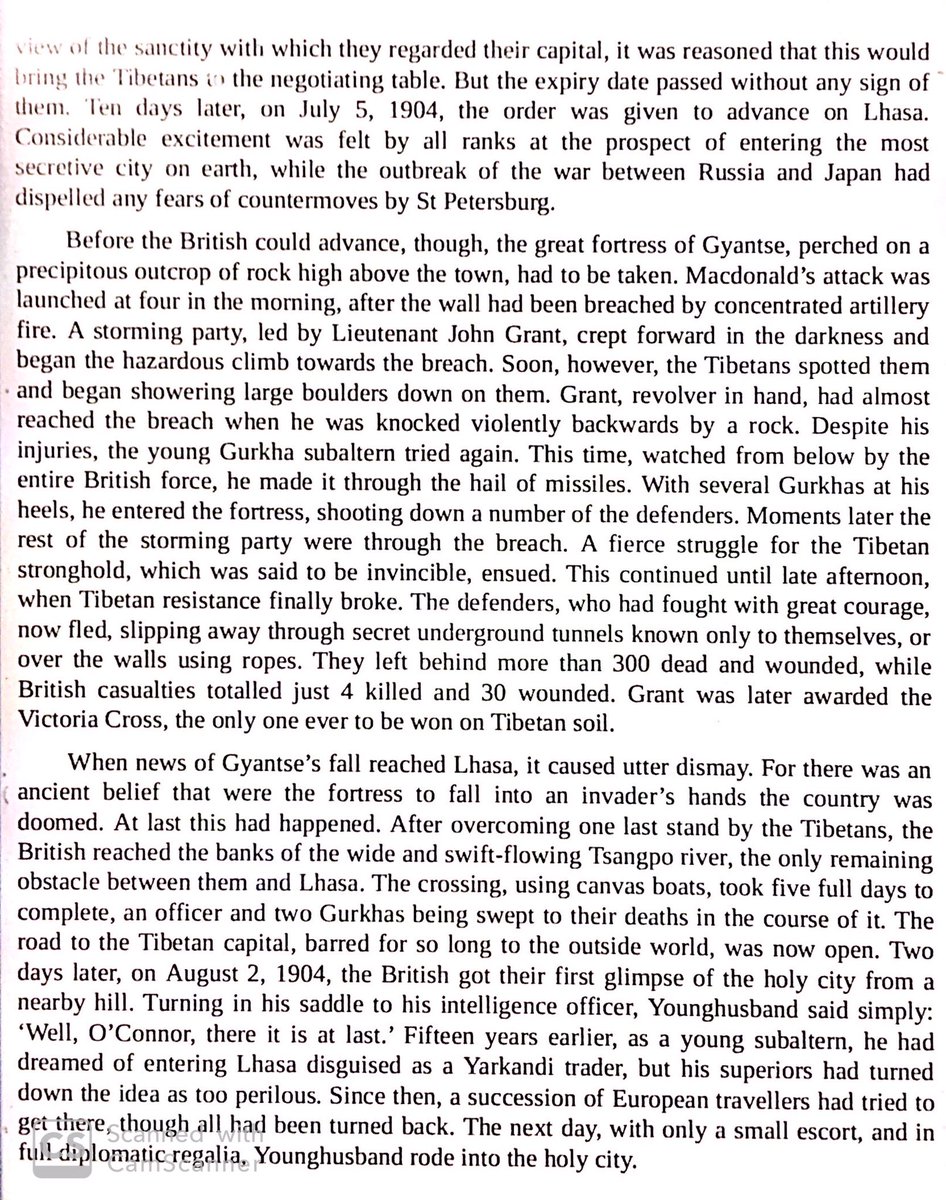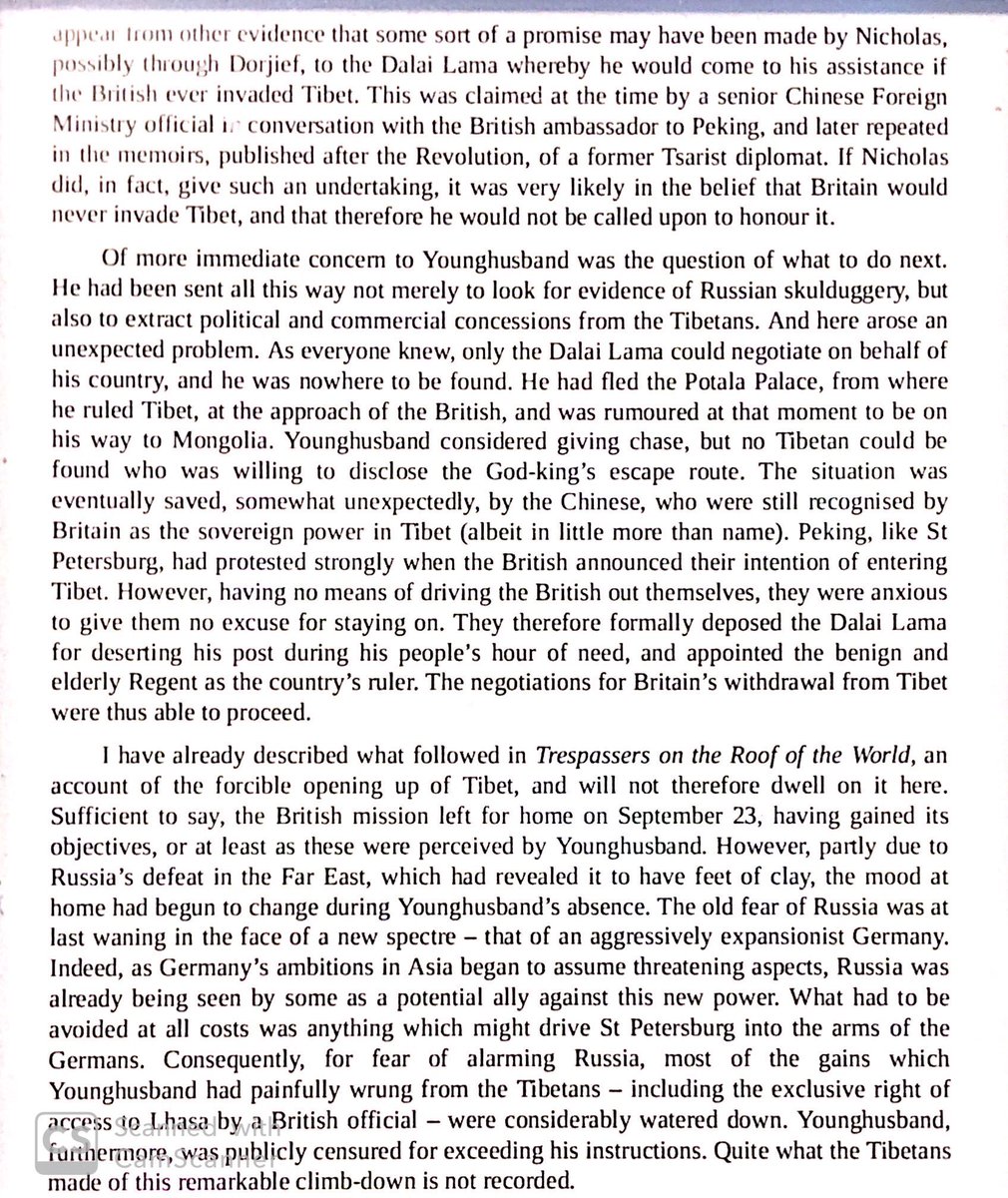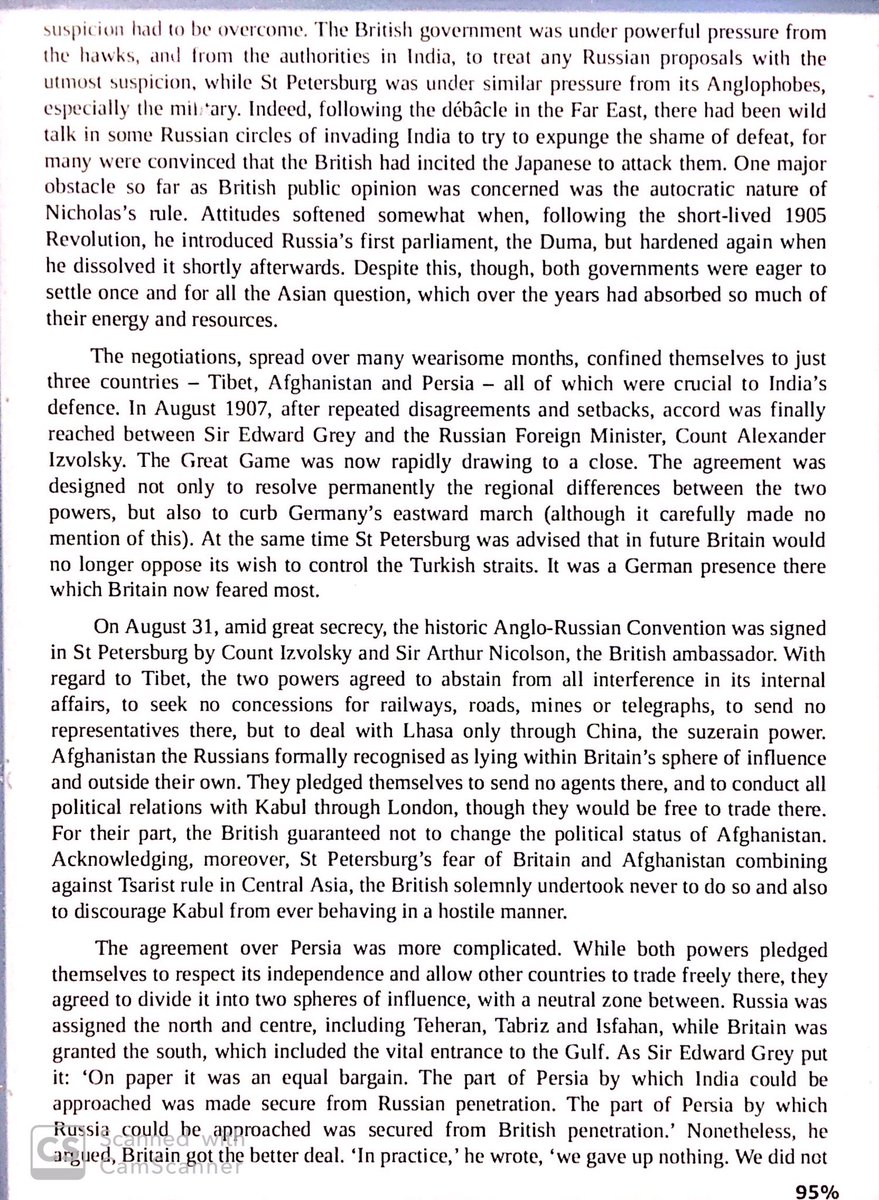Napoleon’s plan to invade India by land with Russian help frightened the British. Even after Napoleon’s fall, the British deeply feared Russia’s expansion. Their response varied - from purely defensive postures to an aggressive policy of creating satellite states.
Catherine the Great had a plan to raise an army of Turkics in Central Asia to expel the British from India & restore the Mughals (presumably as Russian puppets). Potyomkin thought it was a stupid plan & dissuaded Catherine from executing it.
Fear of Napoleonic invasion led London giving a free hand to the Duke of Wellington. Wellington greatly expanded British control, seizing numerous territories & dispossessing their rulers, mostly for East India Company shareholders’ benefit.
After Napoleon’s defeat, Russia was popular with the British public. One British general, Sir Robert Wilson, ran a very successful public relations campaign against Russia, spreading all sorts of myths & lies against her, while also pointing out her great strength.
Russians fought a British trained Persian force in 1812. After a series of defeats, Persia was forced to concede control of Caspian Sea, Georgia, & Baku to Russia.
Russian explorer goes to Khan of Khiva in 1819 on behalf of the infamous General Yermolov. He finds an unstable state with many slaves (including many Russians), & advocated for an invasion to free slaves & open trade.
One British agent tried to put Yarkand (in Xinjiang) under British influence through a new trade route. He failed, due to a Persian Jew serving Russia, who convinced the merchants & Chinese government to reject him.
British were desperate for intelligence in Afghanistan. They were fortunate to find an East India Company deserter who had left his unit to search for historical artifacts in Central Asia. British pardoned him & gave him a stipend in return for regular intel reports.
Persia was under Russian influence, & pressed their claim to Herat in Afghanistan. This would have give ln Russia a base to invade India. A British advisor to the Afghans played a major role in saving the city.
Herat is still majority Persian speaking today. Iran’s borders could have easily been far to the east (& north) of where they are today, had things gone otherwise.
British puppet government in Afghanistan became deeply unpopular, in large part due to Britons bedding Afghan women.
The Afghans rebelled against the British puppet government & destroyed the British army in Afghanistan. Only 1 of 16,000 British soldiers & camp followers escaped to India.
The British wreaked a terrible vengeance on the Afghans in a punitive expedition after the anhillation of their first army. Eventually, they allowed Afghanistan’s original king to reoccupy his throne.
In 1856 Iran conquered western Afghanistan around Herat. British launched naval invasion & seized Bushehr on the Persian Gulf, which convinced Iran to abandon Herat.
Three major Central Asian city-states in 19th century: Kokand (which also controlled Tashkent), Buhara, & Hiva.
Buharan troops were threatening Kokand’s control of Tashkent, so a rogue Russian general with 2k men seized the city in a brilliant battle that cost 25 men. Some locals were happy with Russian rule due to fewer taxes & more trade.
Buhara plotted to drive Russia out of Turkestan, but the Russians defeated three of their armies, seized Samarkand, & took control of Buhara’s water supply.
In 1860s the Moslems of Xinjiang killed the Chinese in their region, & were taken over by a Turkic adventurer Yakub Beg who claimed ancestry from Timur.
Chinese retook Kashgar from Yakub Beg in 1877. Kashgar had independent for the previous 12 years. It was a blow to Russian plans to add the region to their sphere of influence.
For the second time in 40 years, a British politician was killed along with his staff in Kabul. The British returned to once again to avenge them.
Russian general Mihail Skobelev’s brutal conquest of western Turkmenistan. The British didn’t care too much, although they were worried Russia might push east to Merv & India.
A Caucasian Moslem in Russian service won Merv for Russia by appealing to their desire for trade & security. He was made governor by Tsar.
British opinion shifted strongly against Russia after annexation of Merv. Two leading anti-Russian writers at the time were a British journalist & a Jewish-Hungarian professor.
By late 1880s, the borders of Russian & British influence had been drawn everywhere in Central Asia other than the poorly known Pamir Mountains. The British were worried Russia would find a way through the mountains to India.
Remote & high Chitral. Difficult for a man to reach even in 1990, to say nothing of the late 19th century
A brutal dynastic struggle for the throne of Chitral led to the alliance of one candidate with a neighboring Pashtun warlord. They beseiged the British garrison, hoping to drive the British out.
The British marched an army through 12000 foot mountain passes & relieved the garrison. Not liking the risk of another warlord in the mountains attacking India & inviting foreign intervention through the passes, the British decided to occupy Chitral.
A Buryat Buddhist who visited Tibet & St Petersburg convinced the paranoid British that Russia was planning on adding Tibet to her sphere of influence.
British stormed Lhasa, only to find no sign of Russians. British withdrew. Faced with a rising Germany, Britain & Russia concluded the Great Game in 1907 with Anglo-Russian Agreement.
Russia got a guarantee for Constantinople, Afghanistan was recognized as Britain’s sphere of influence, Tibet was to stay Chinese, northern Iran was in Russian sphere of influence, while southern Iran was in Britain’s.
It was a enjoyable book - strongly recommend it.
Unlike the British & Russians, we Americans do not have any interests in Central Asia. Markets are too small, raiders aren’t selling our people as slaves there, & we don’t need to guard the mountain passes to India.
The bits of Central Asian history are interesting. Punjab-Afghan rivalry, the wars of Turkmen, Hiva & Kokand’s old power, Afghan chiefs in mountain strongholds, etc. The daring exploits of the explorers & soldiers as well.

 Read on Twitter
Read on Twitter